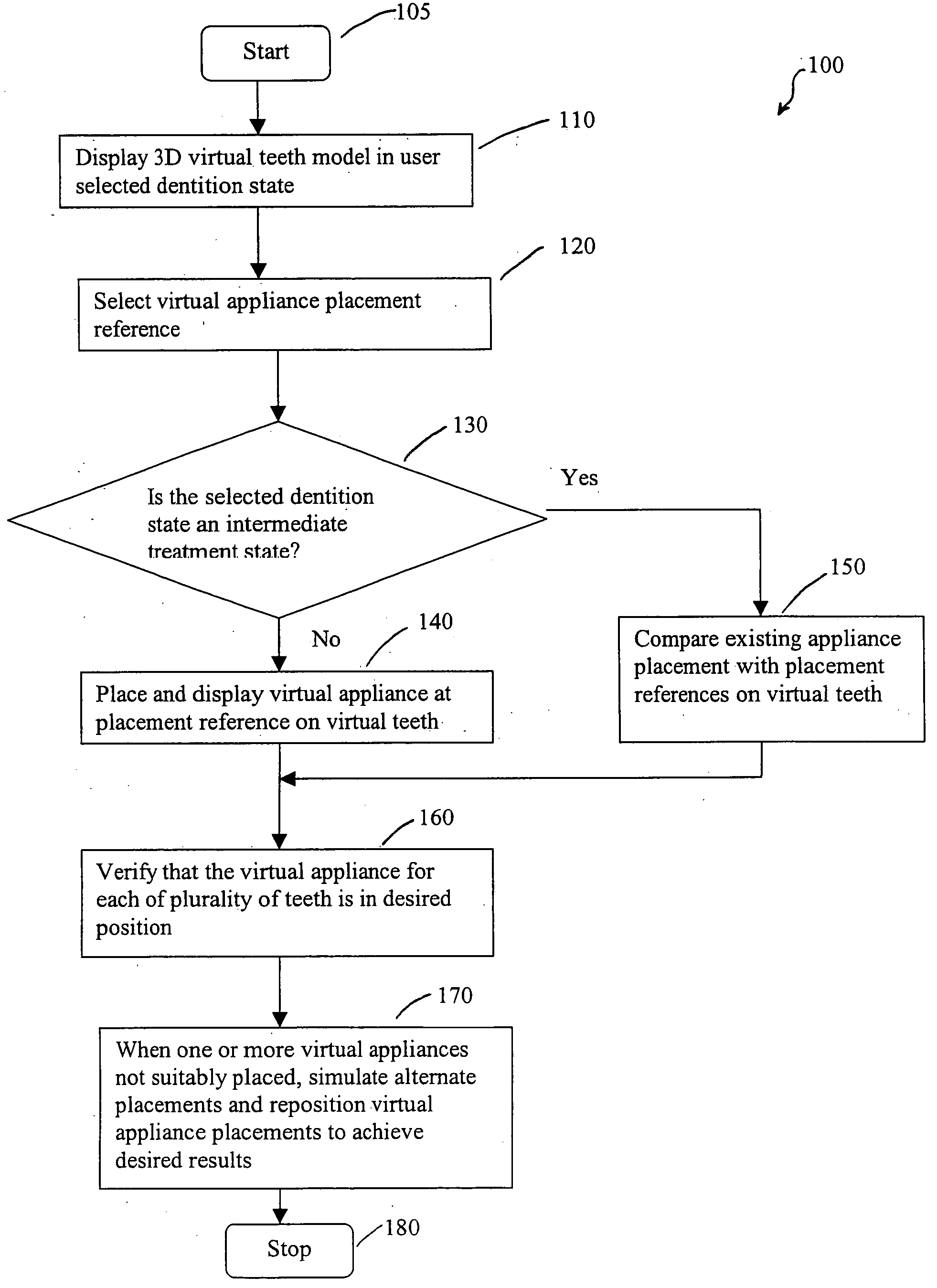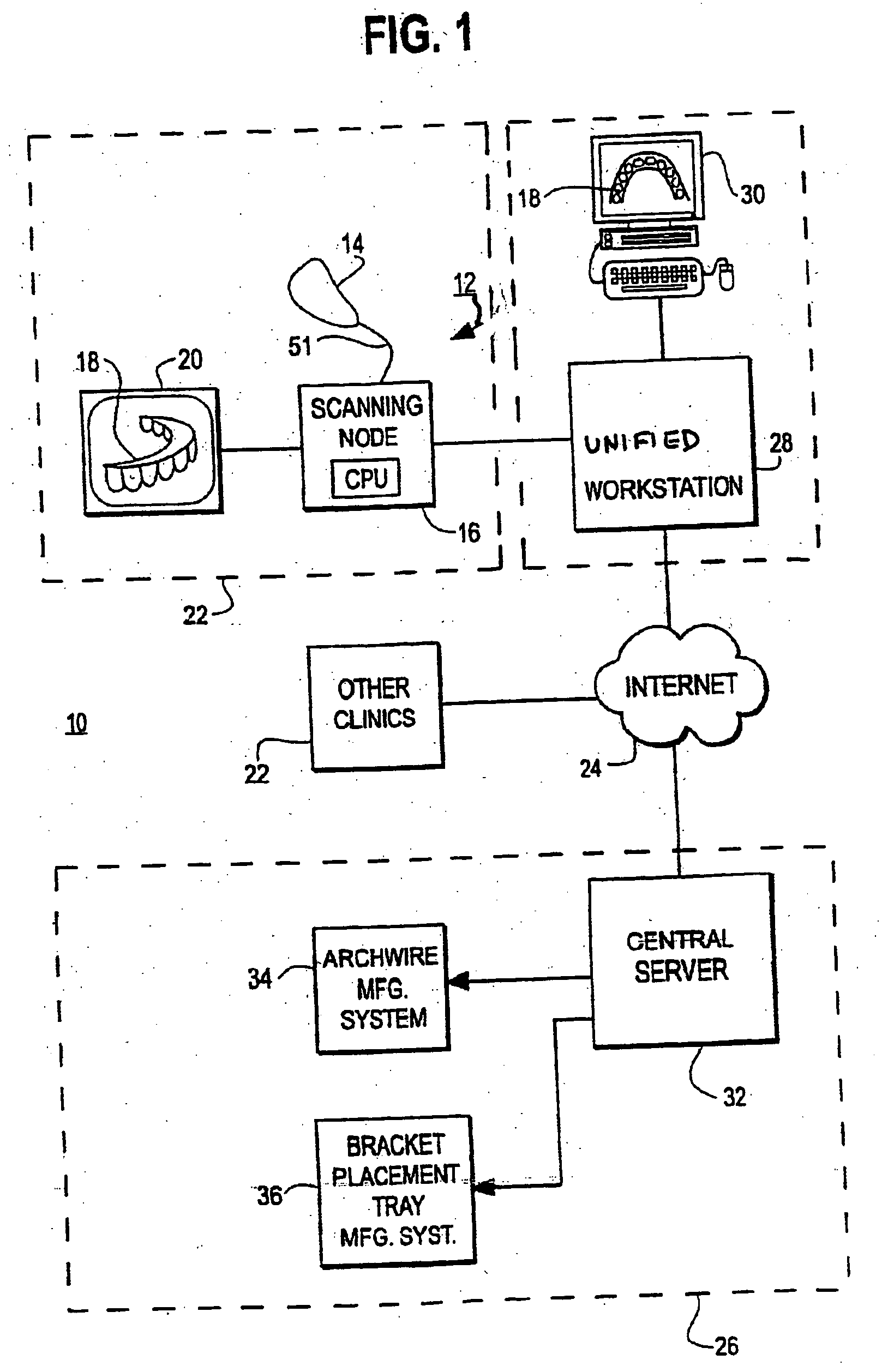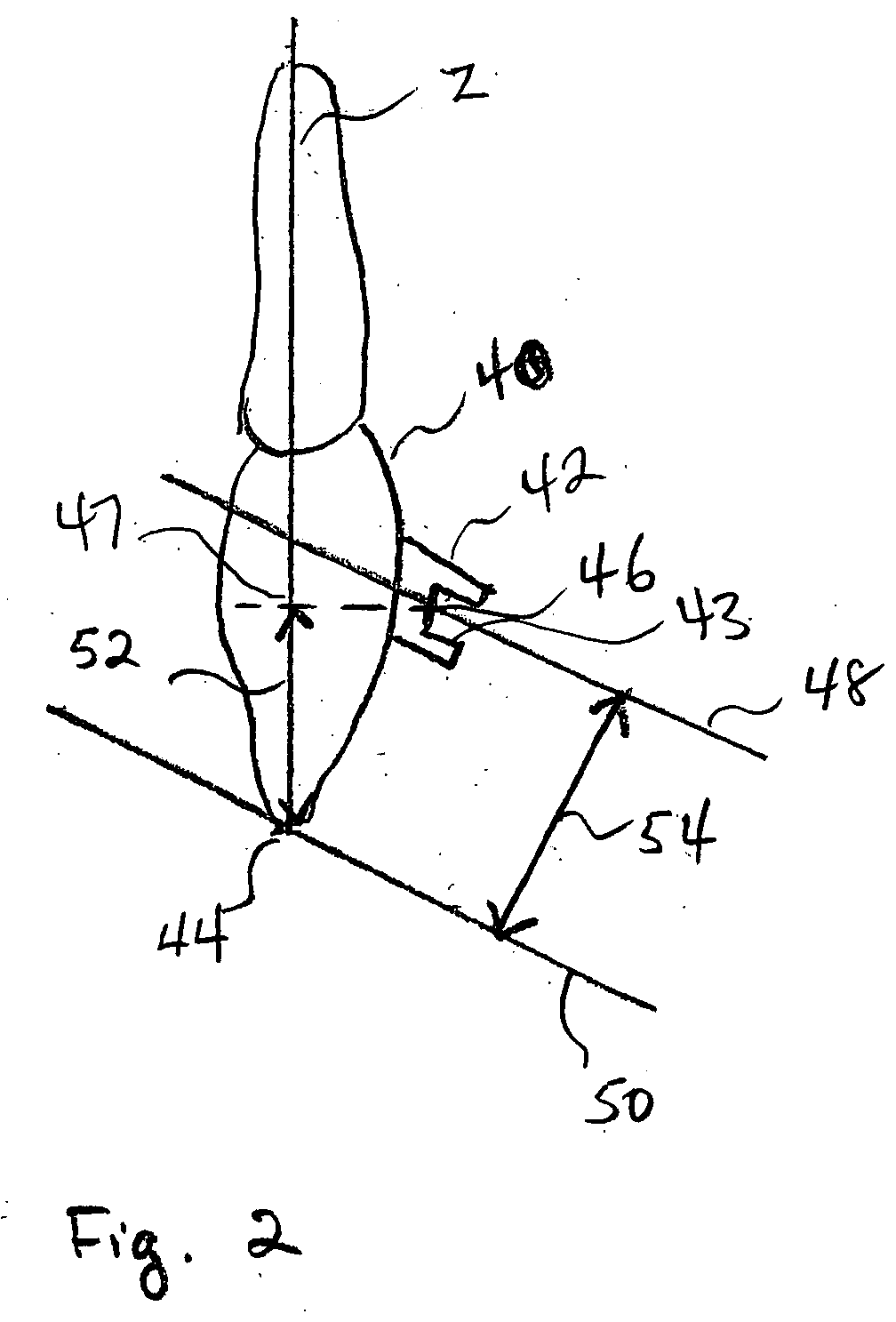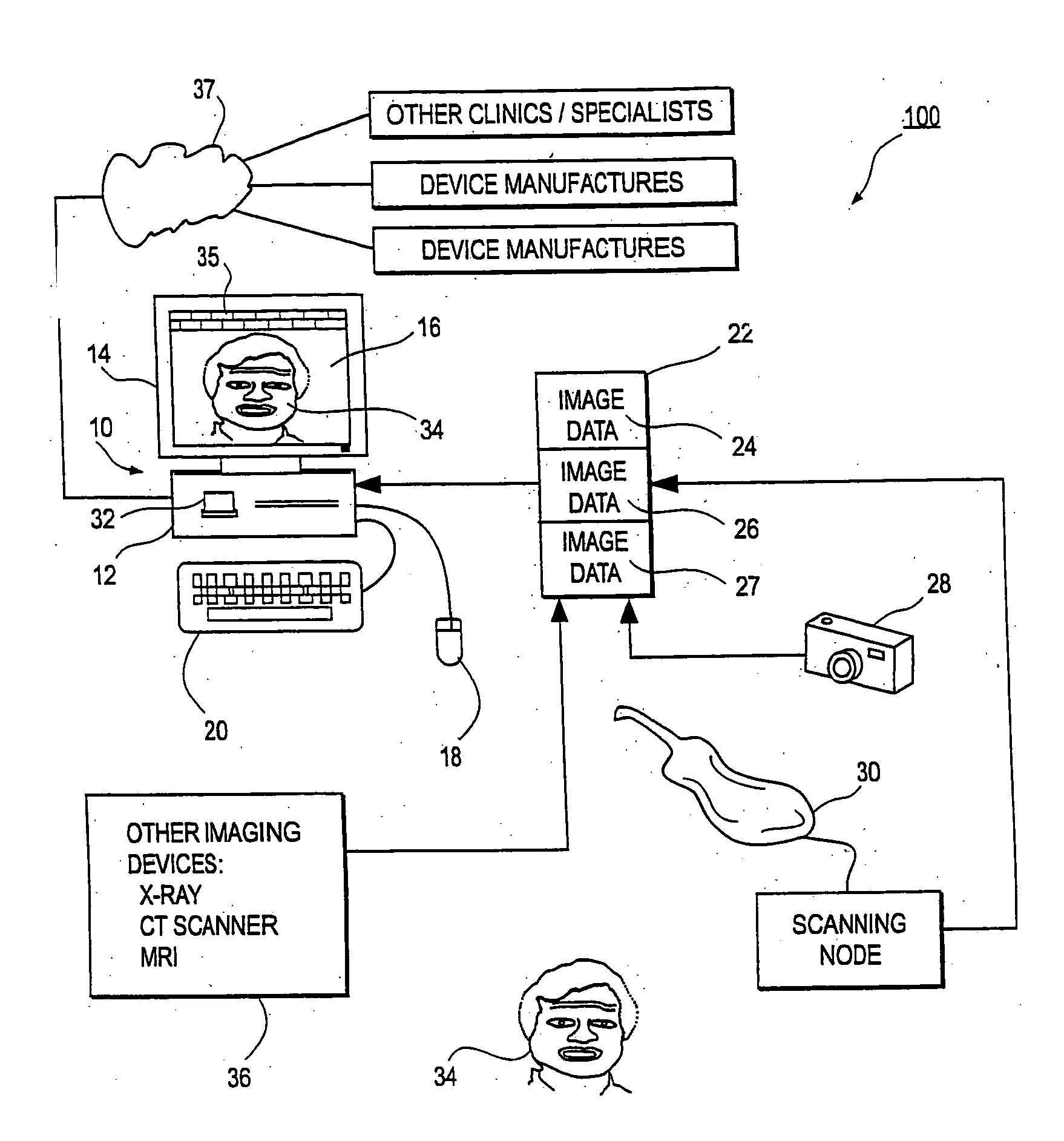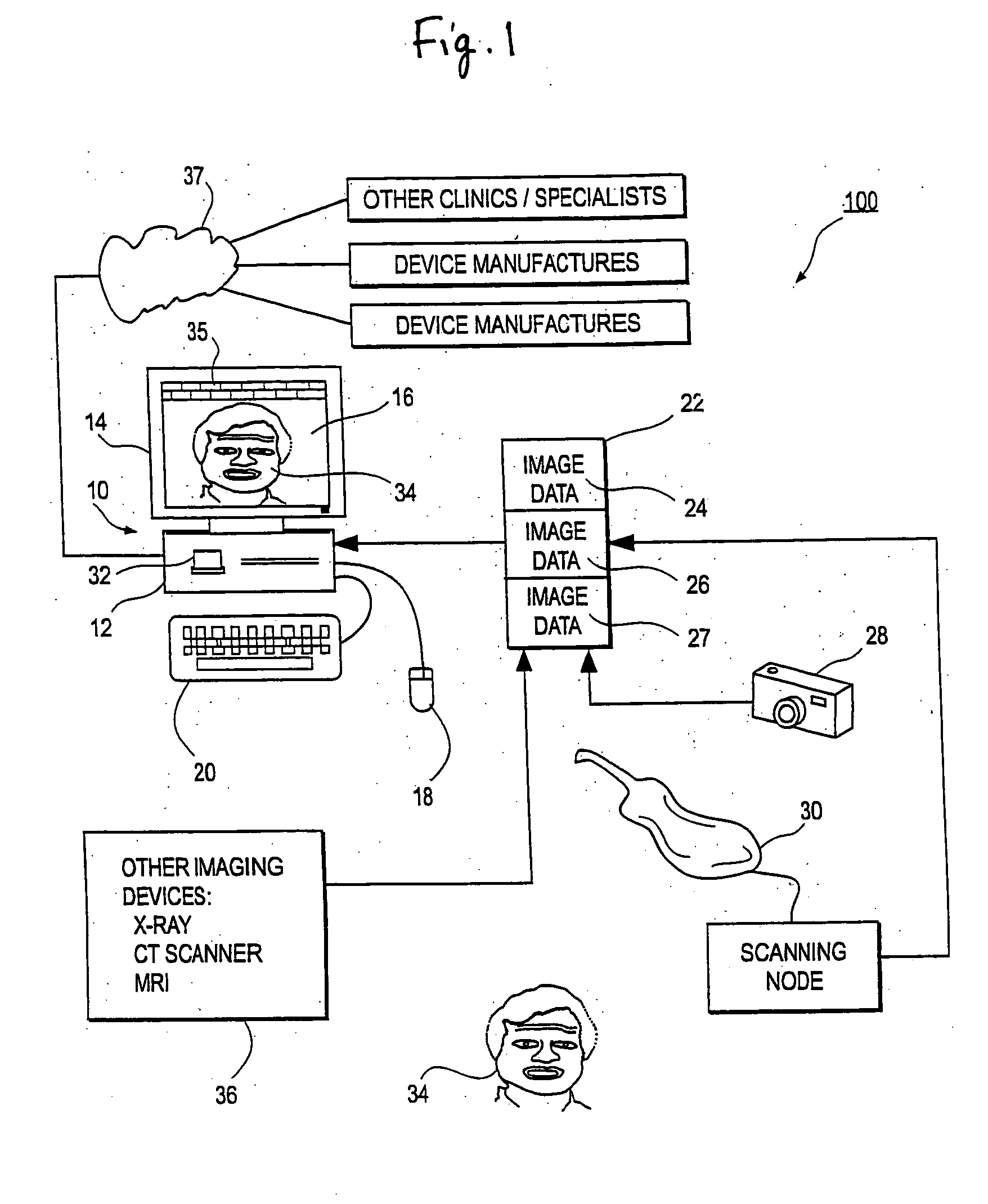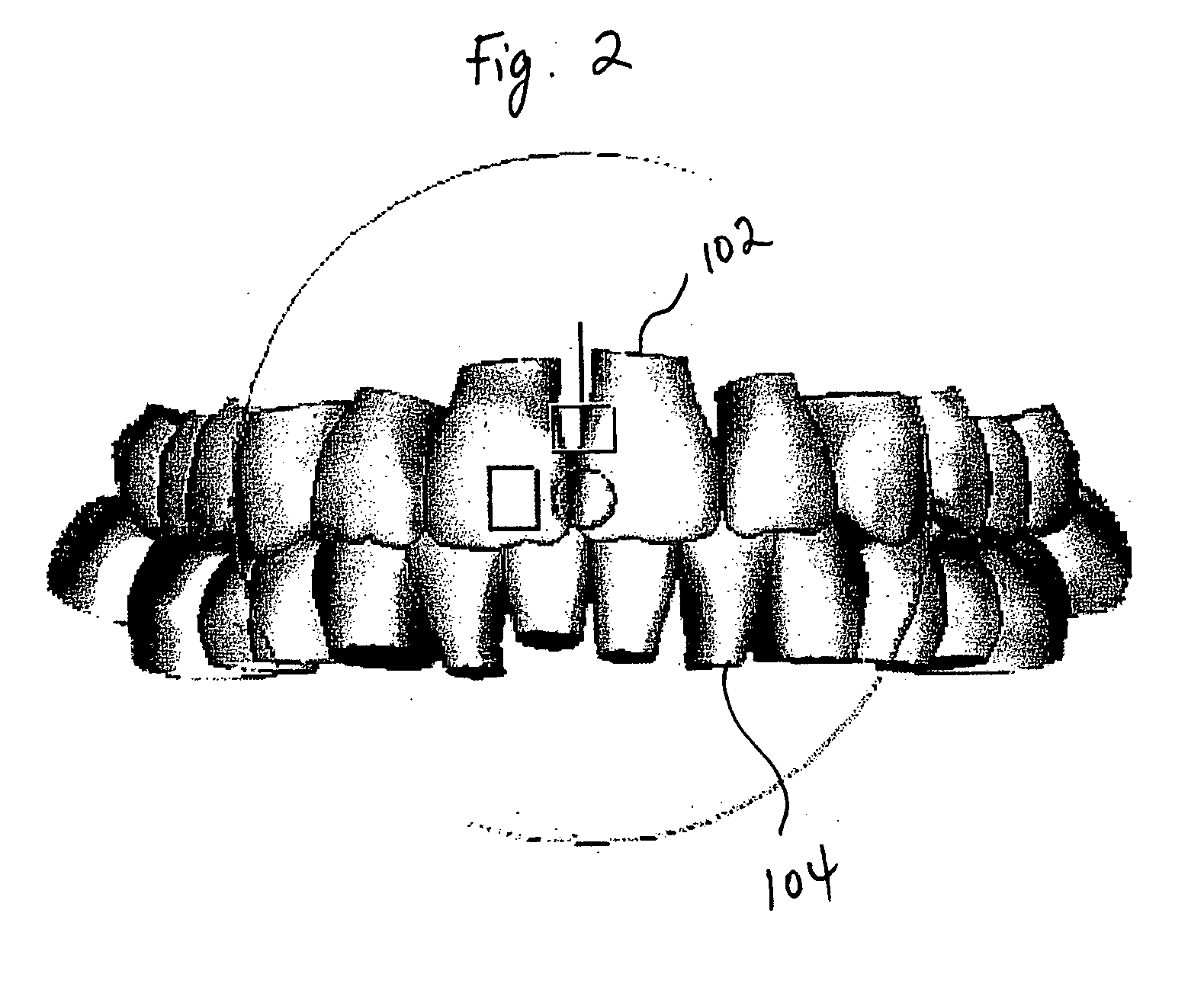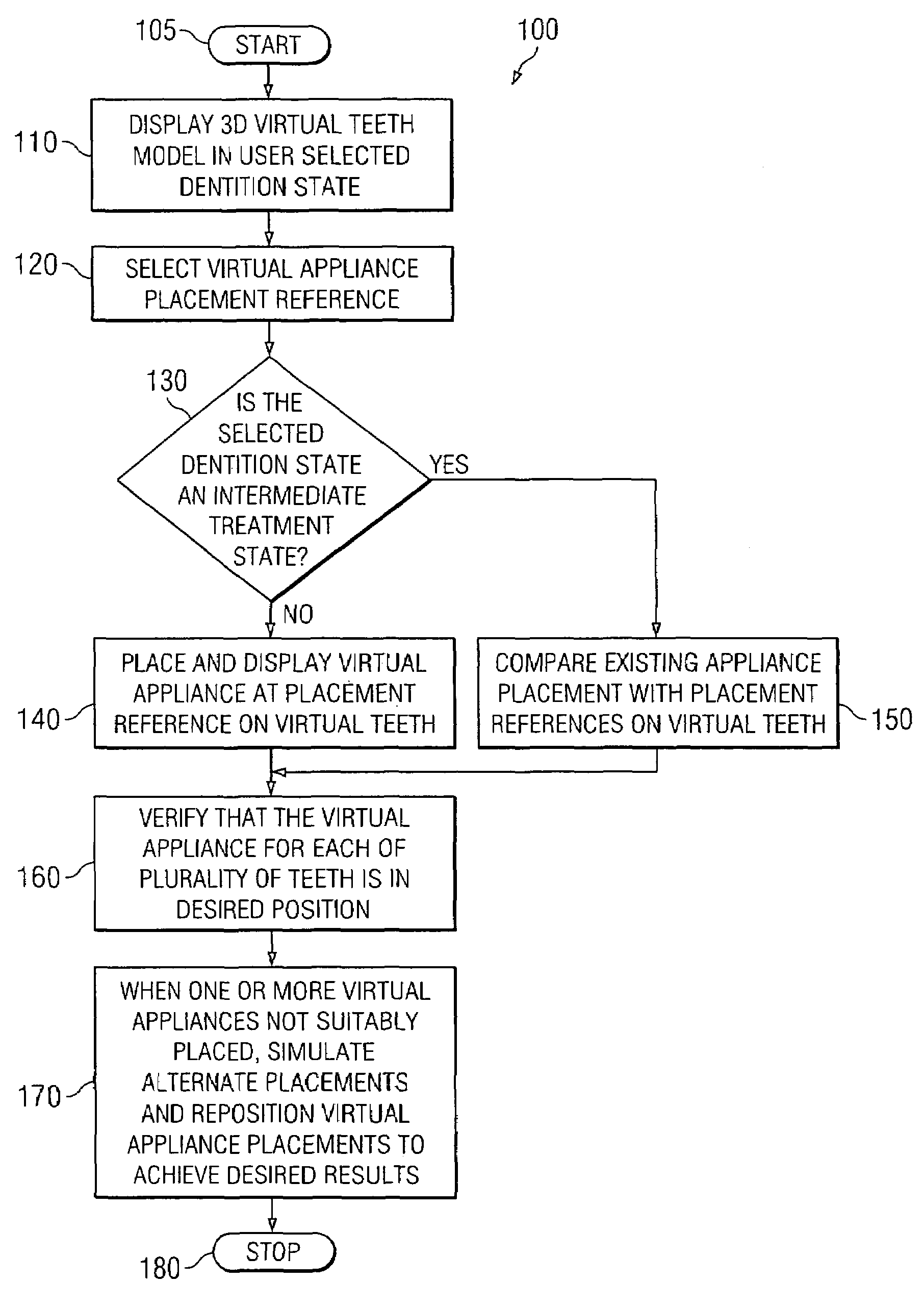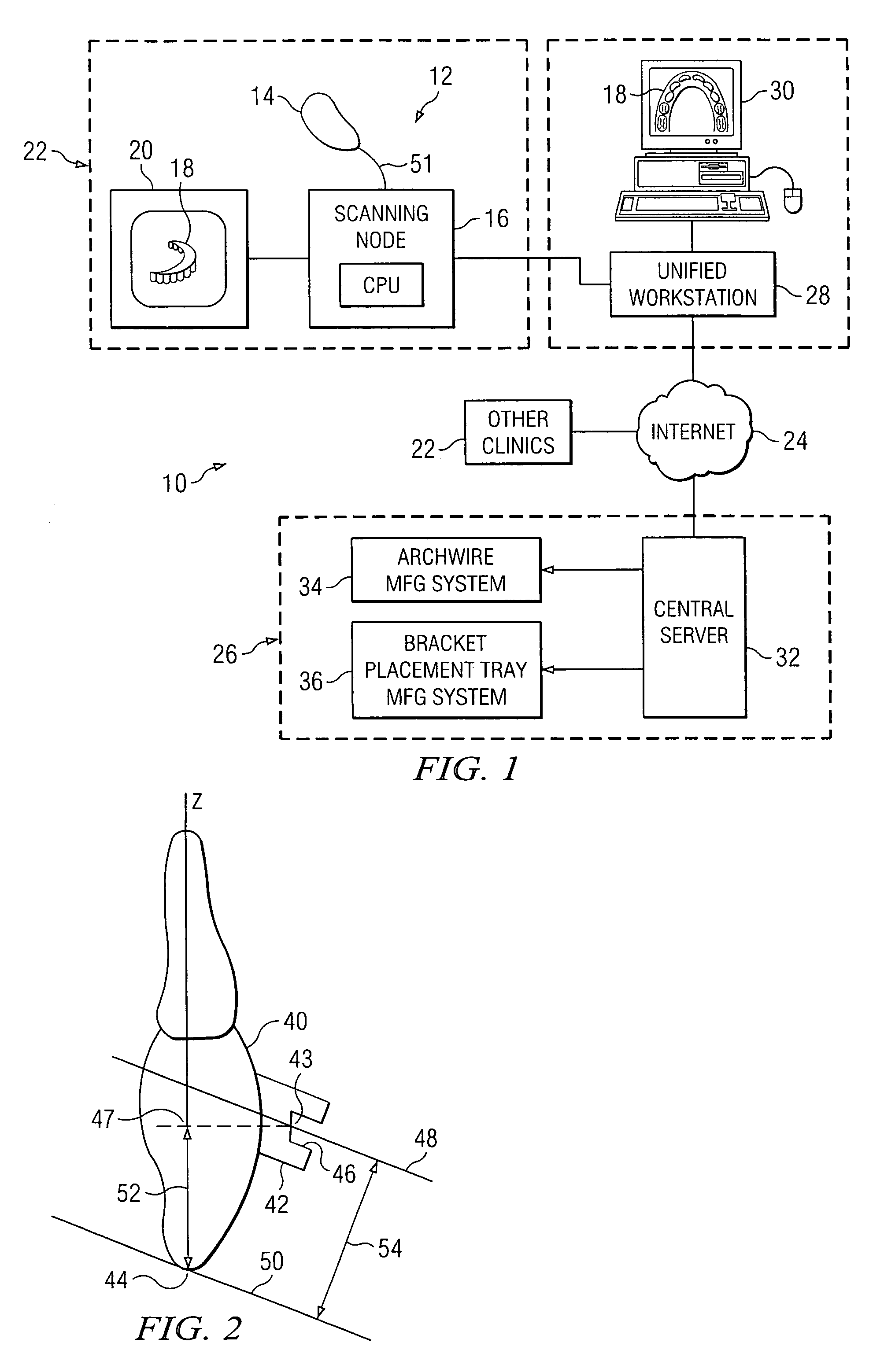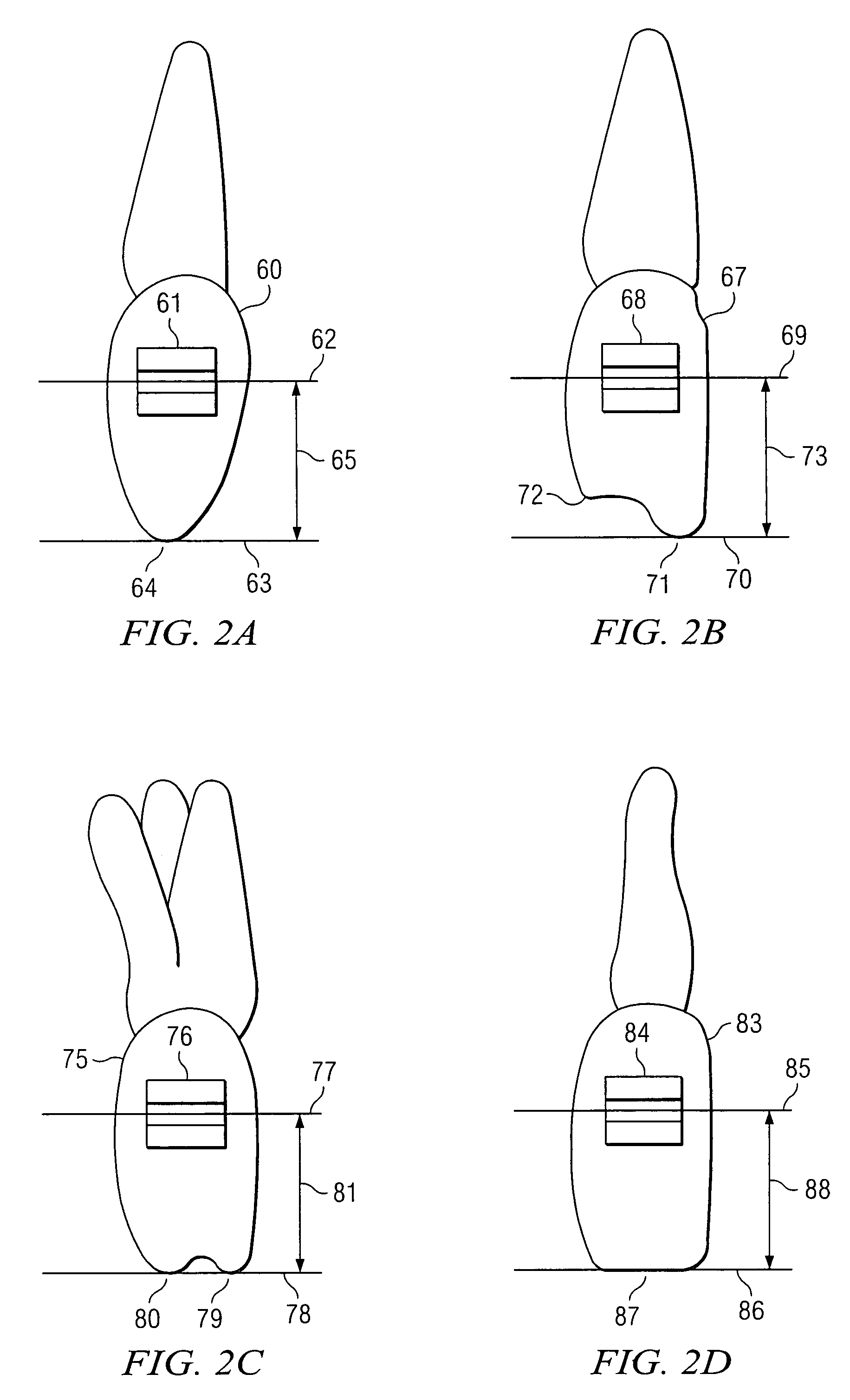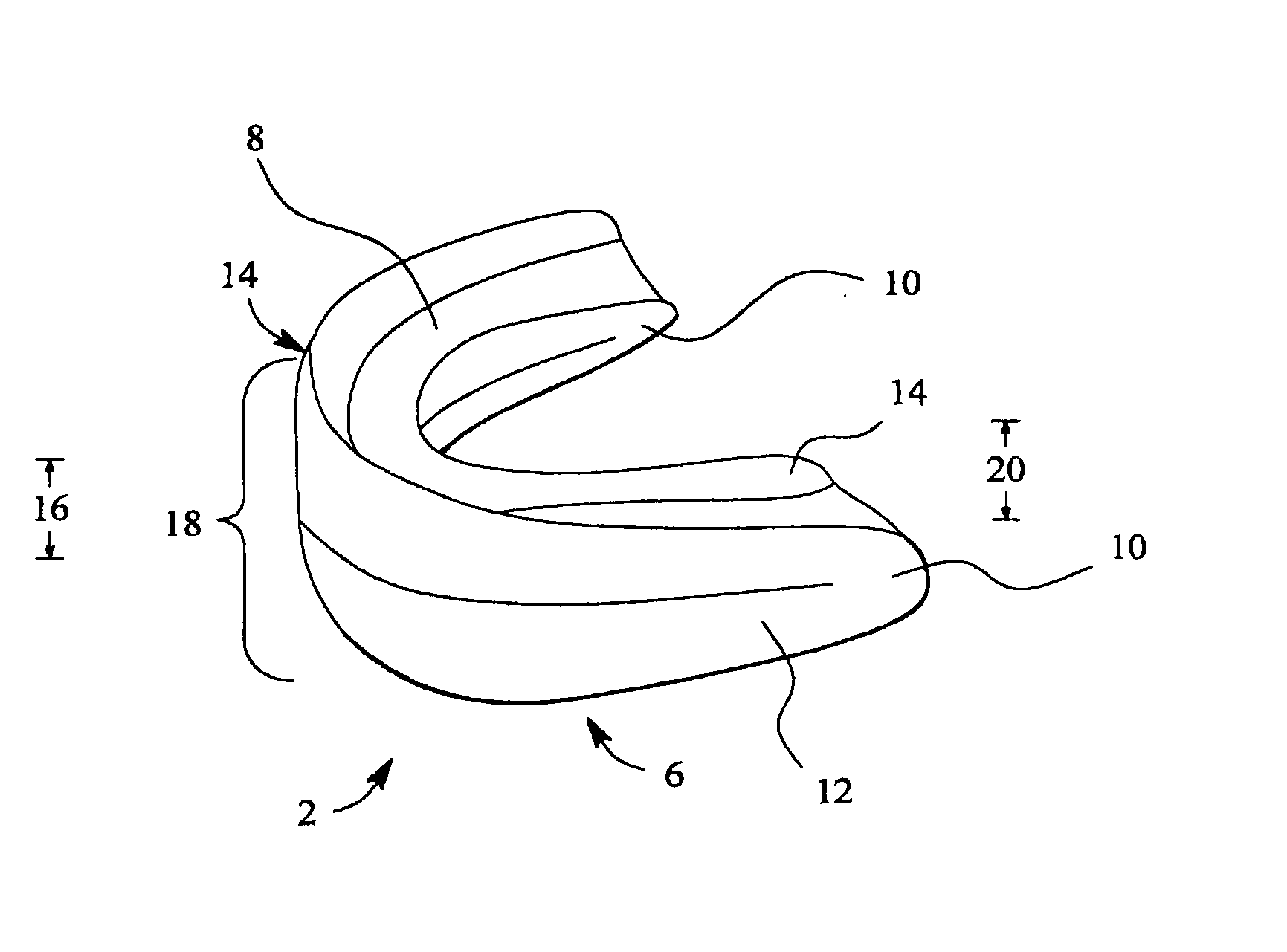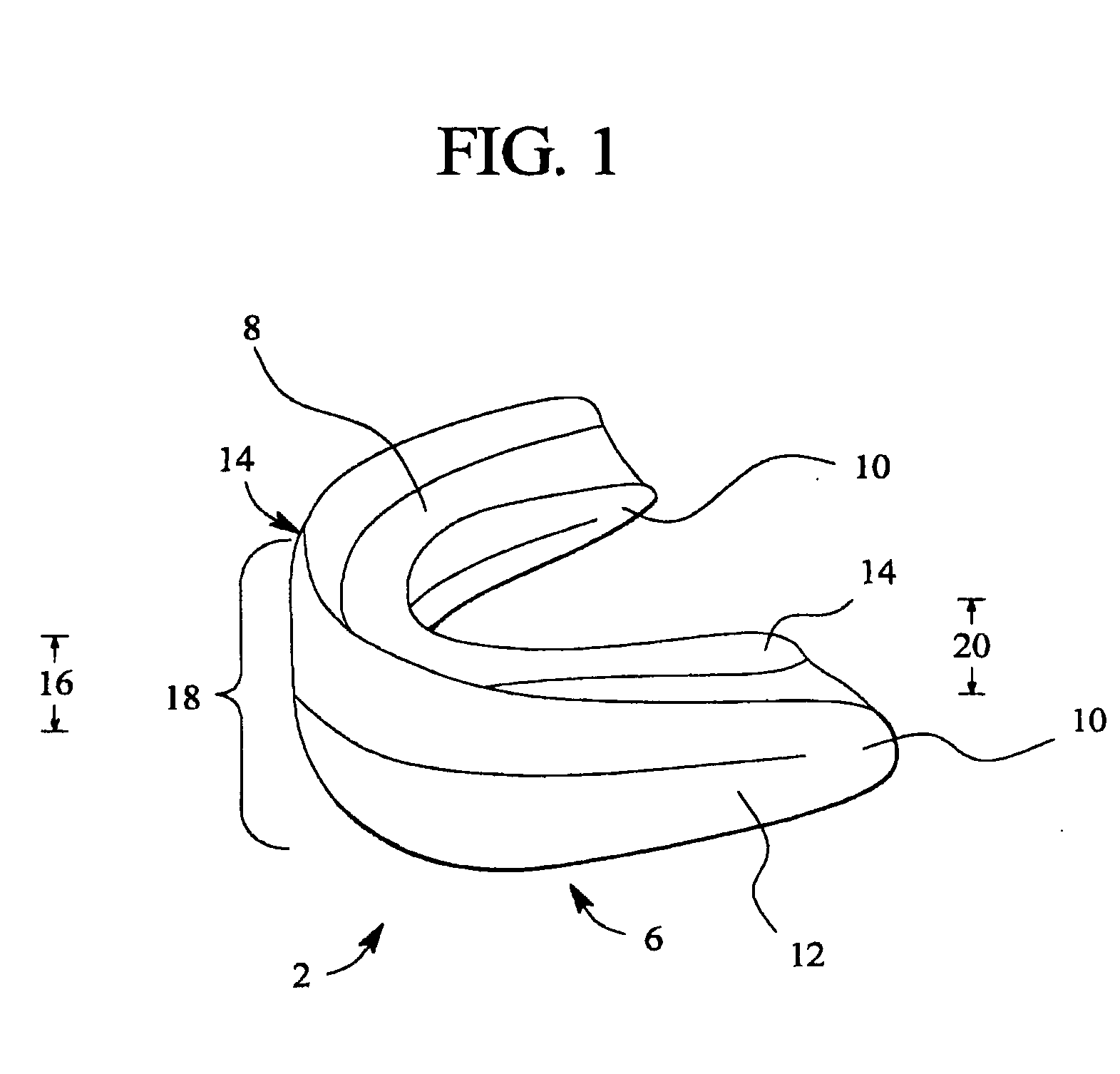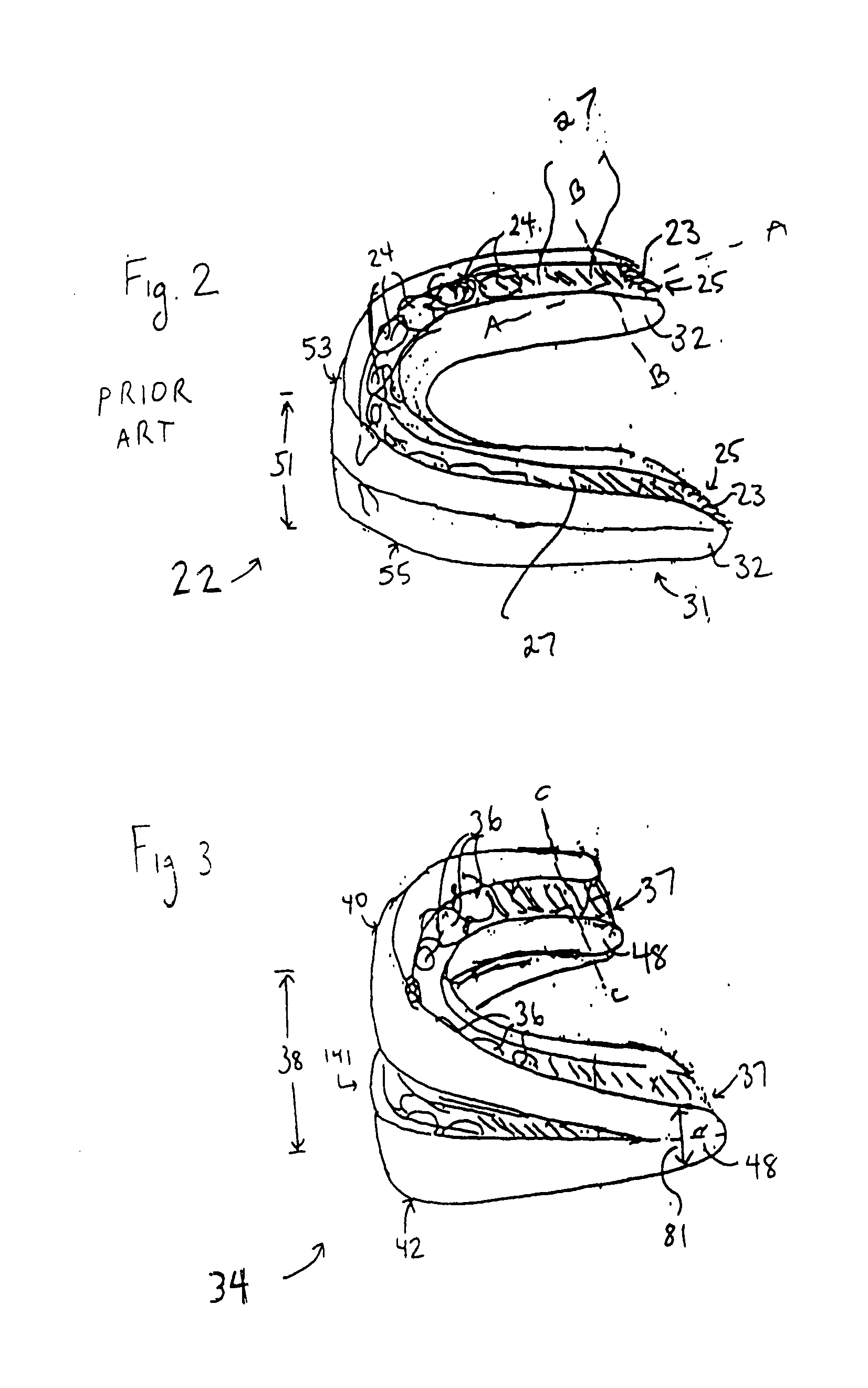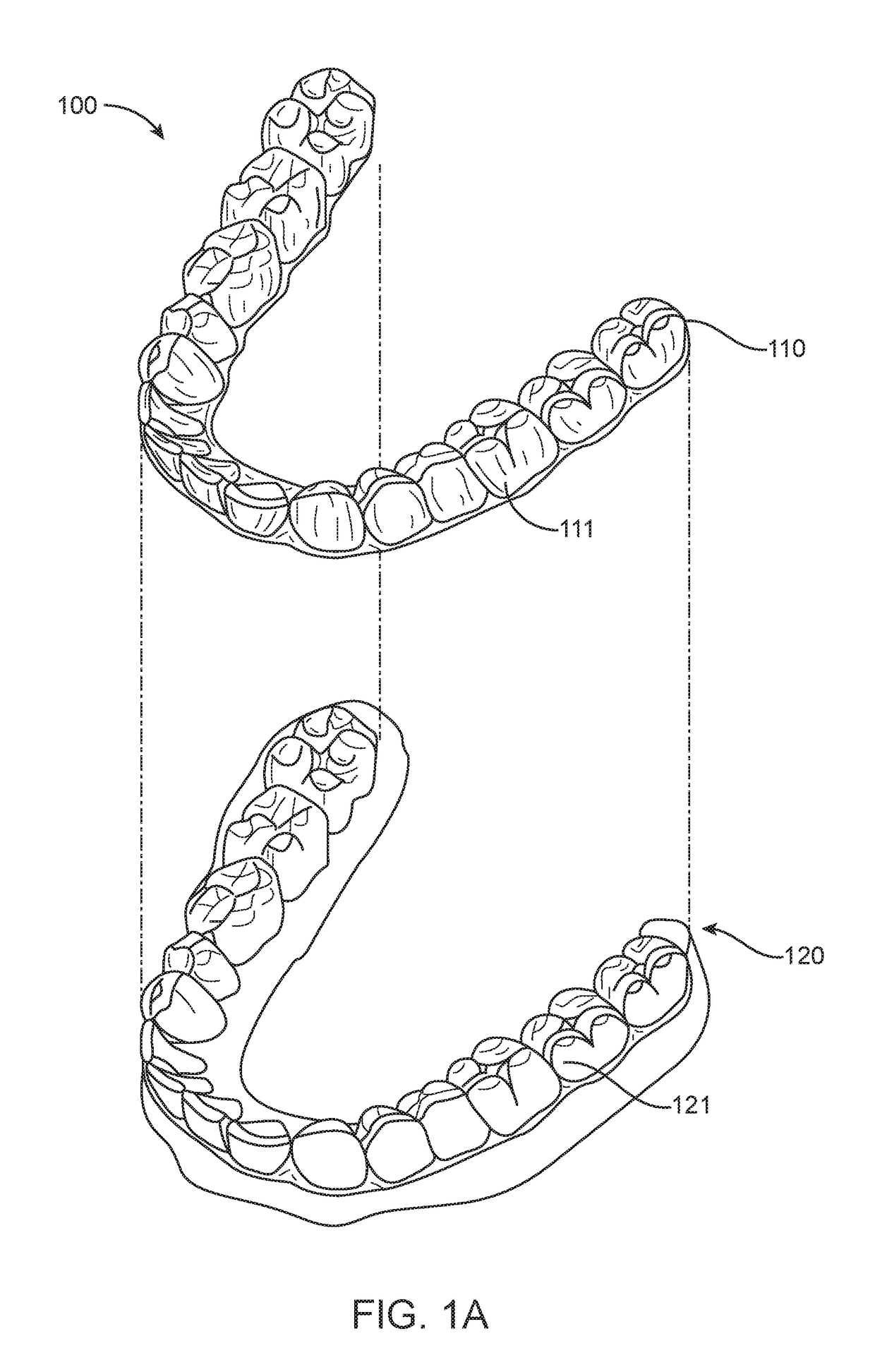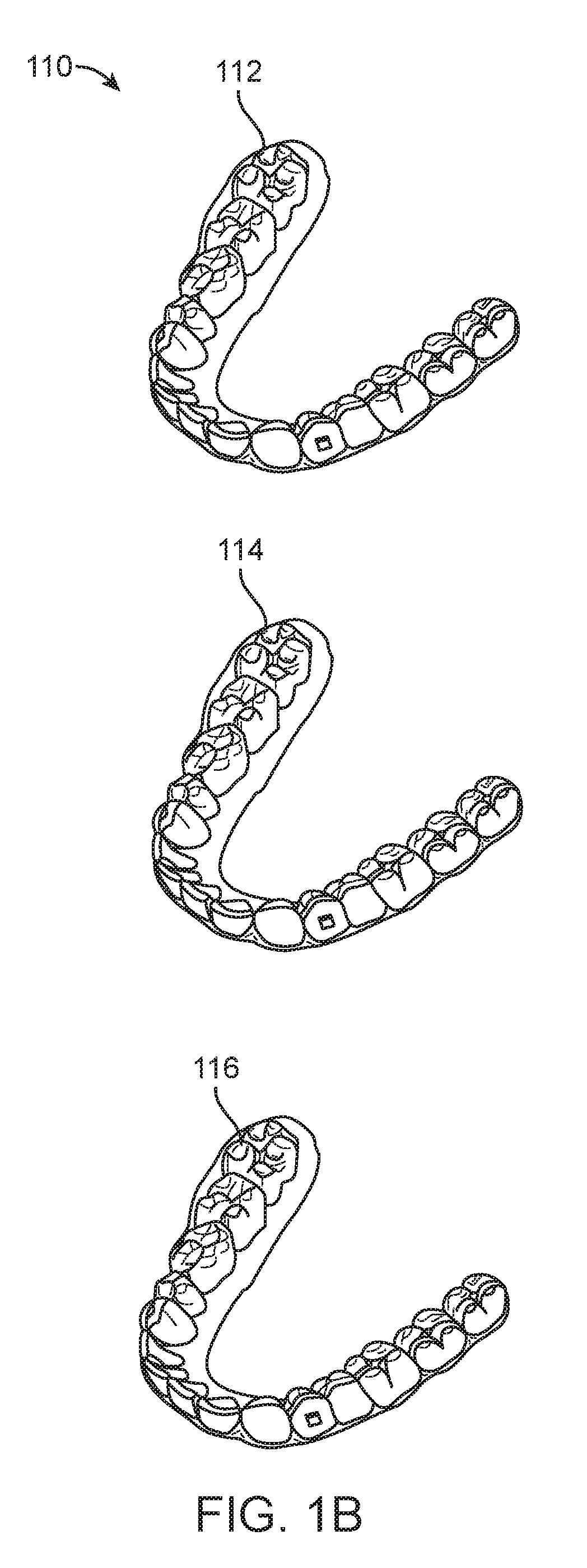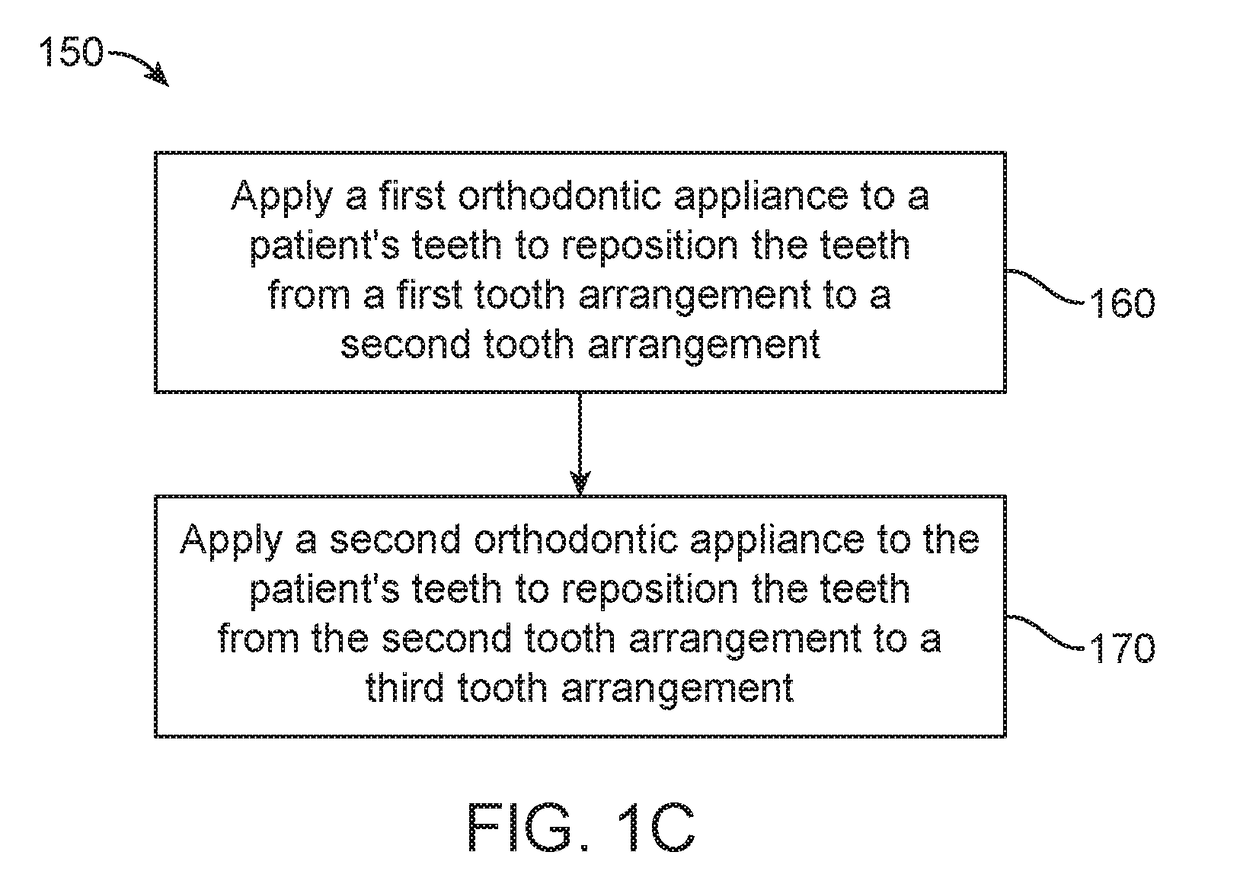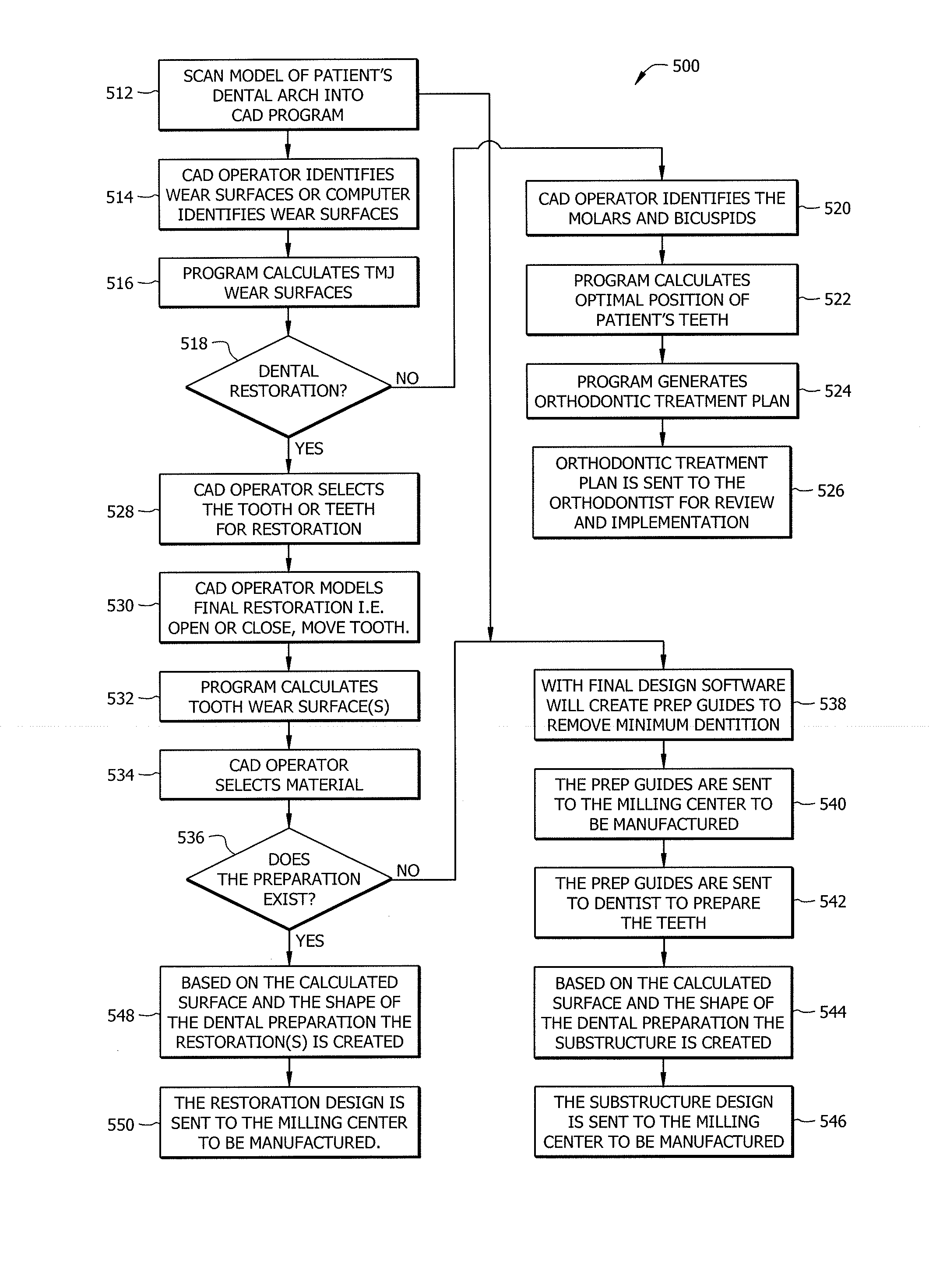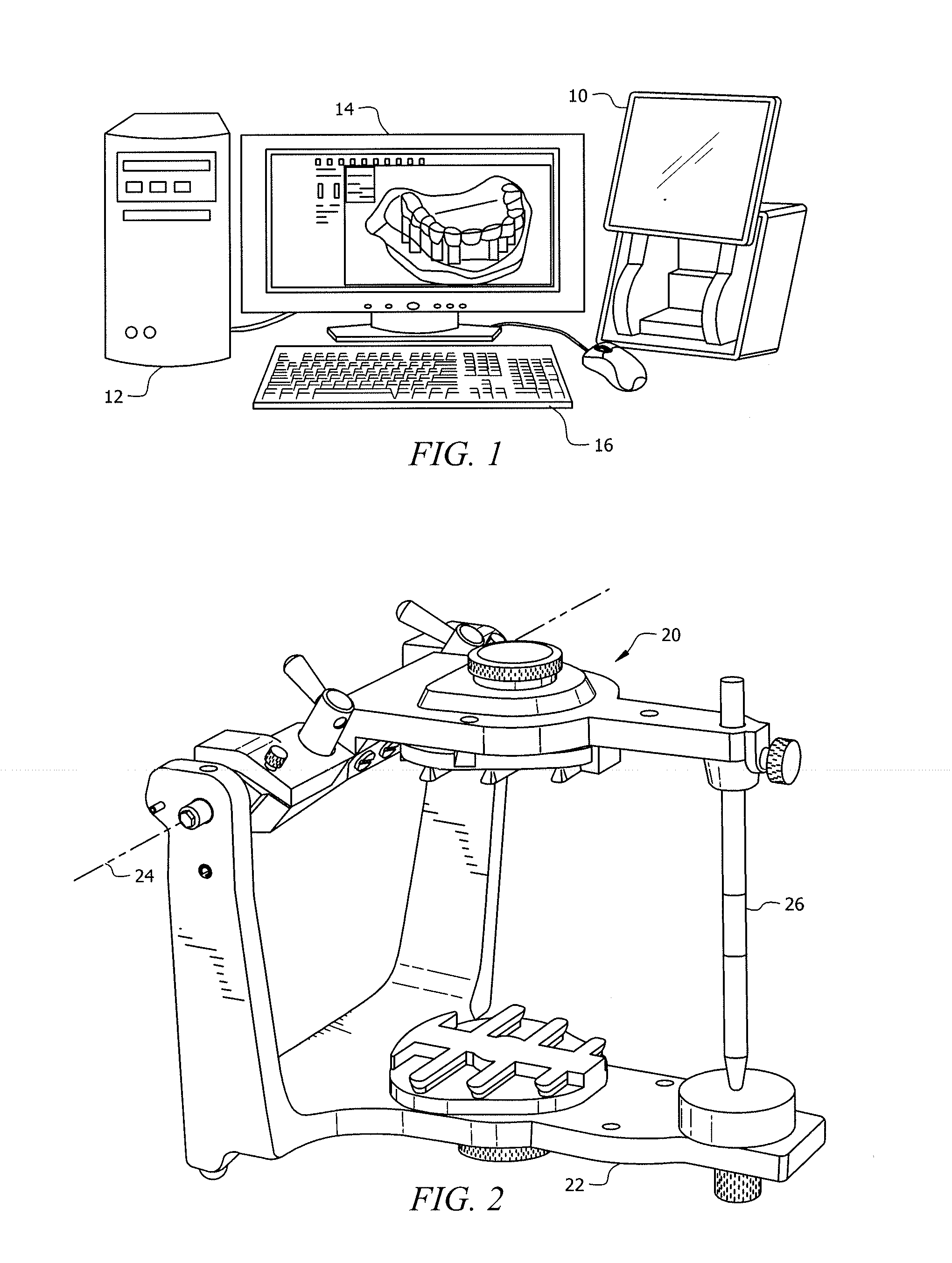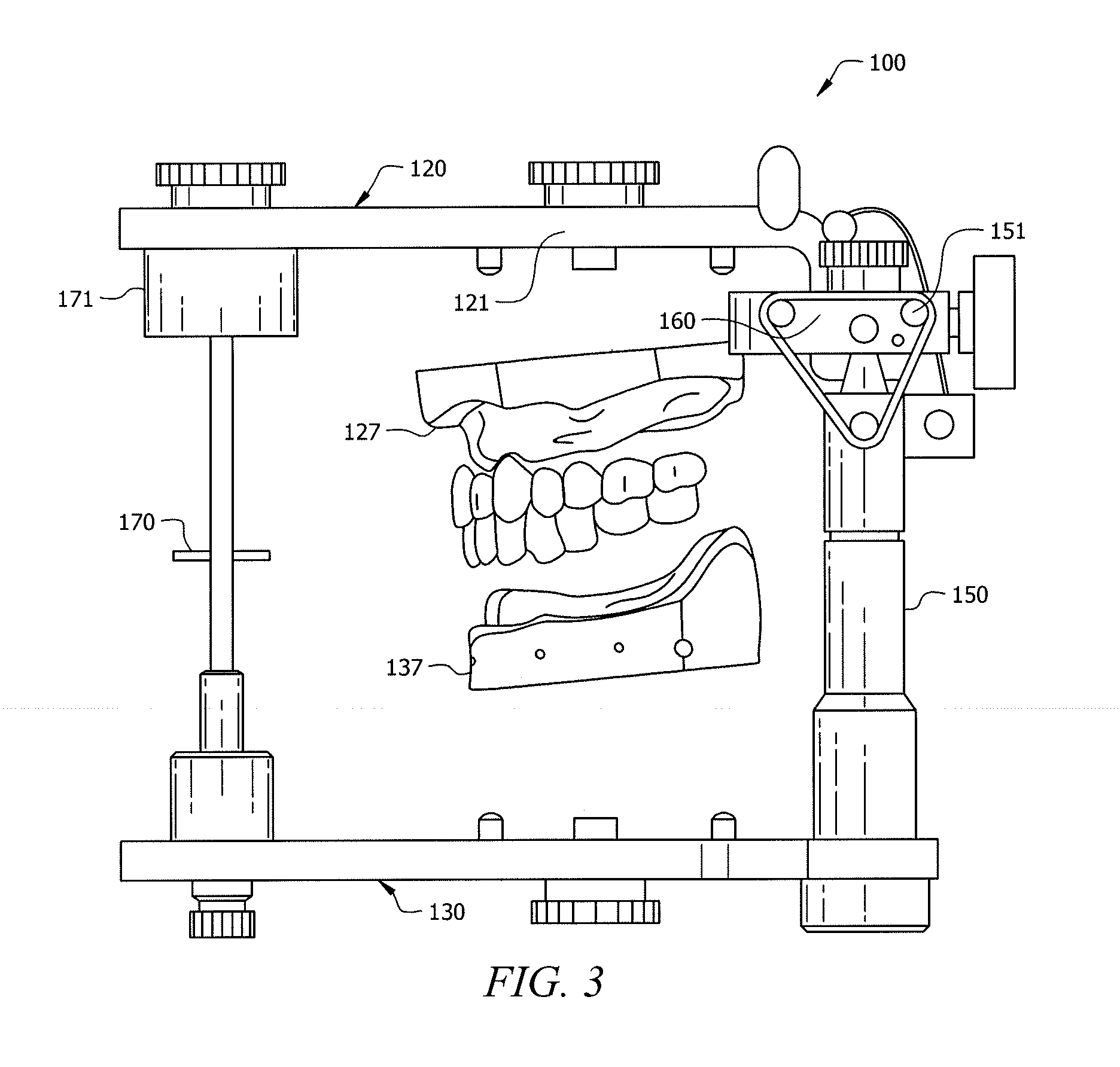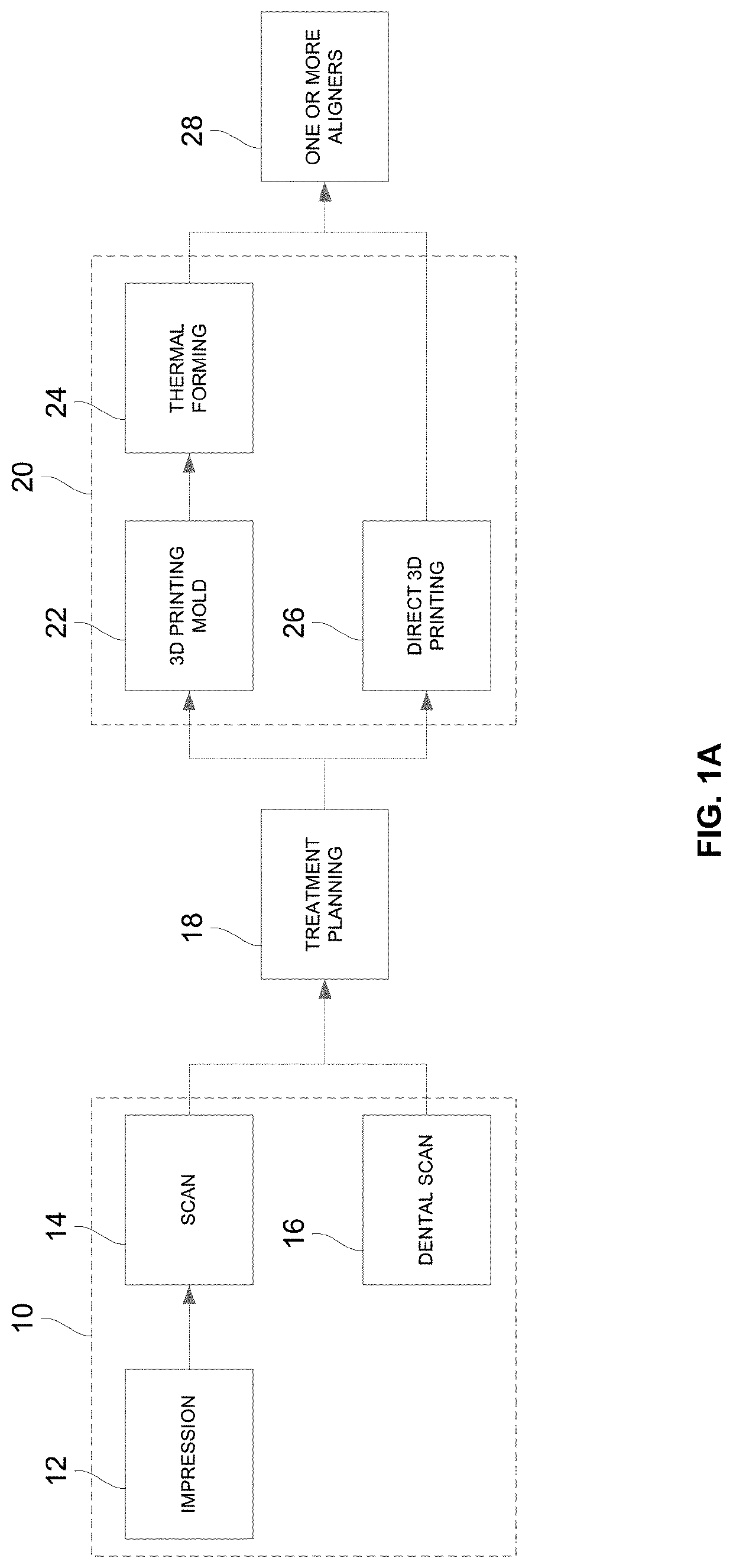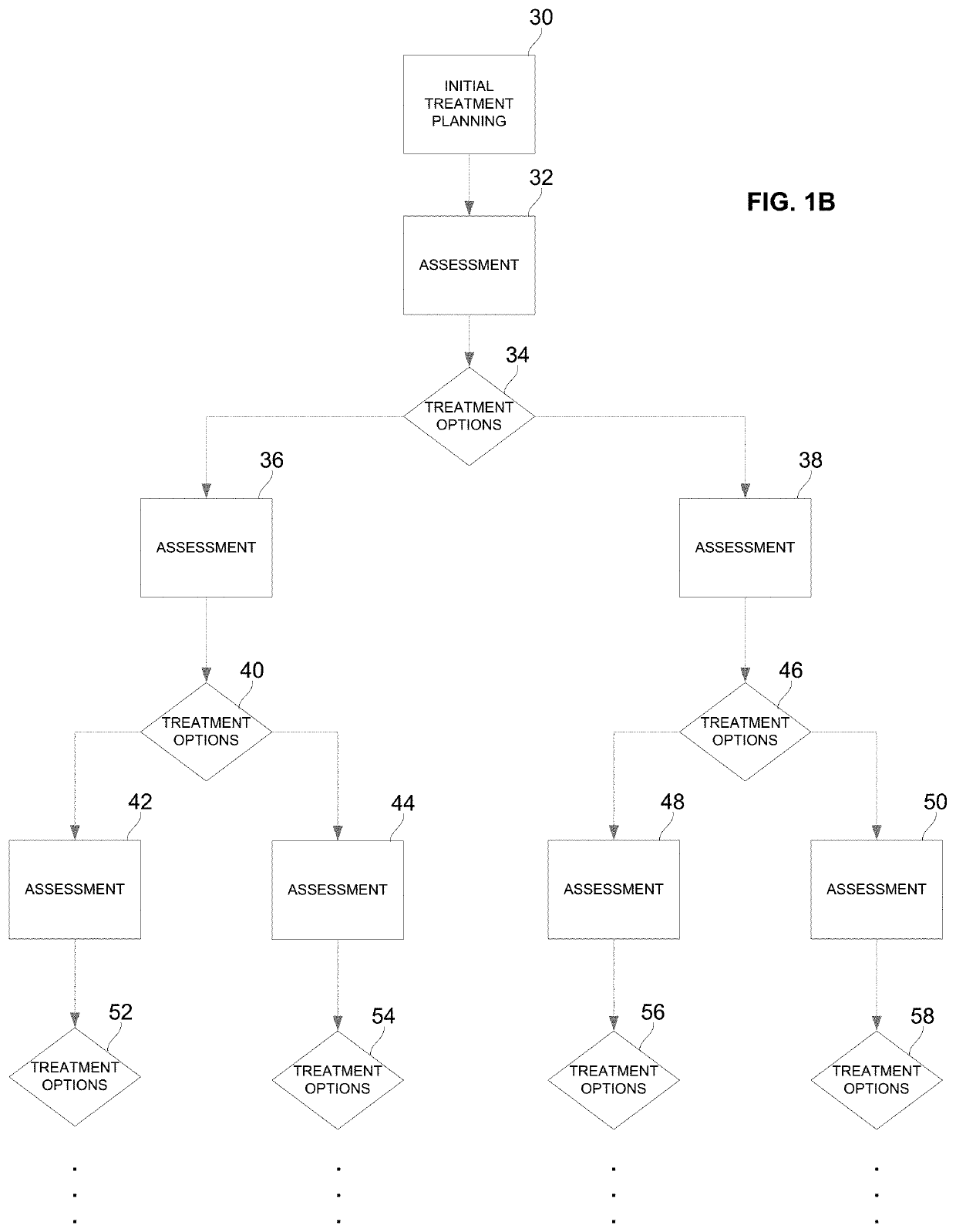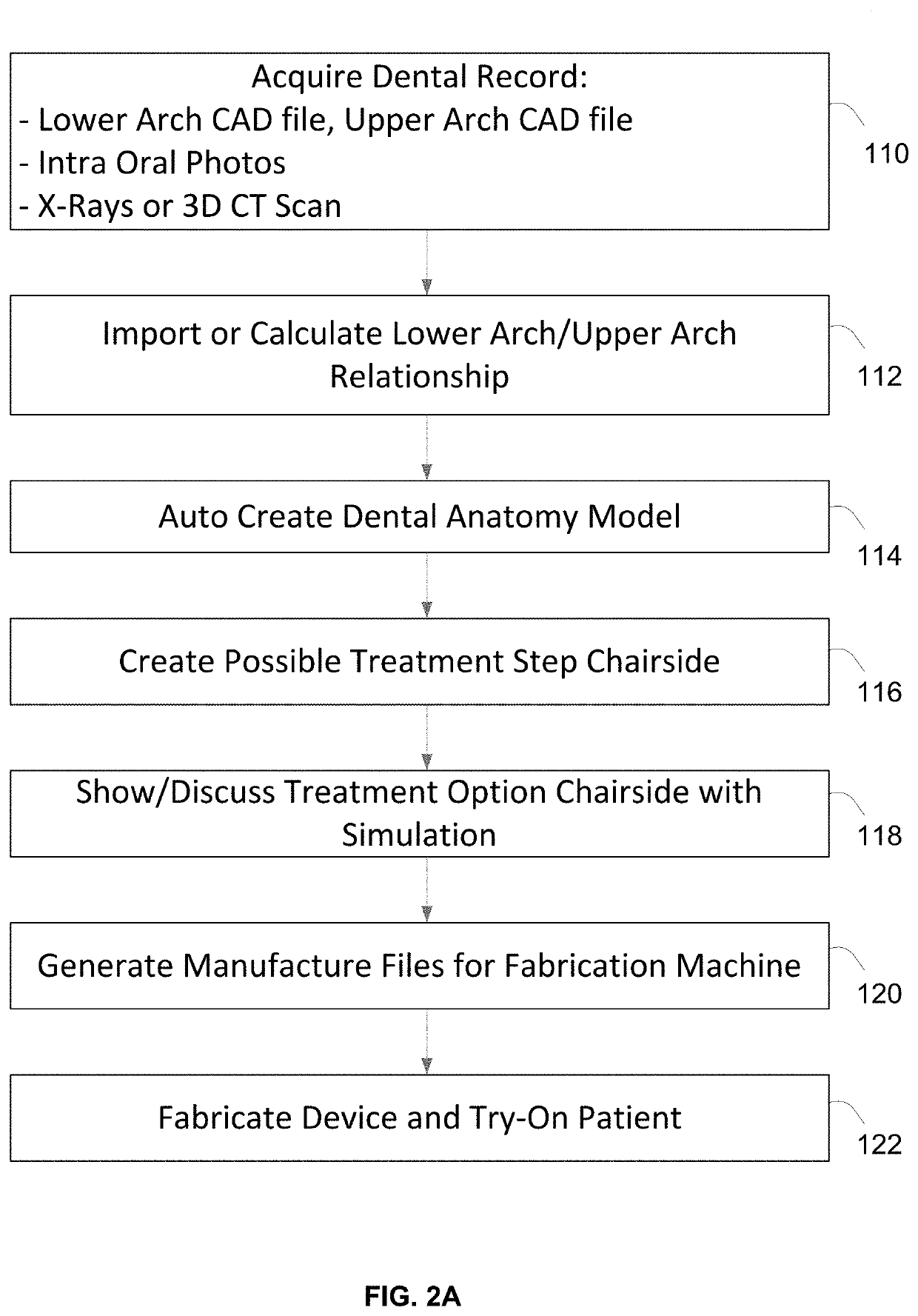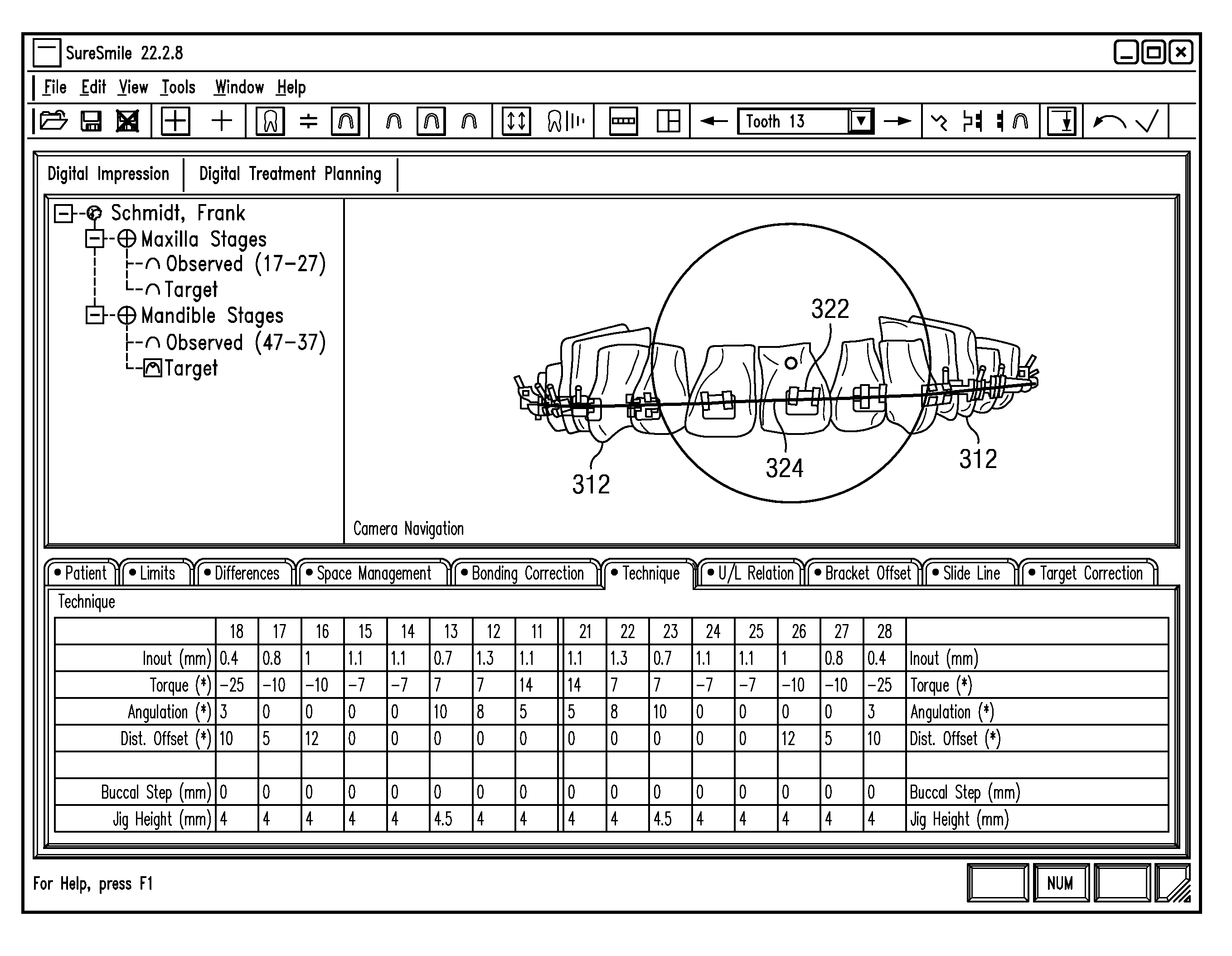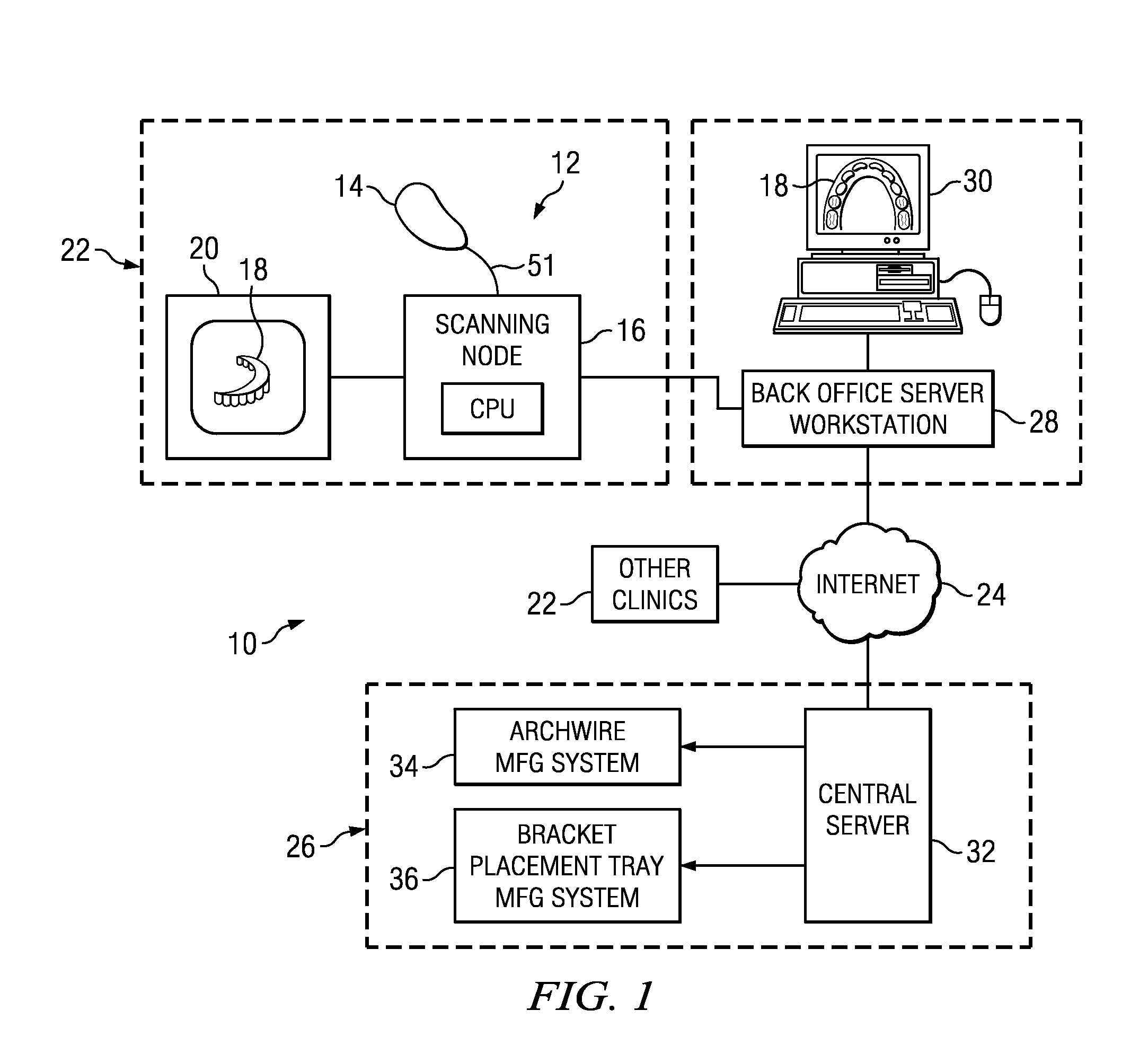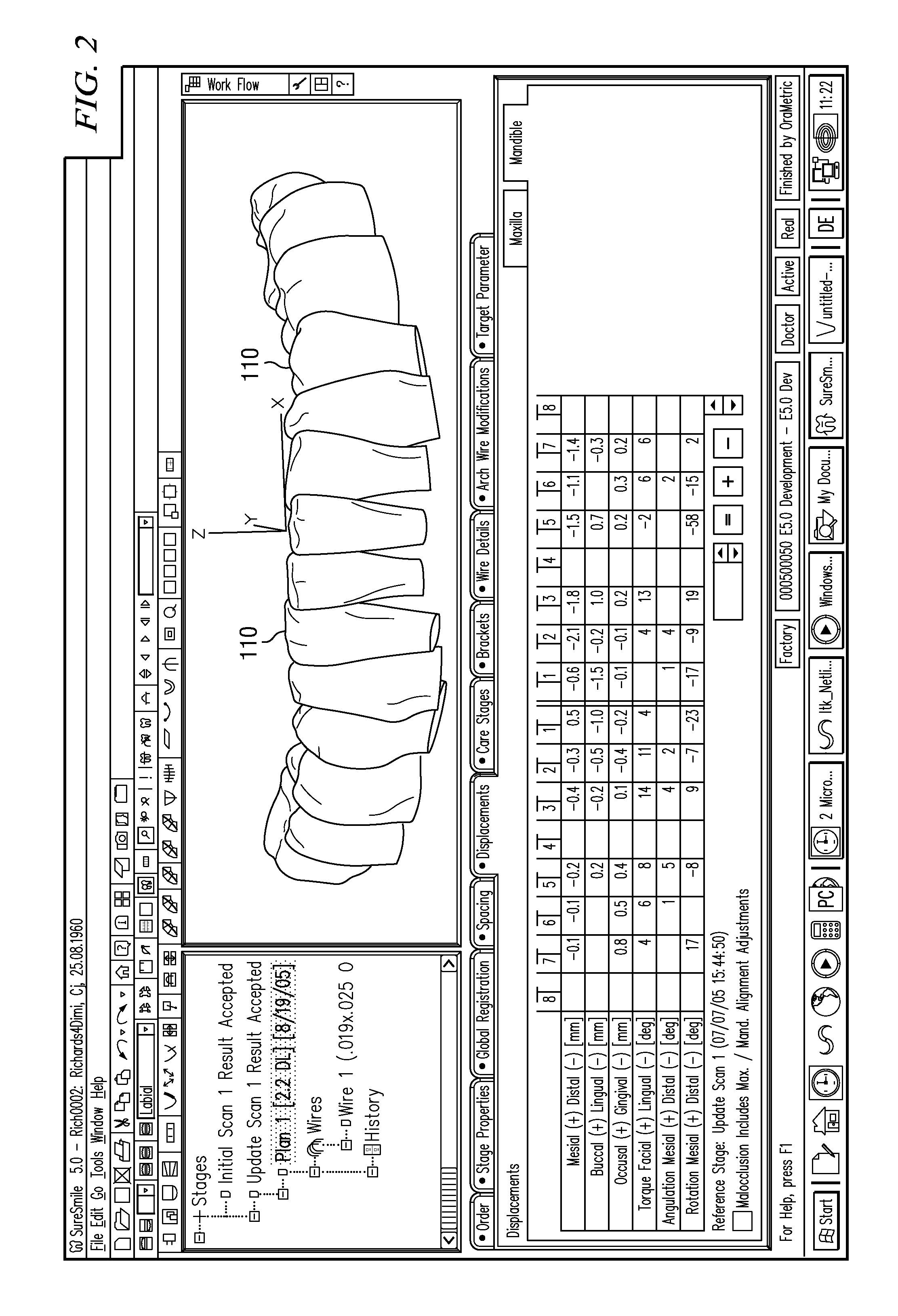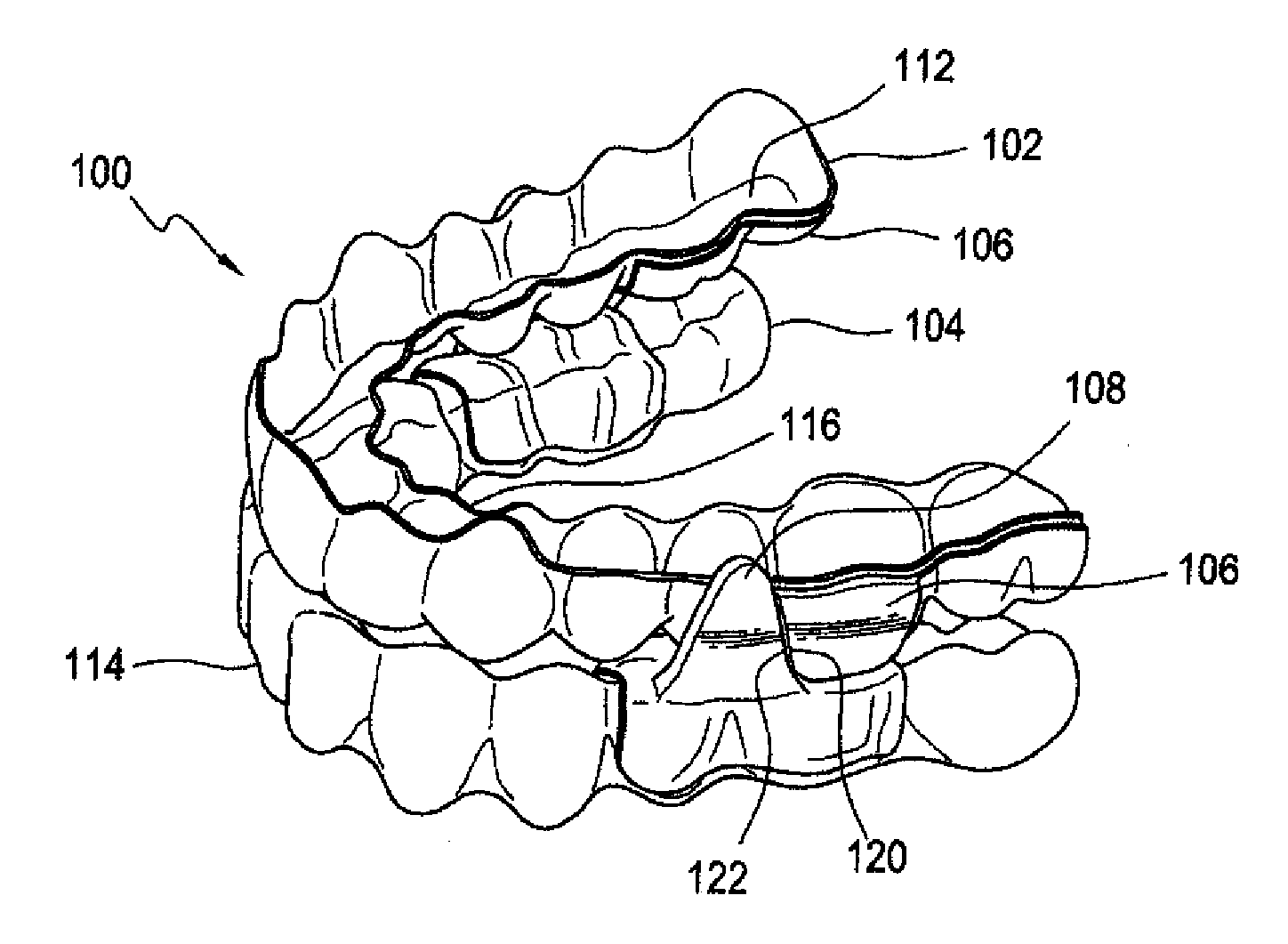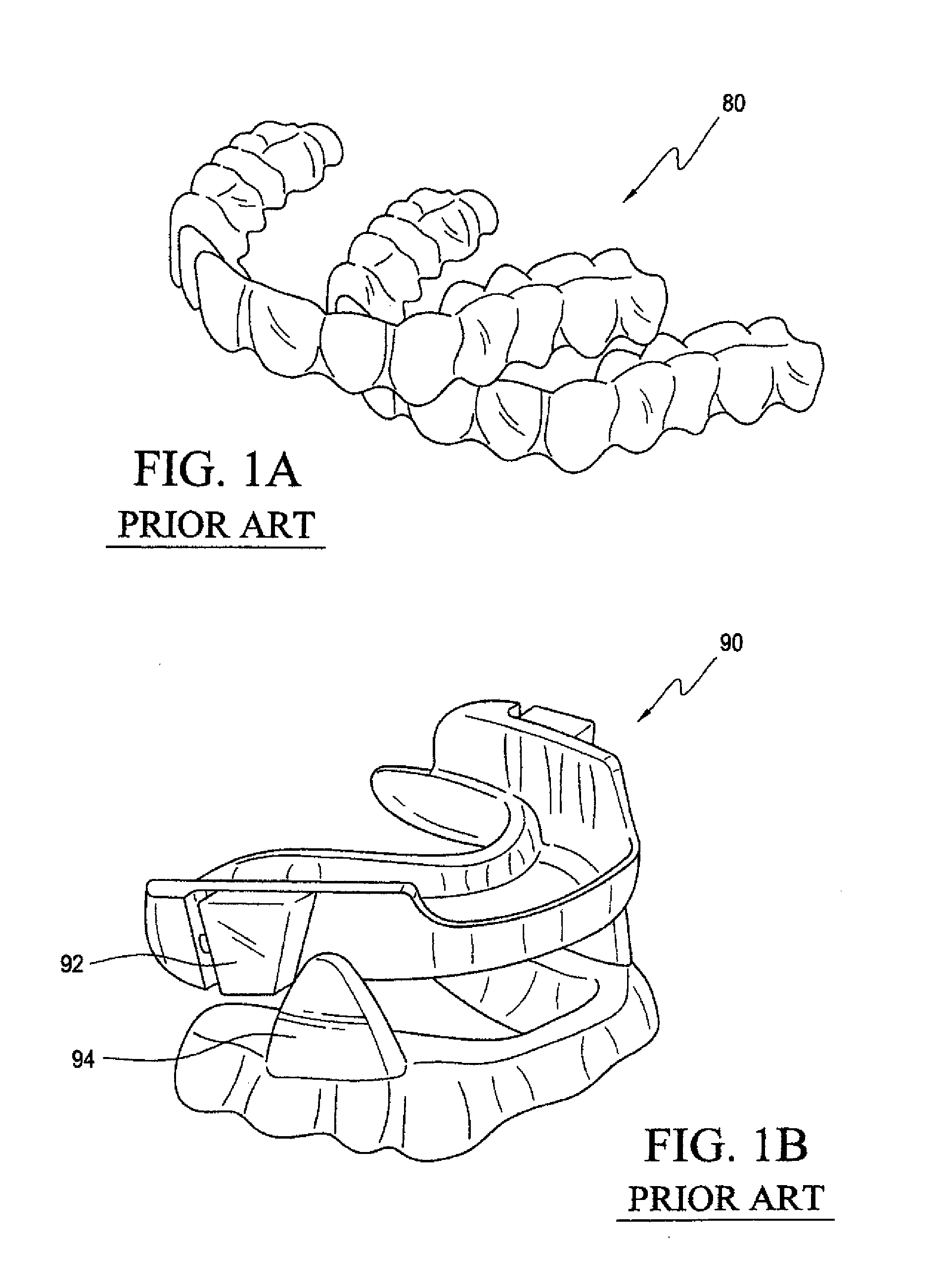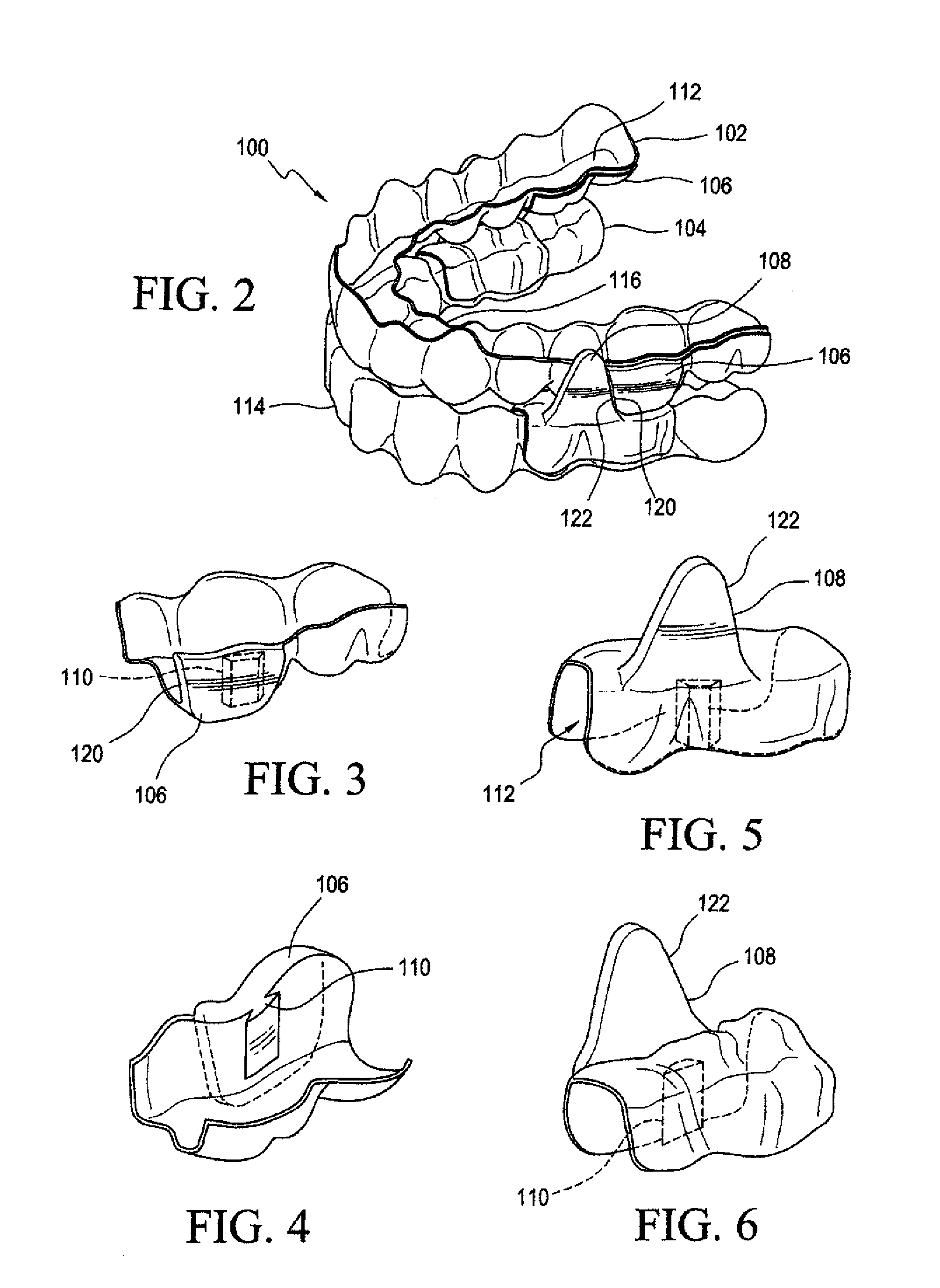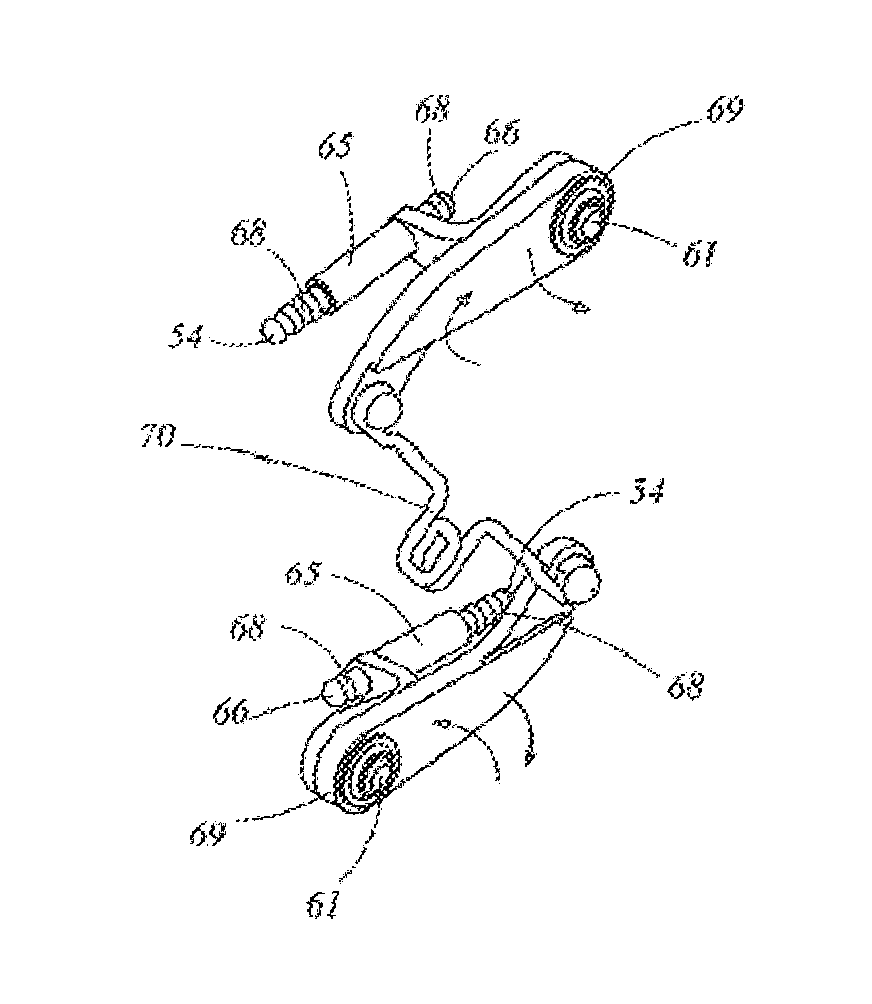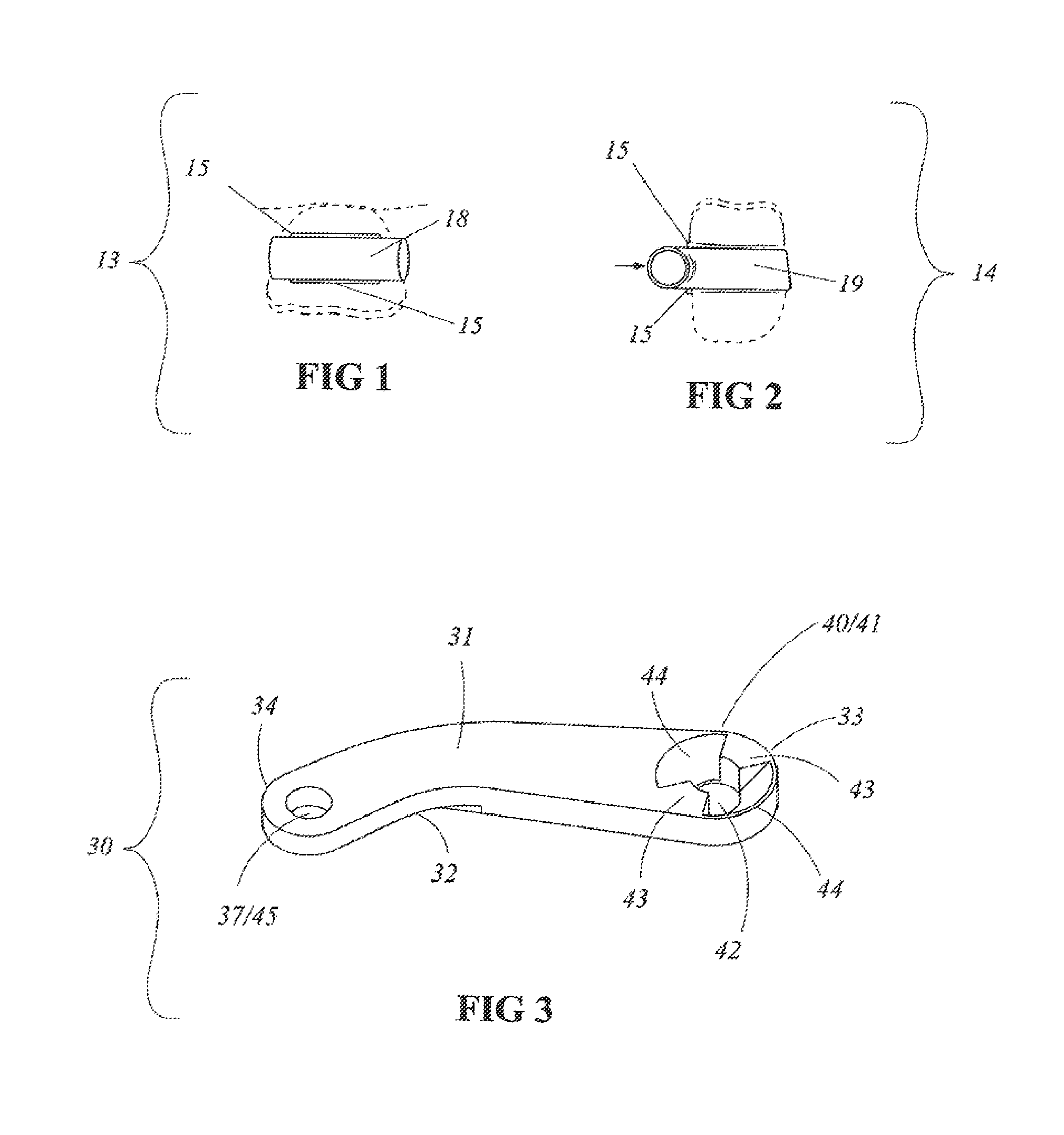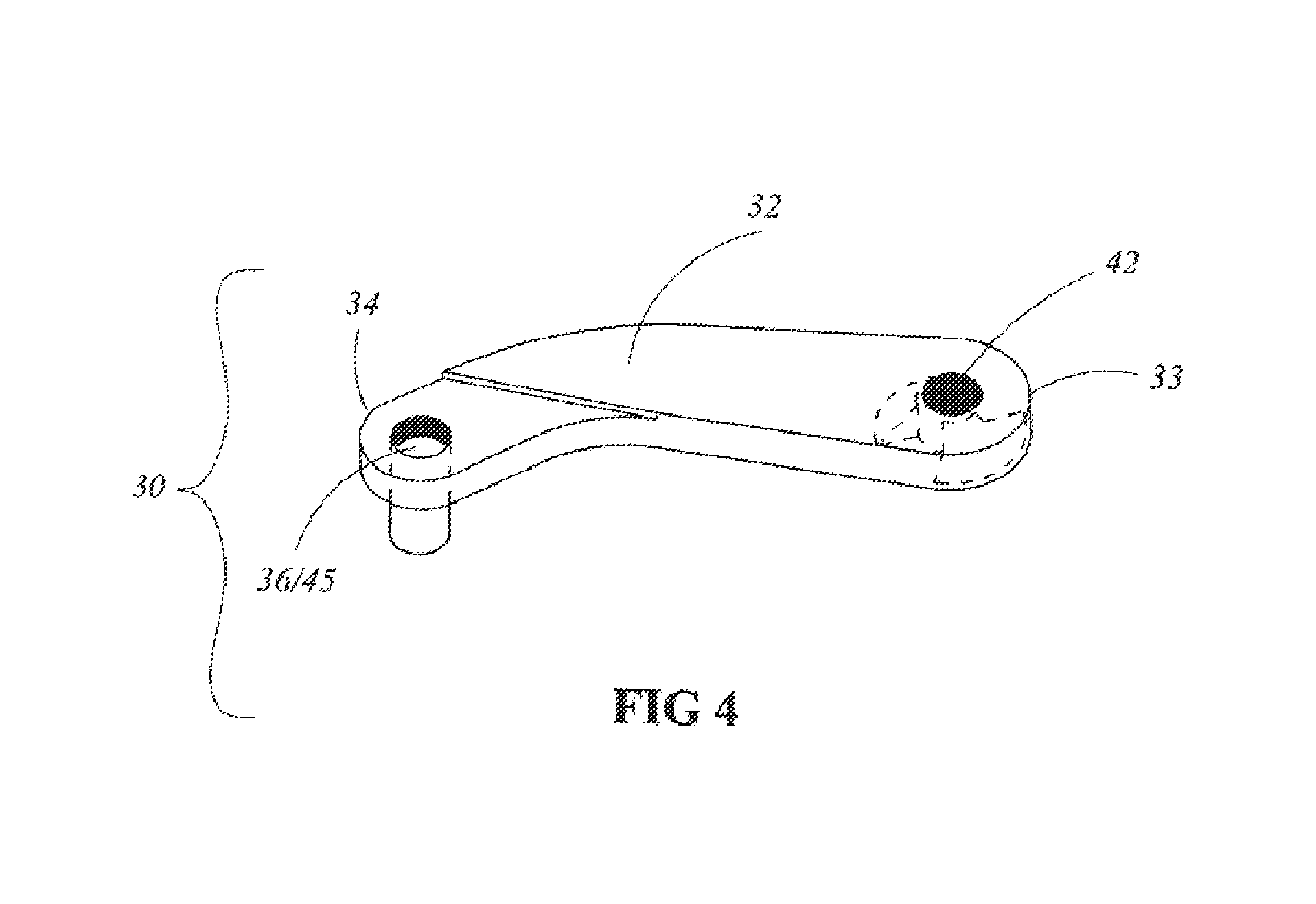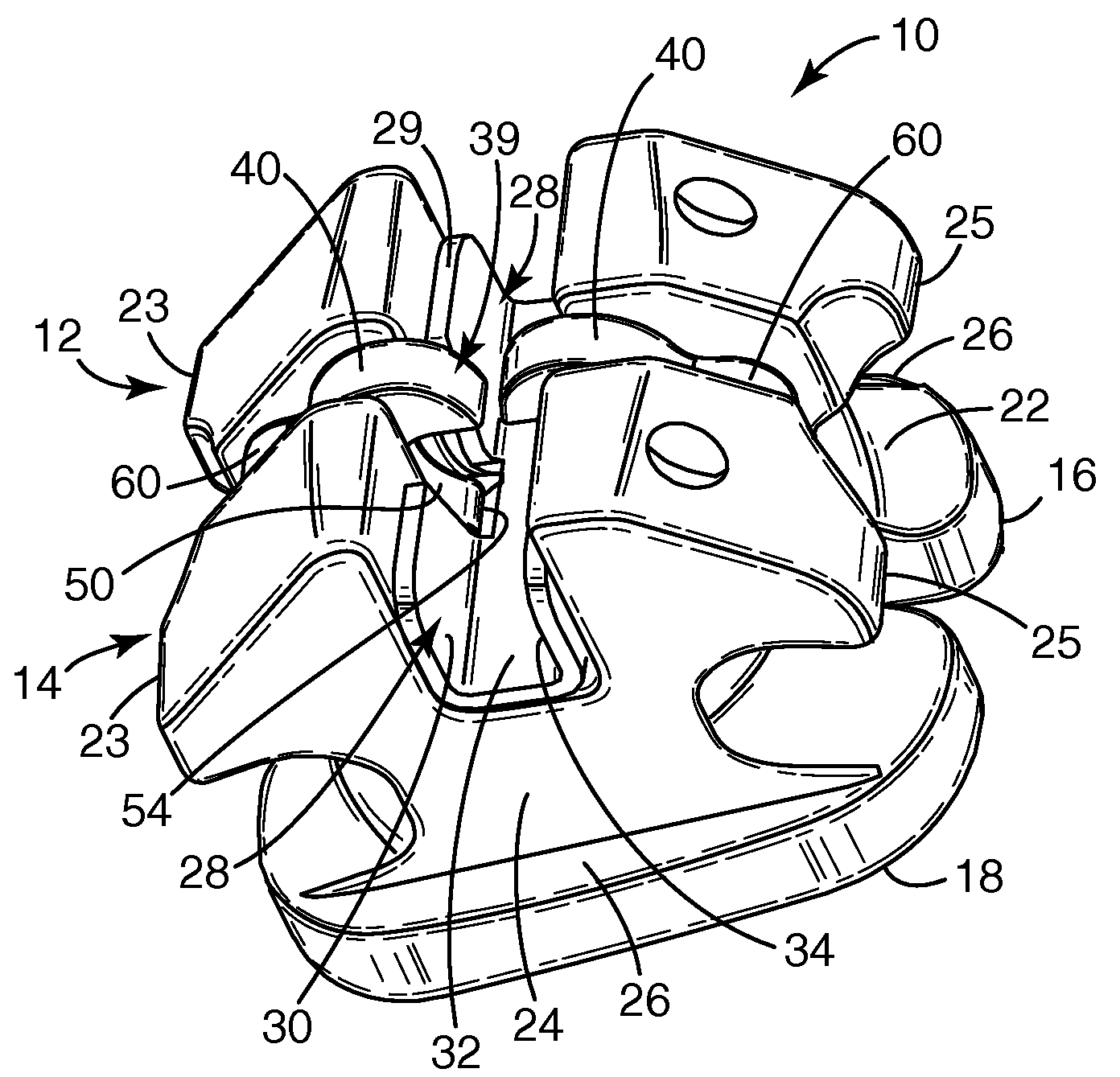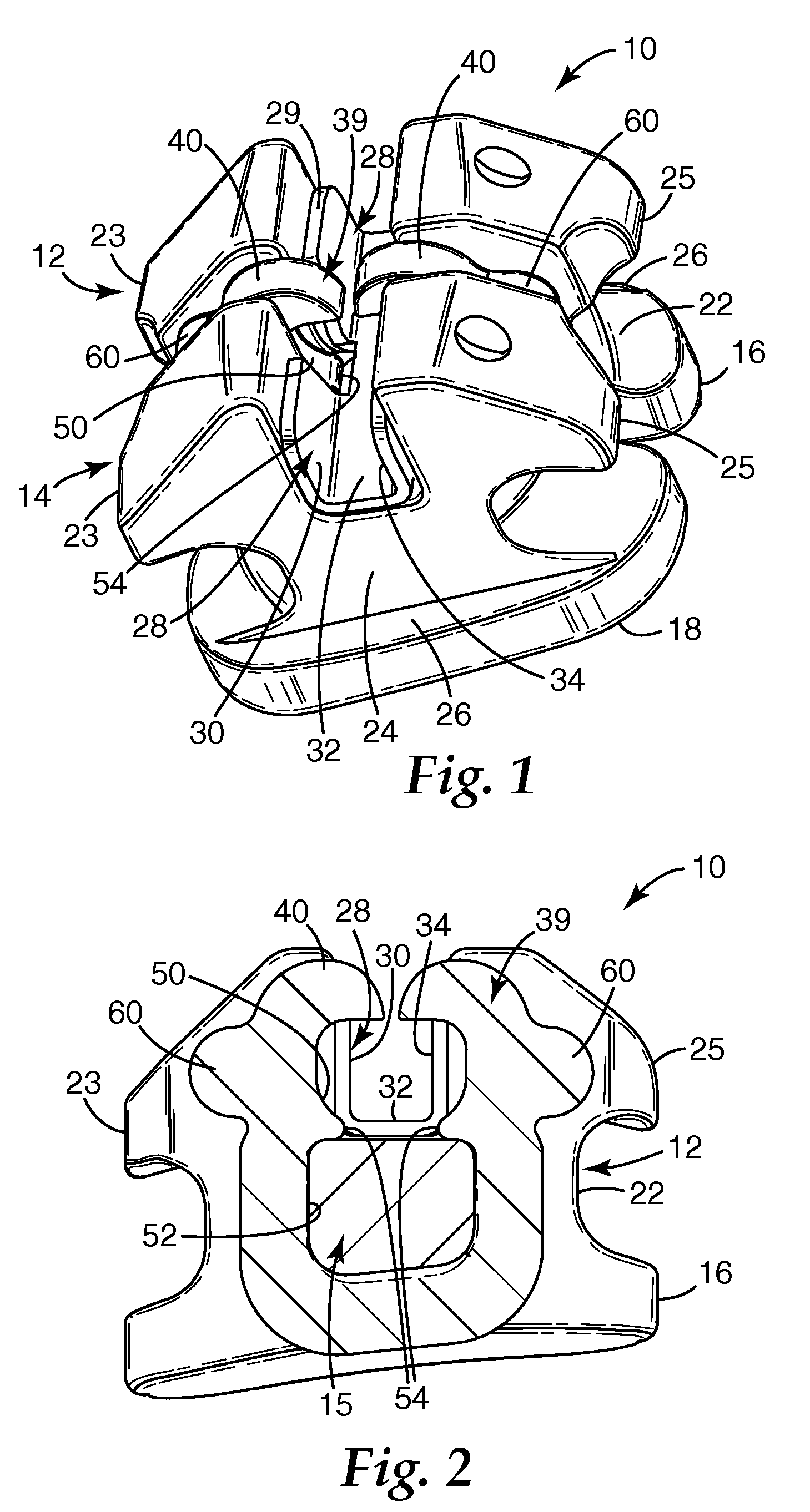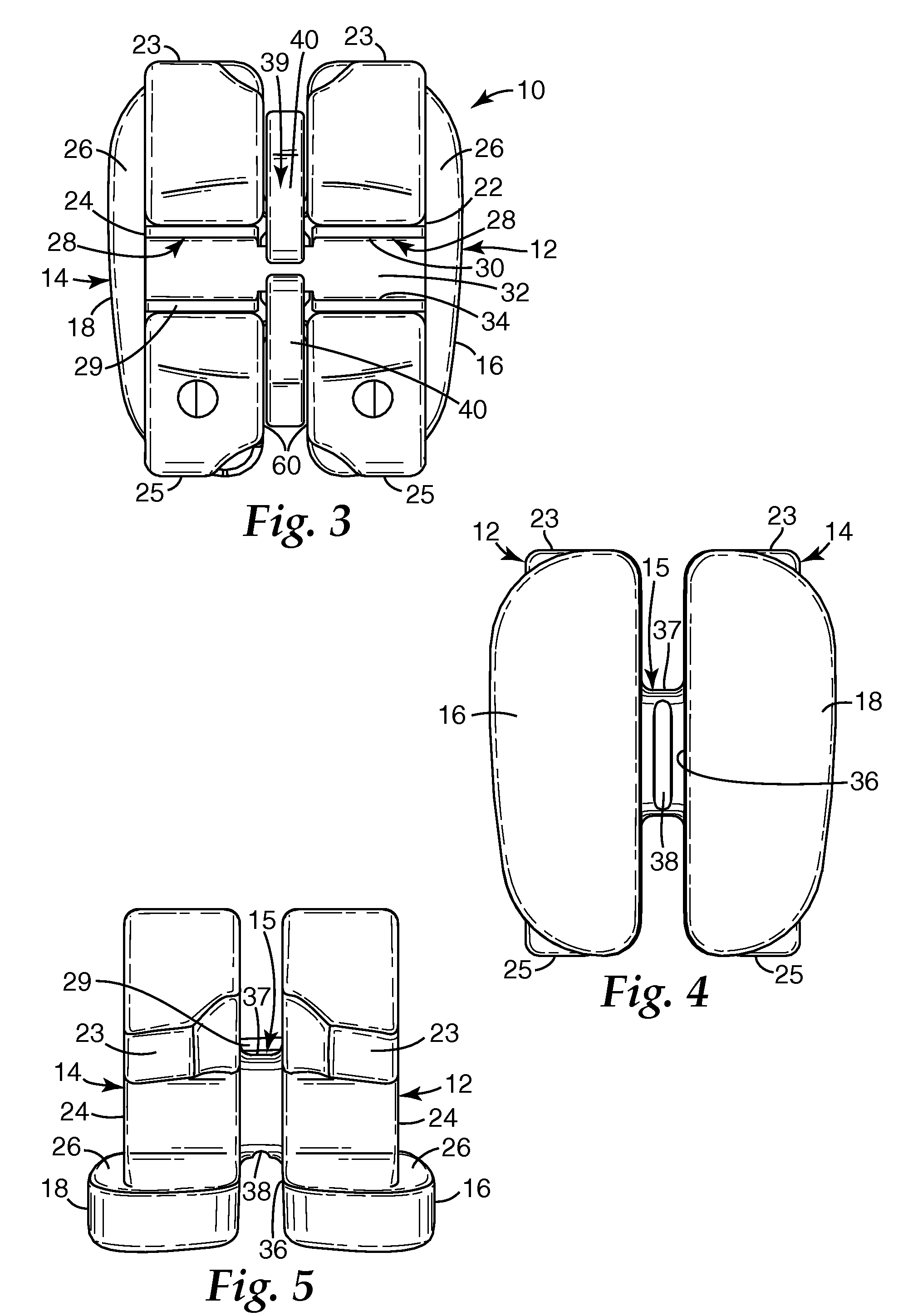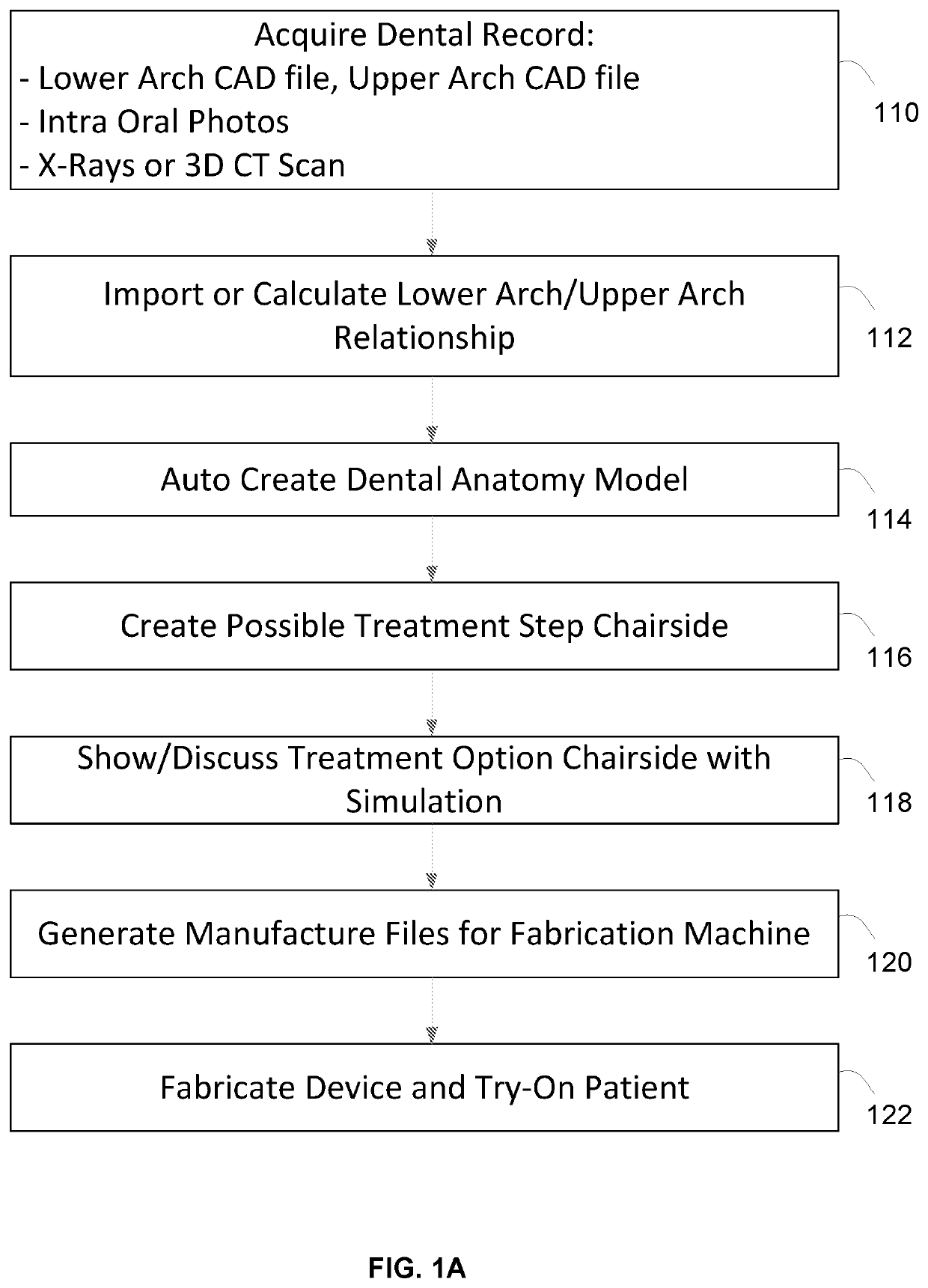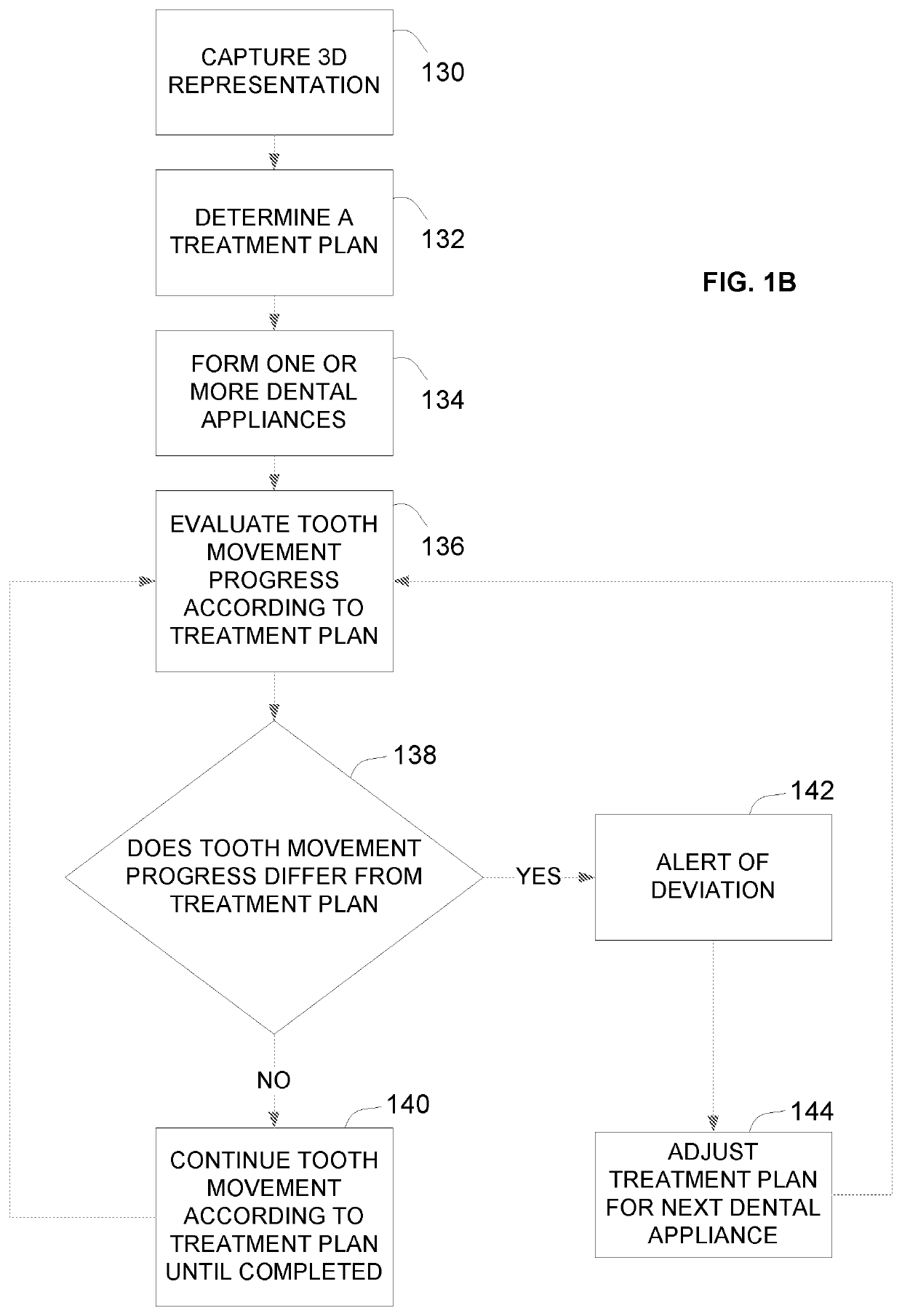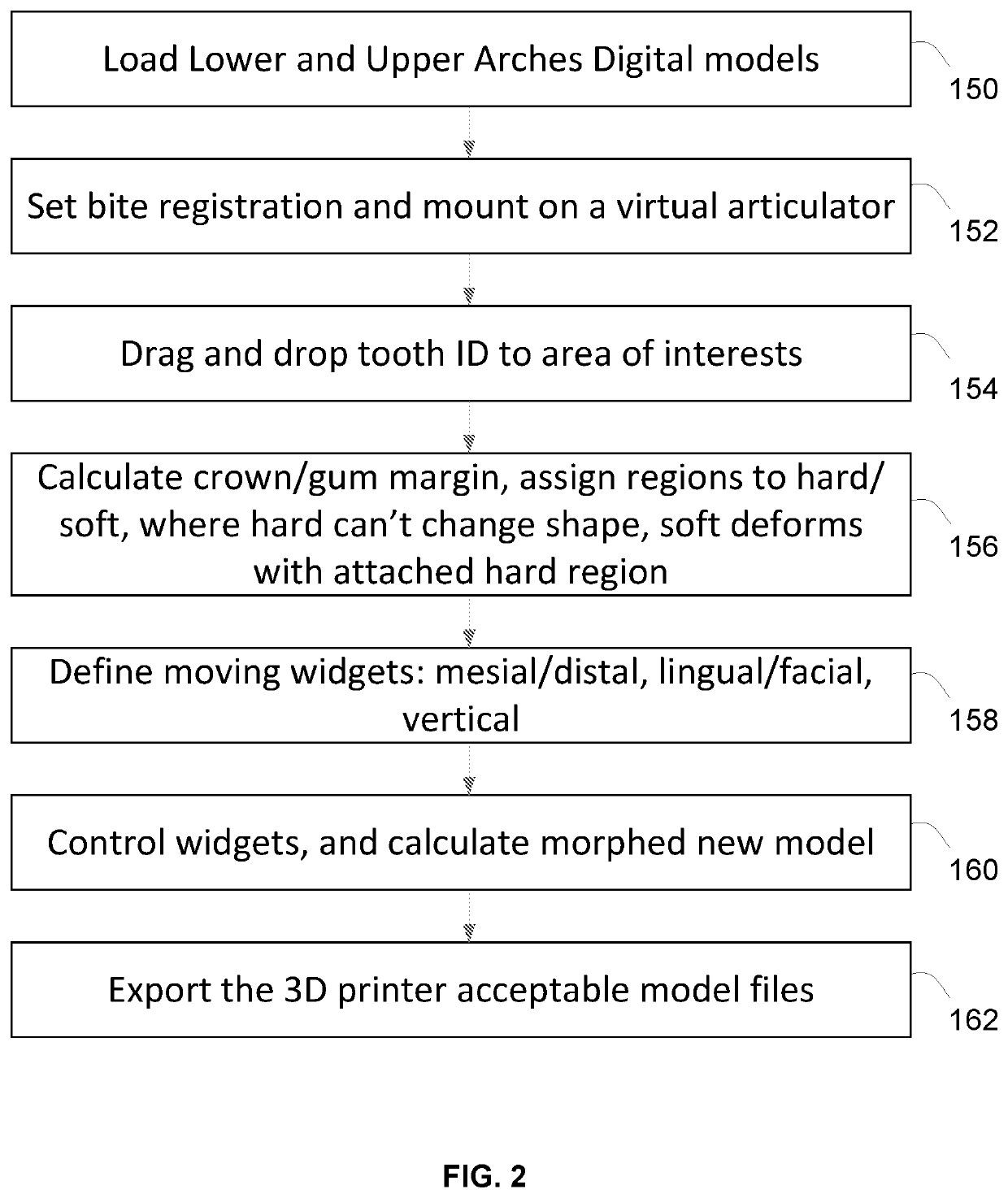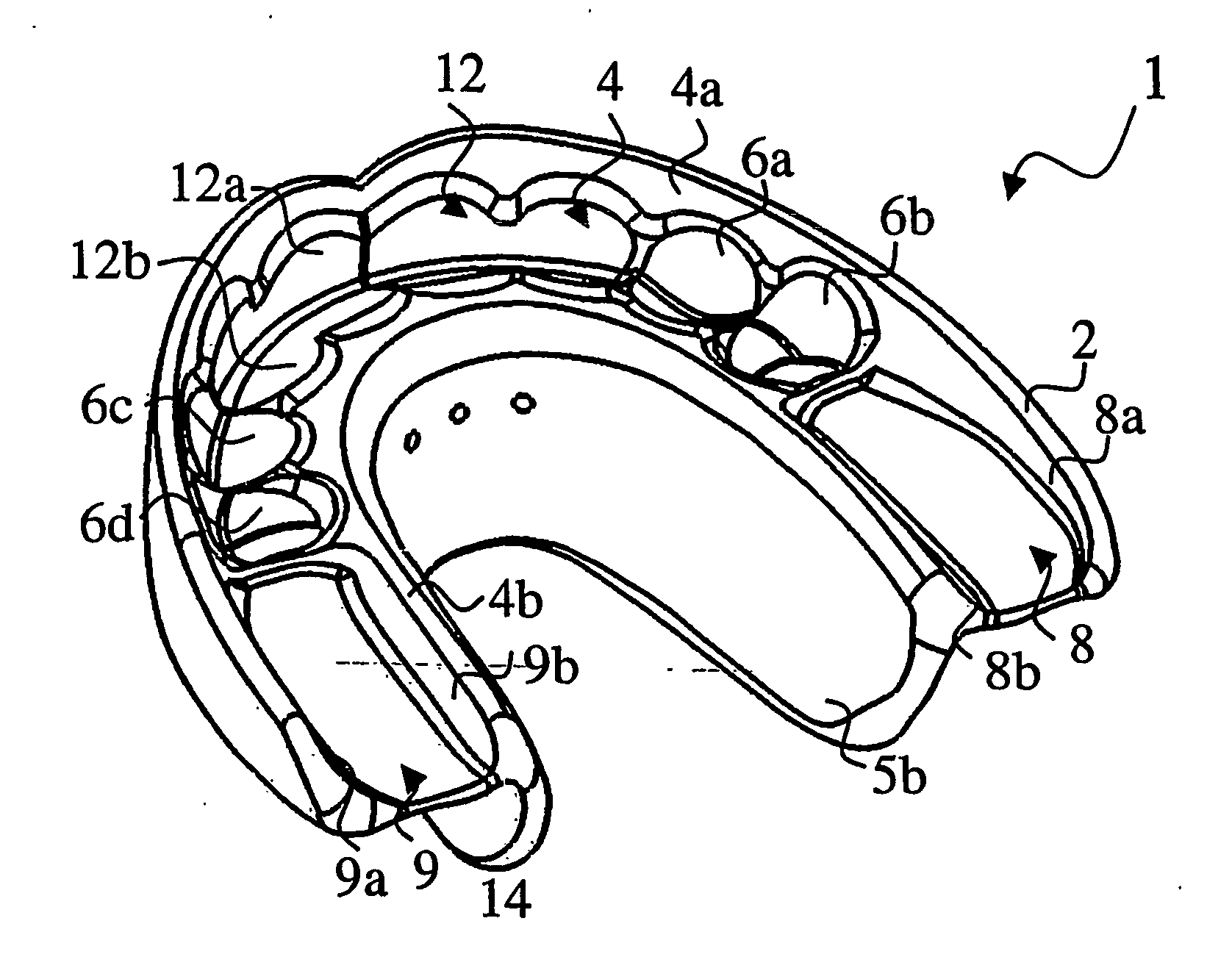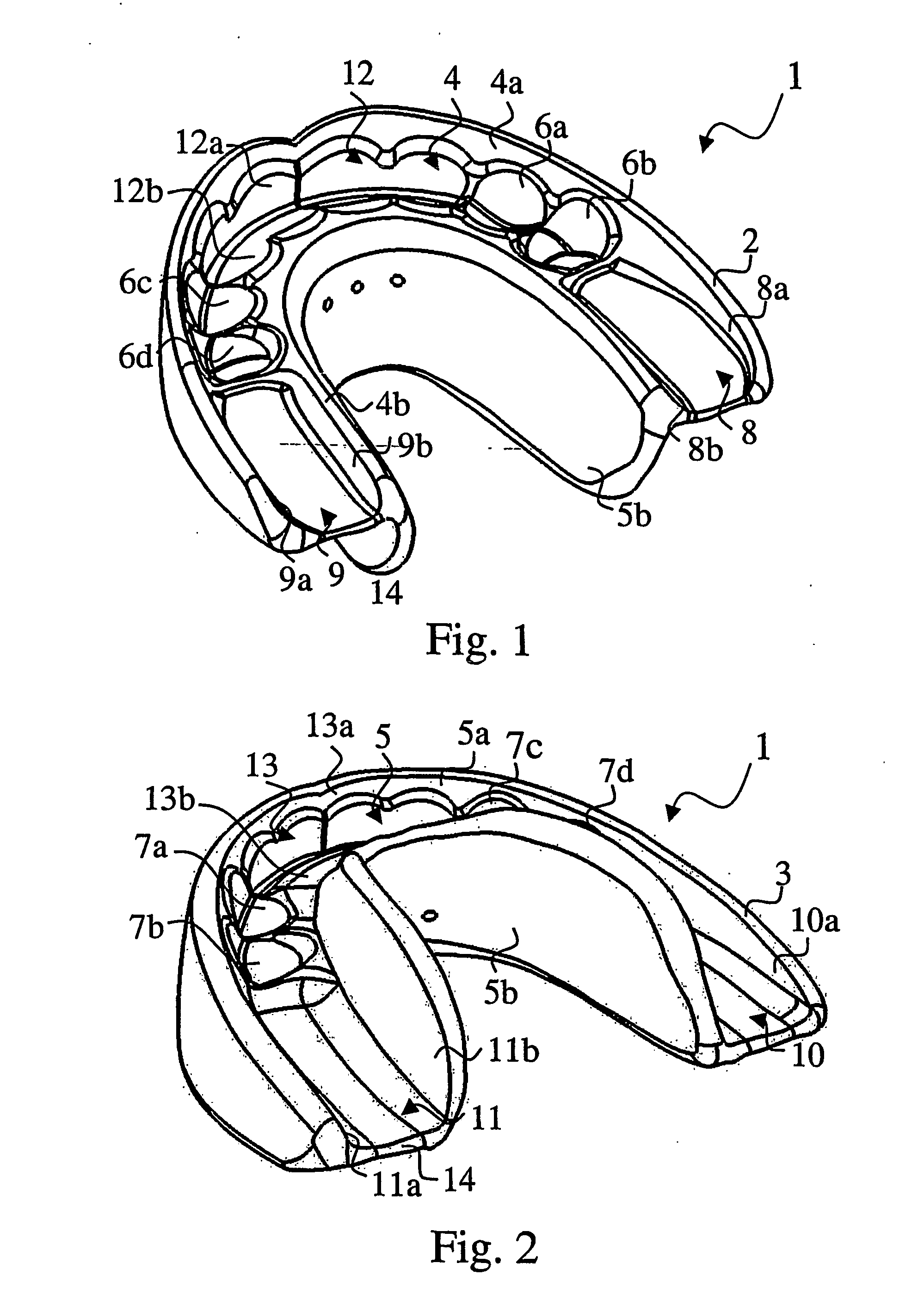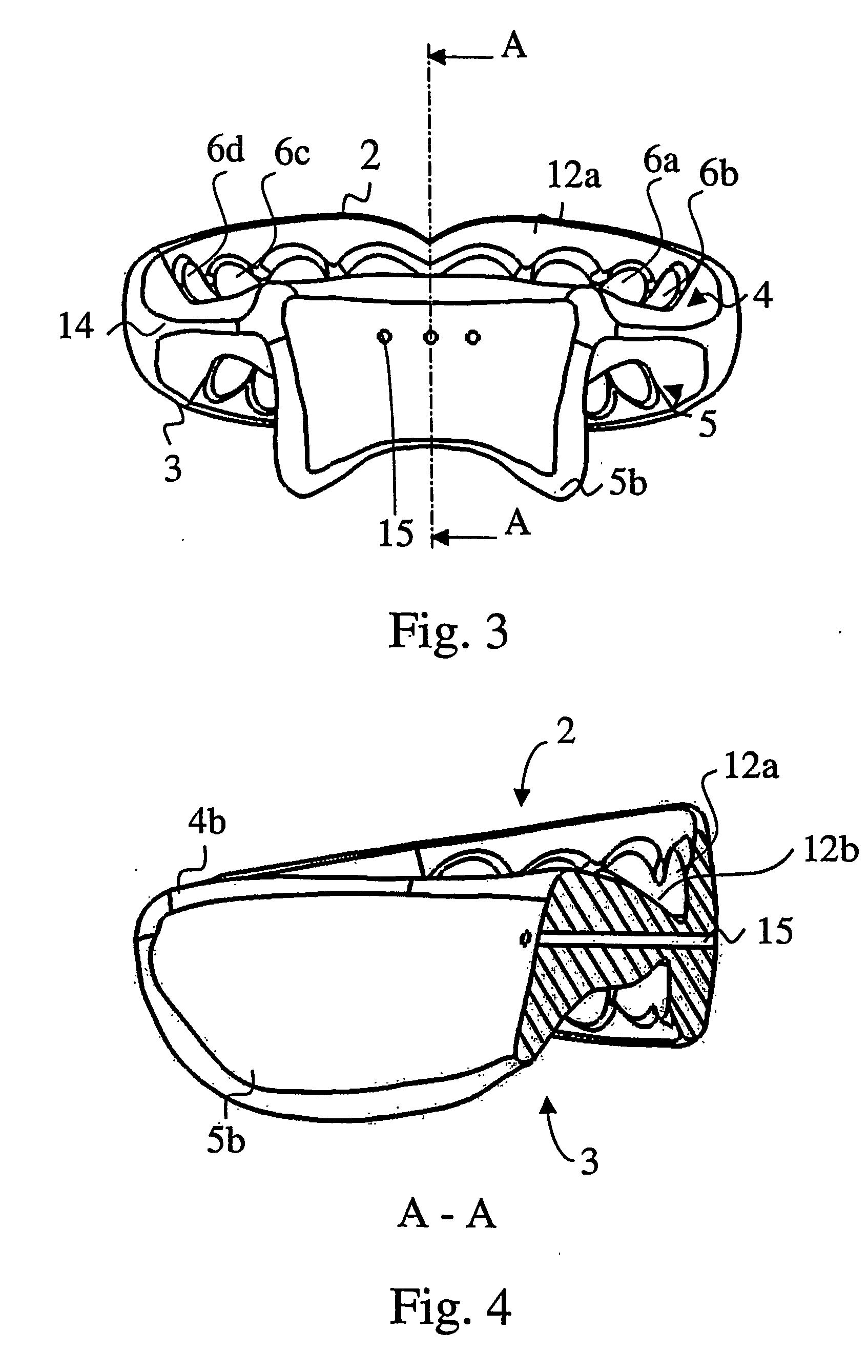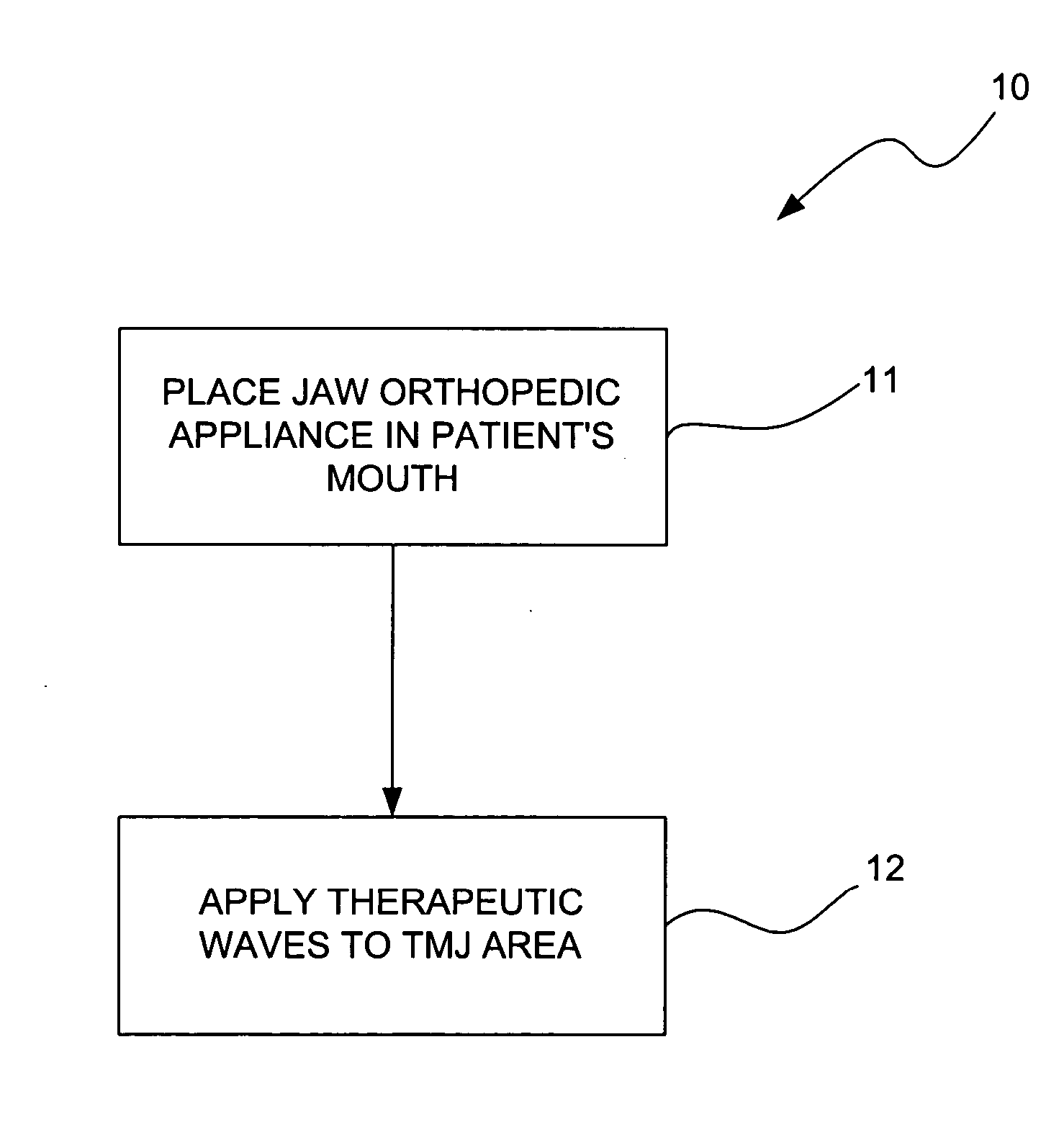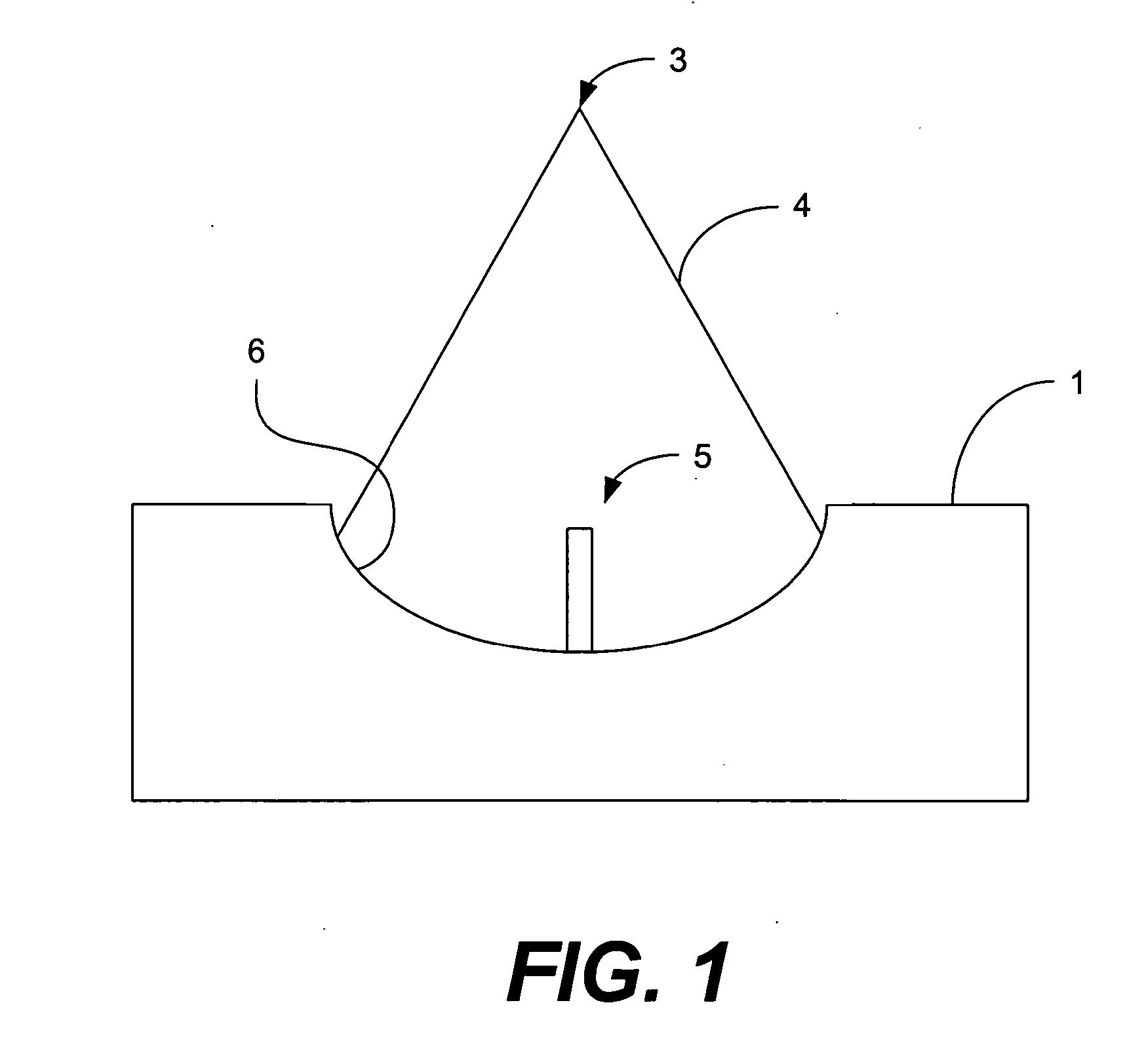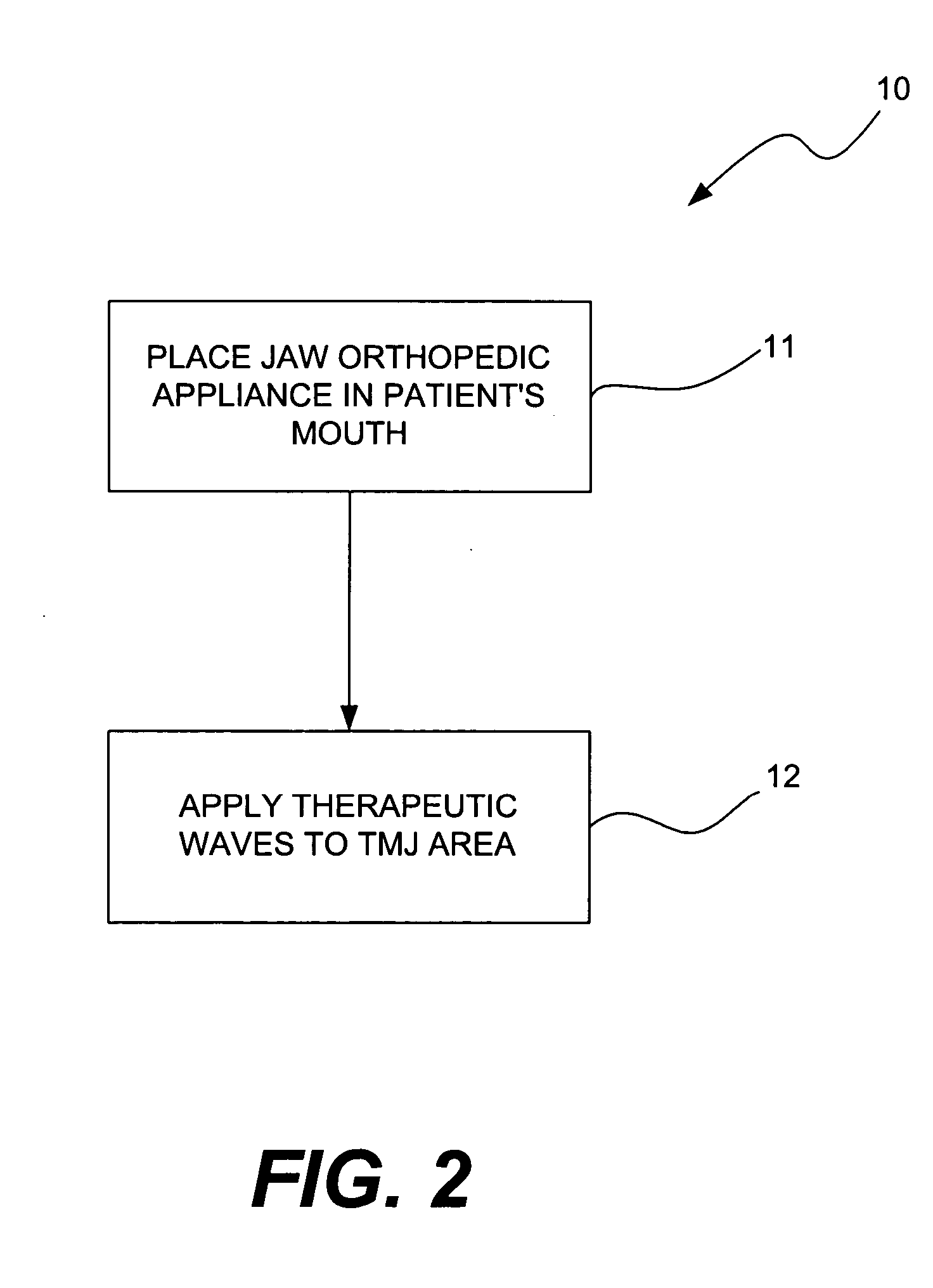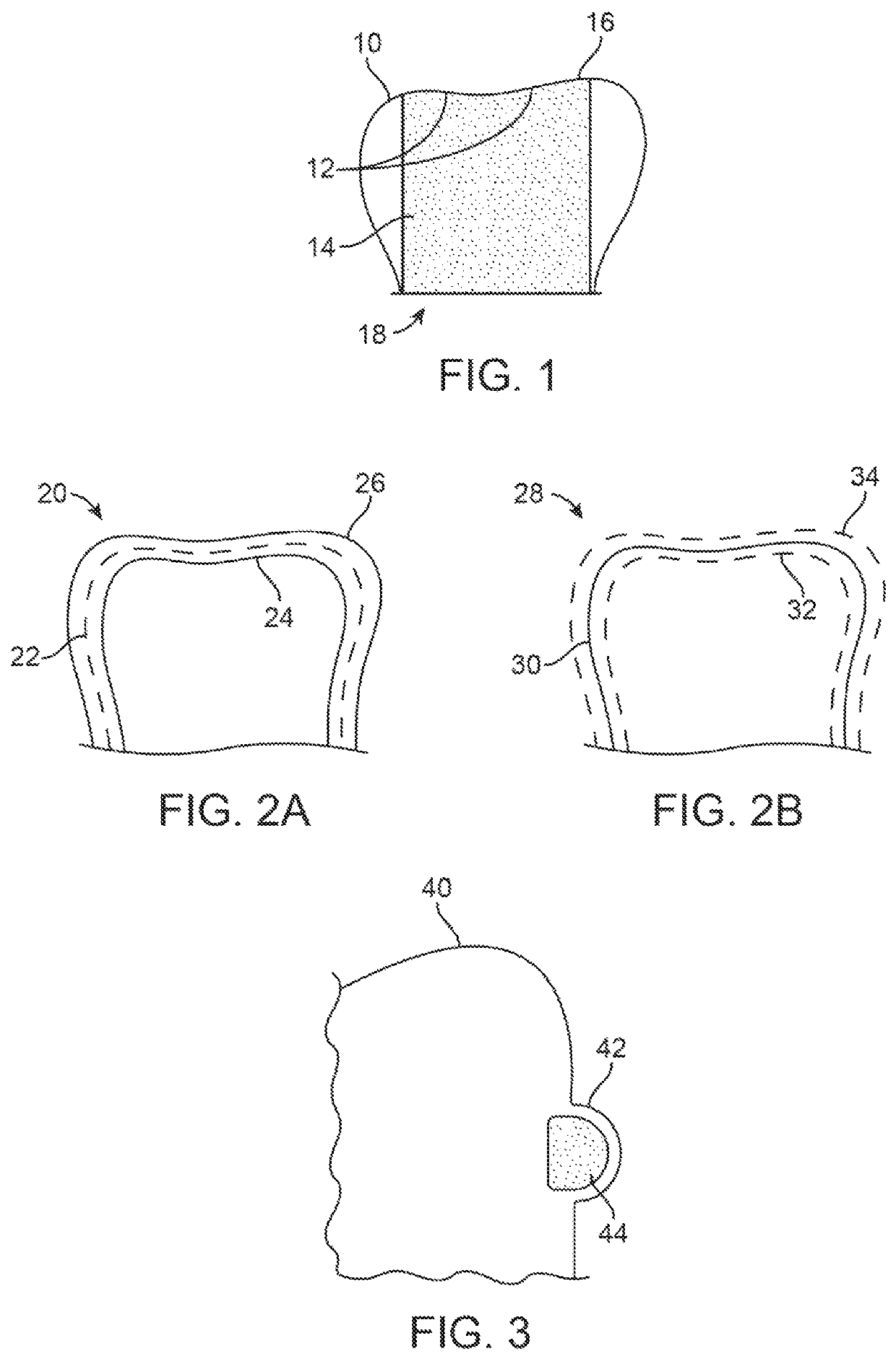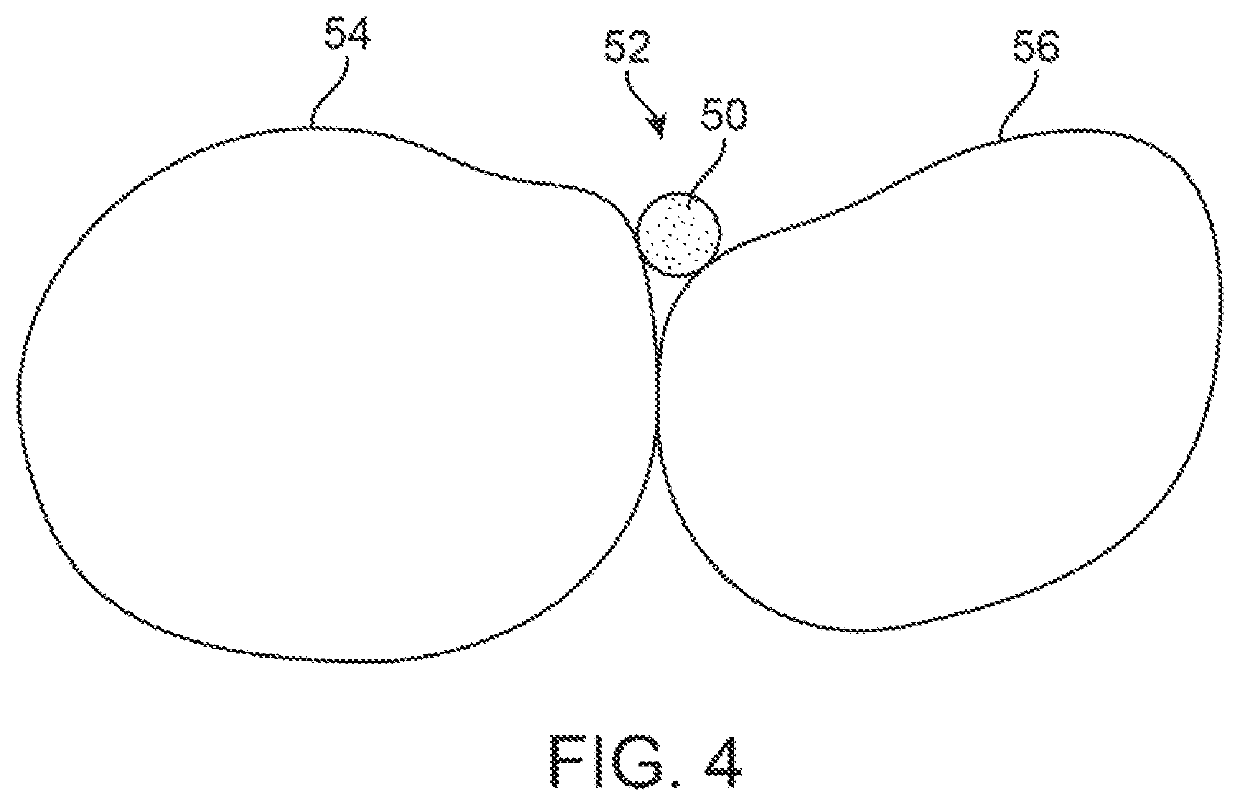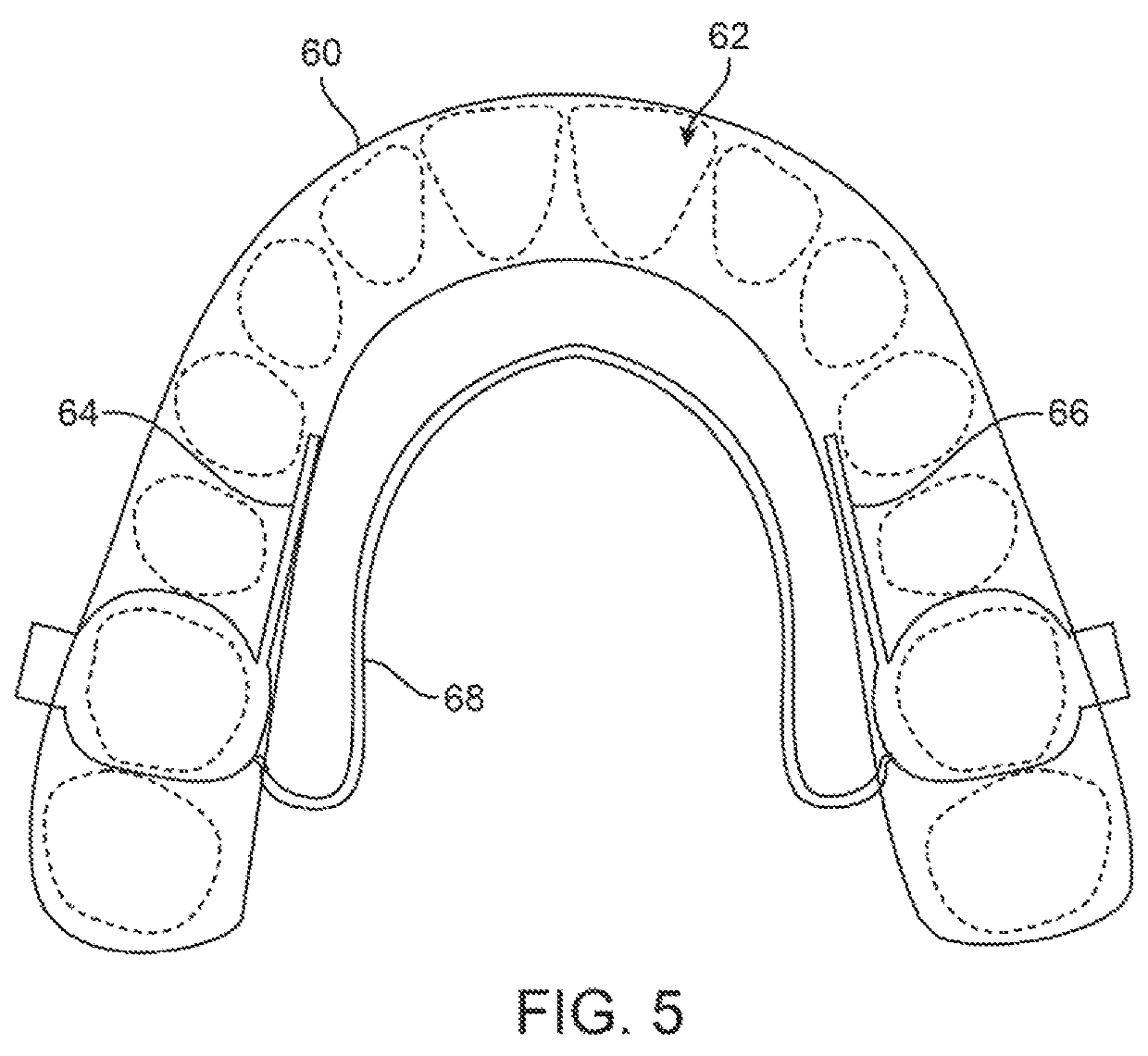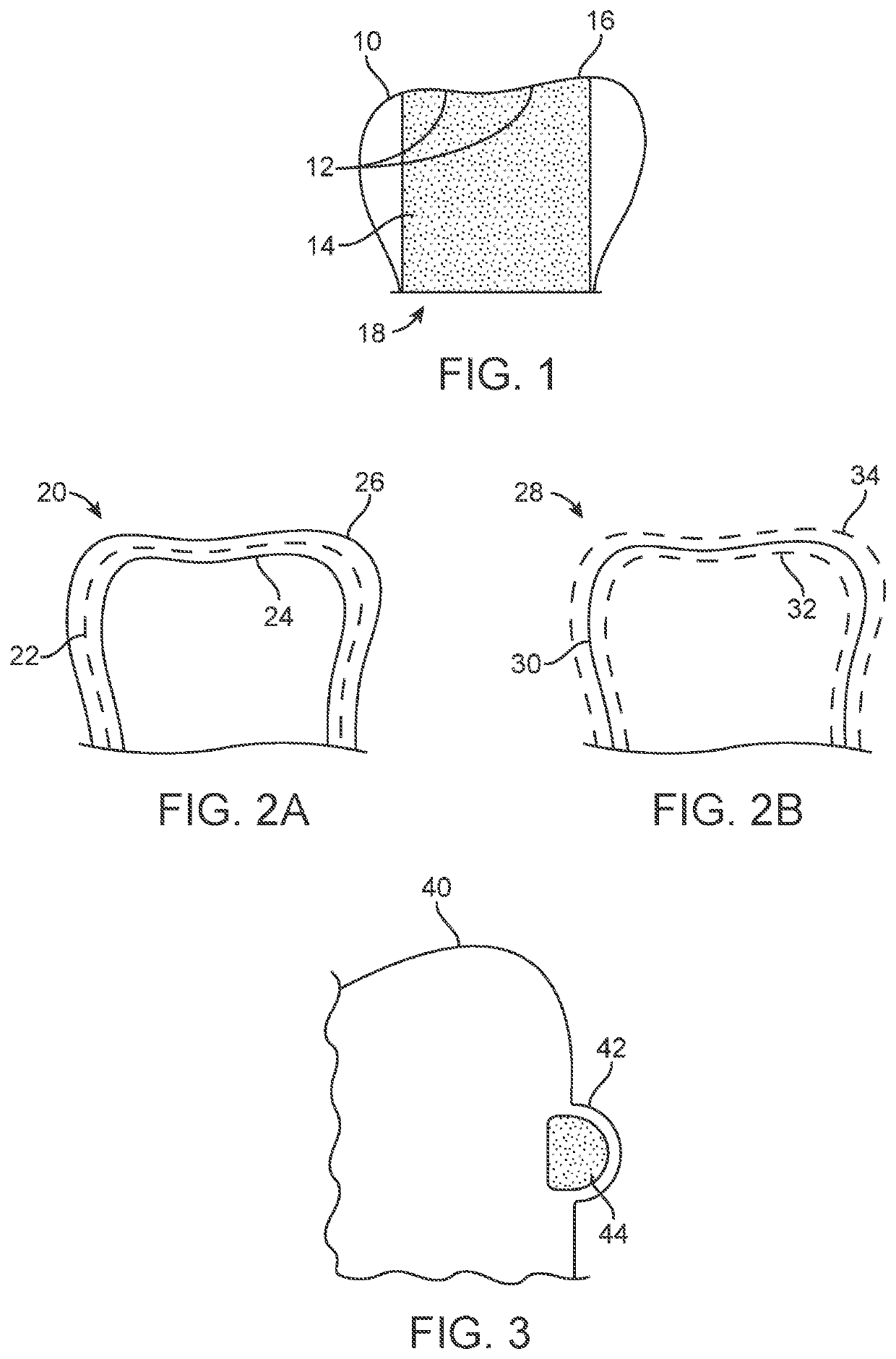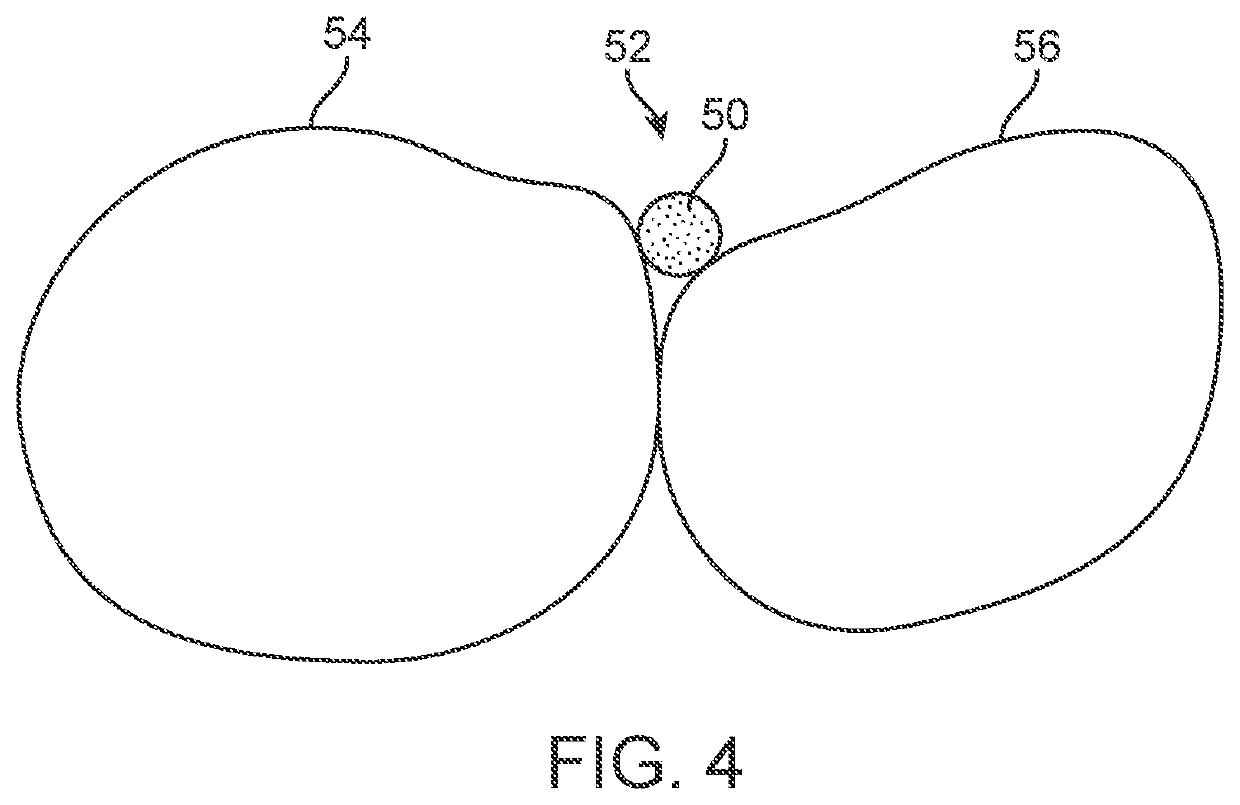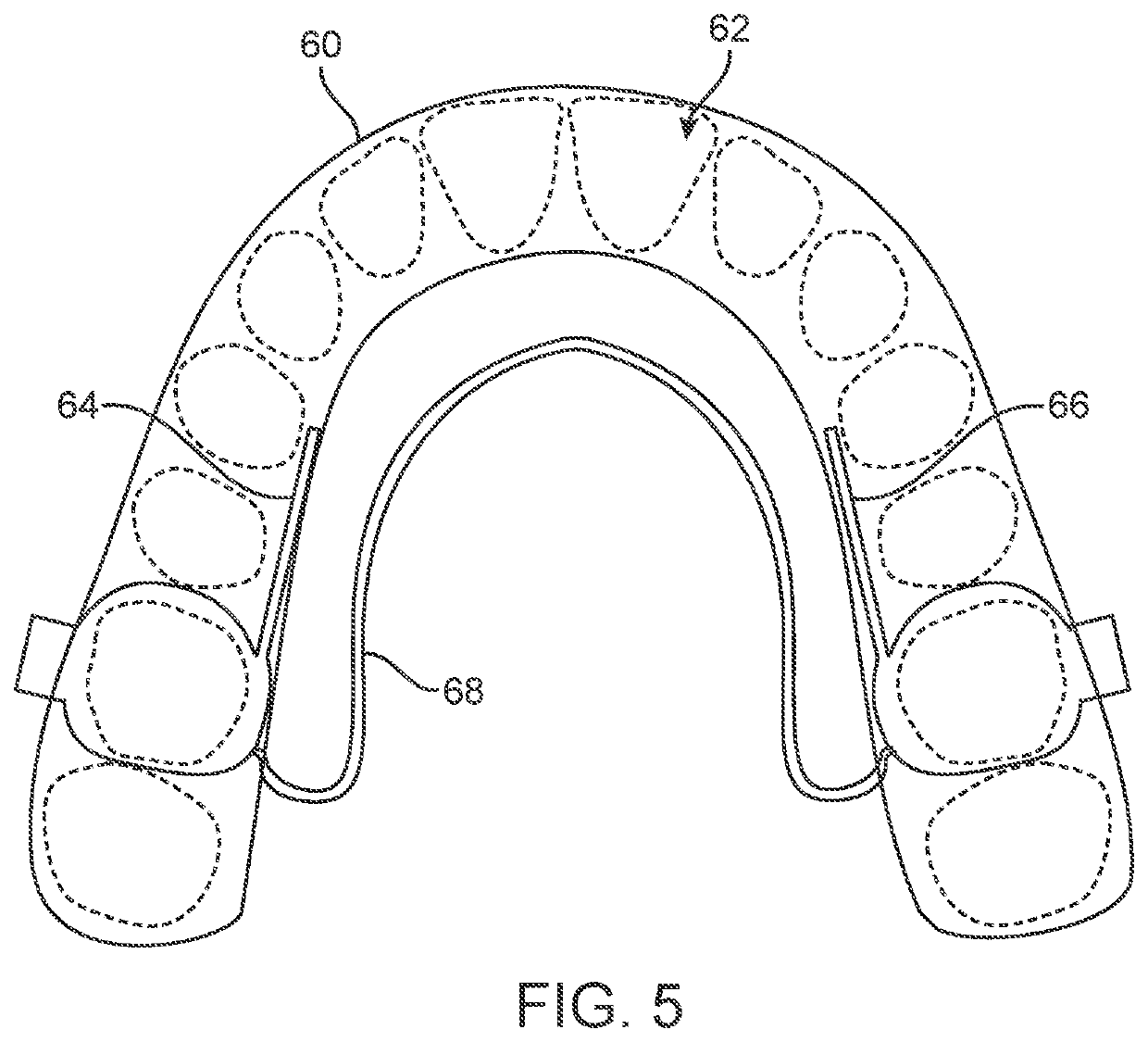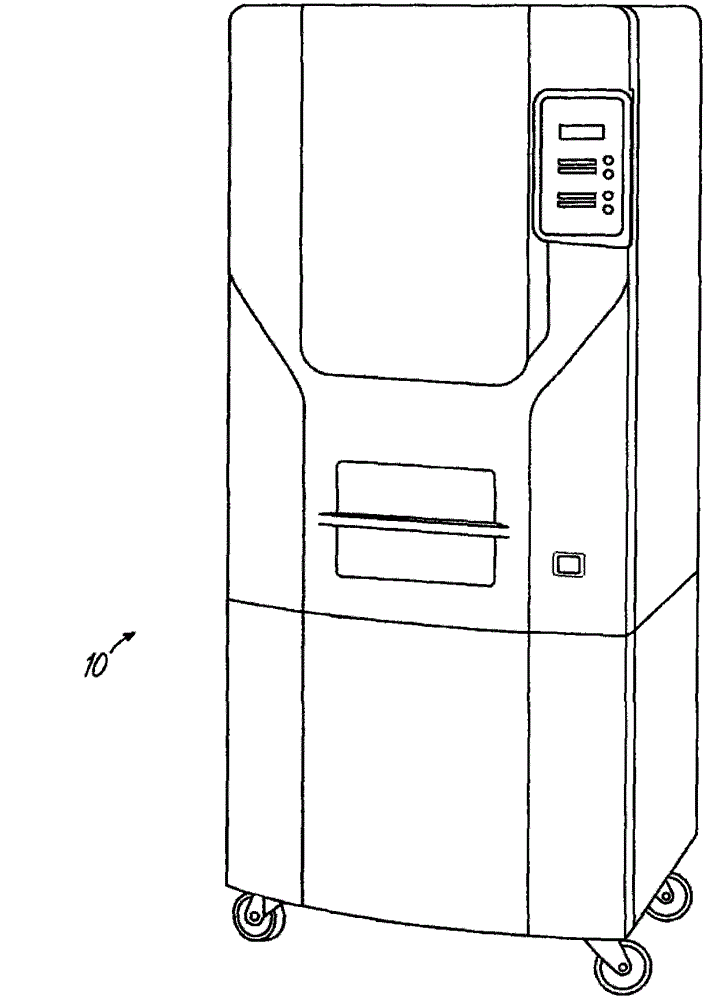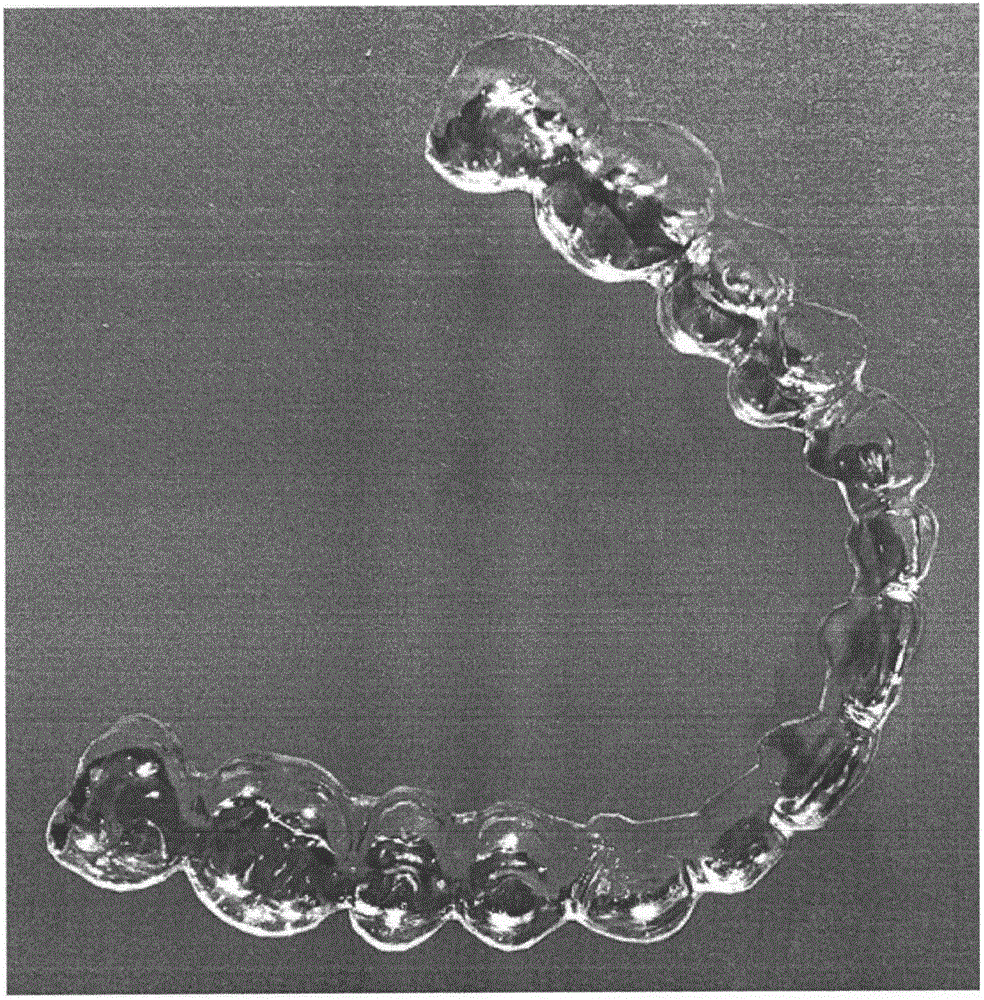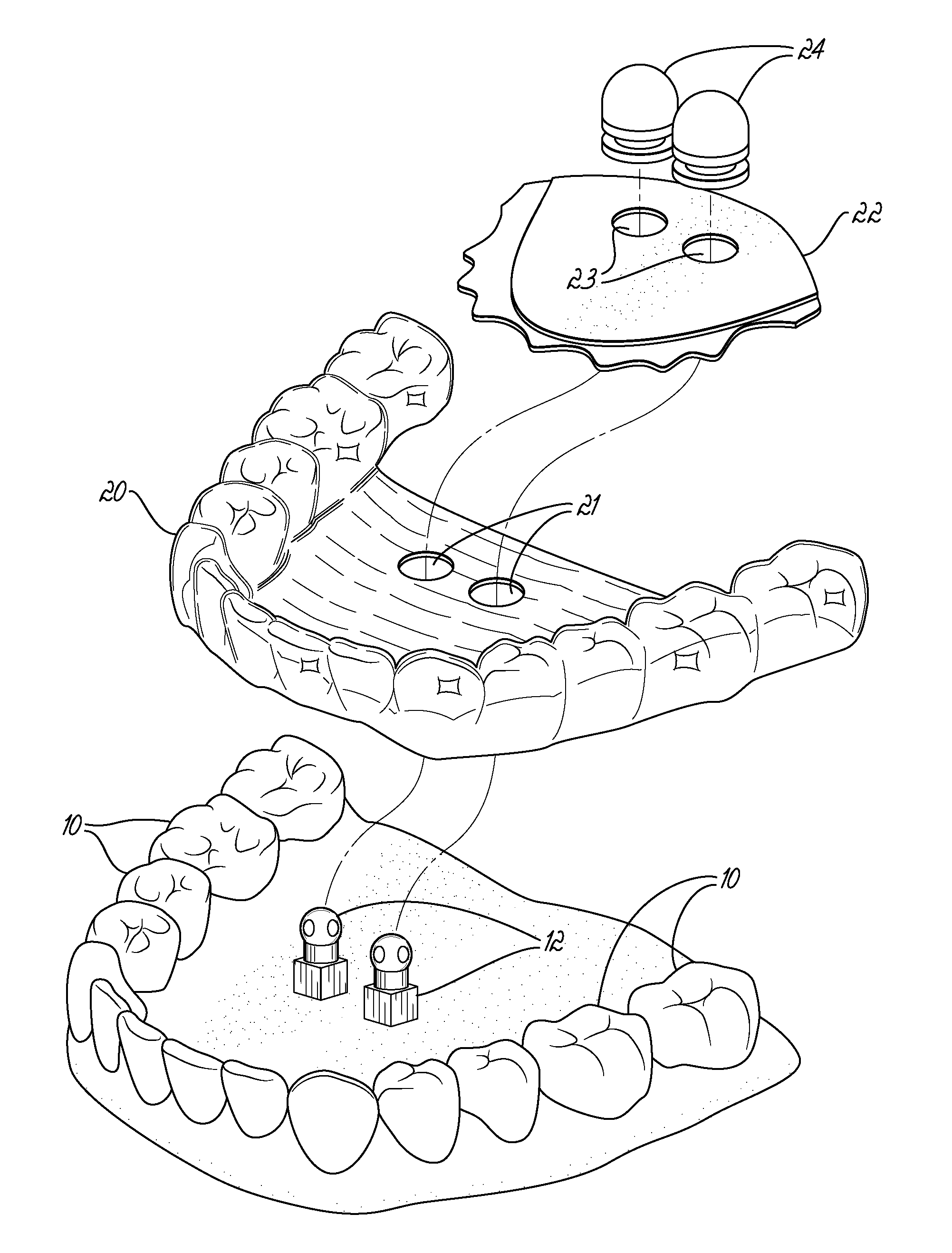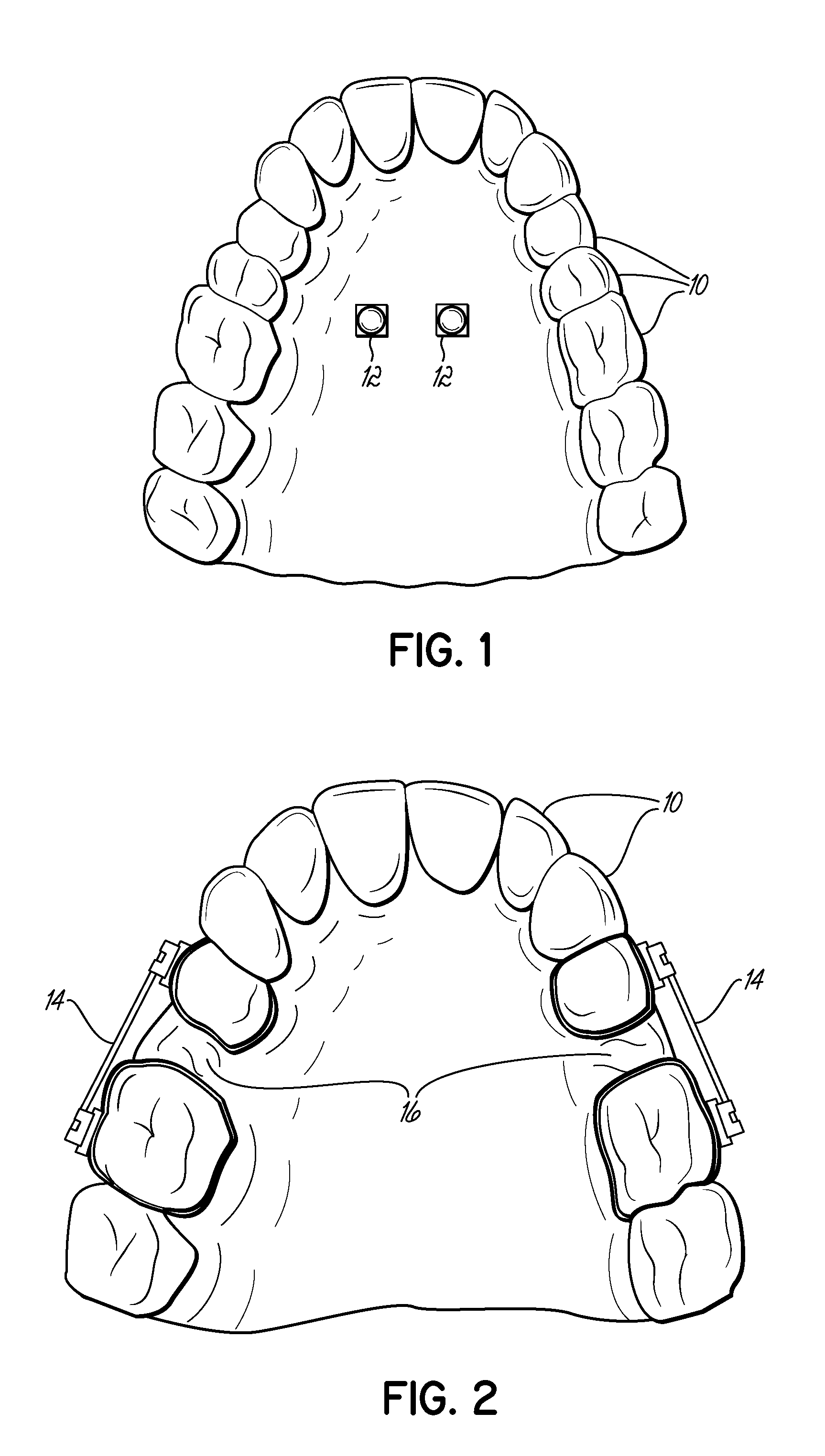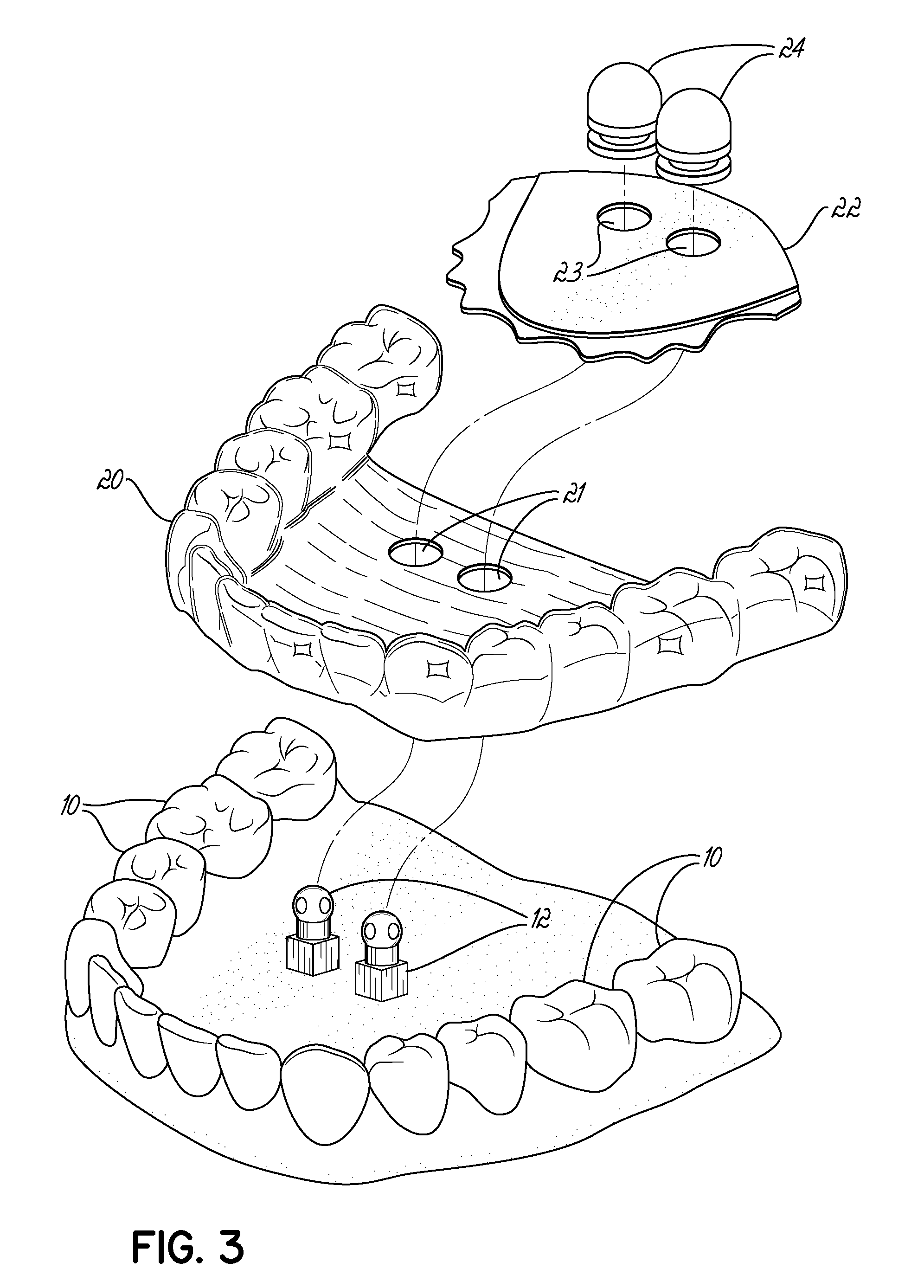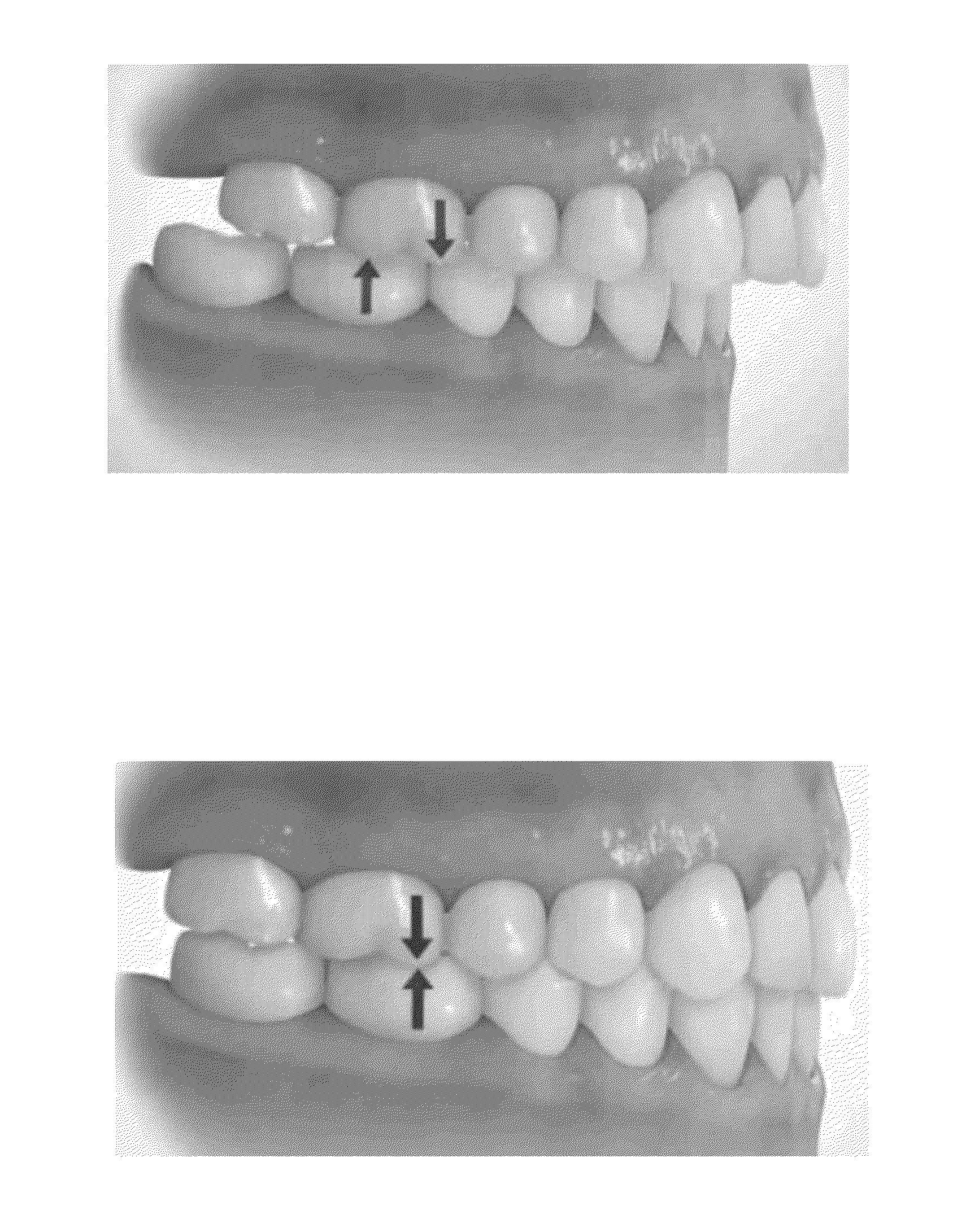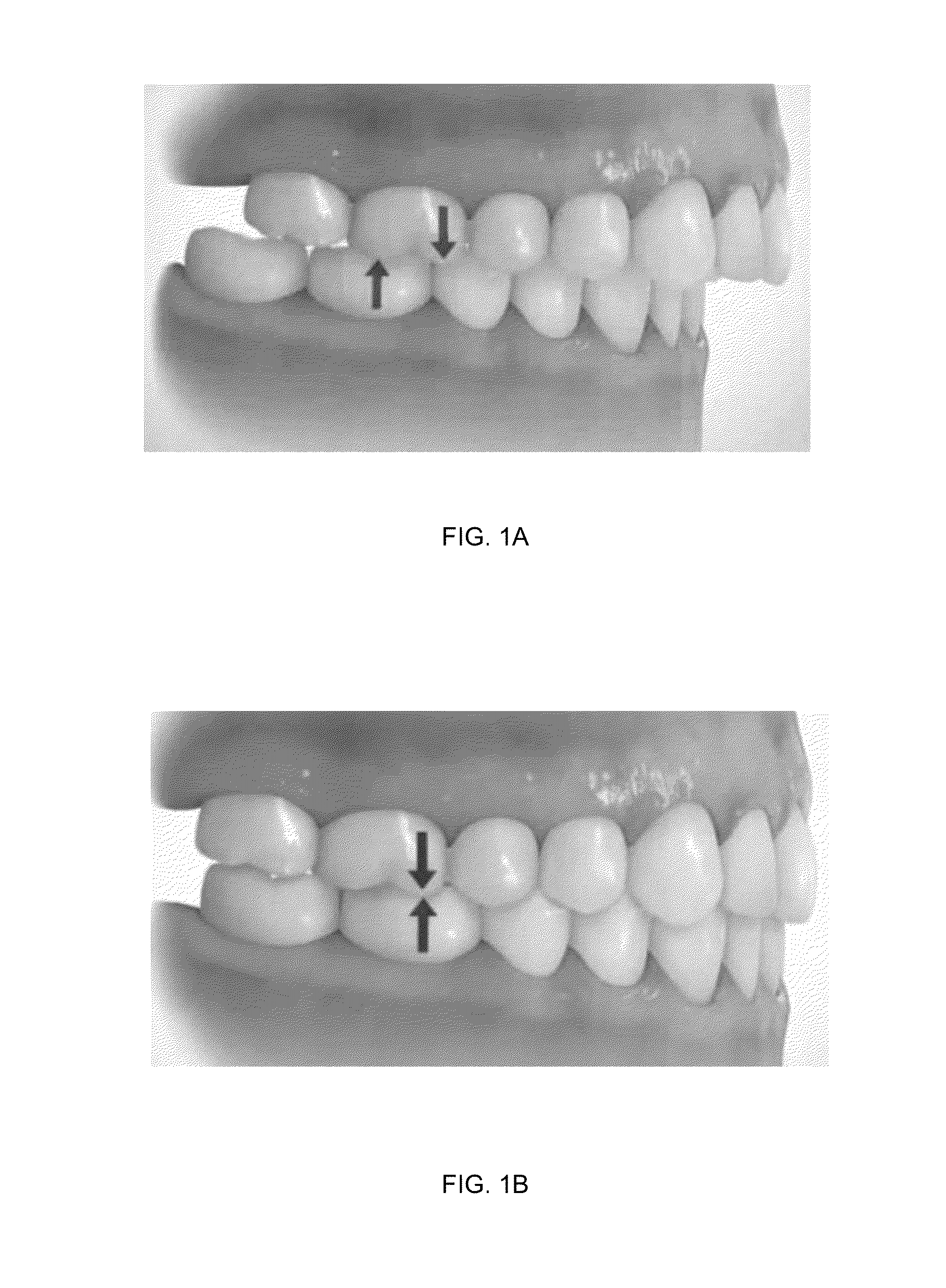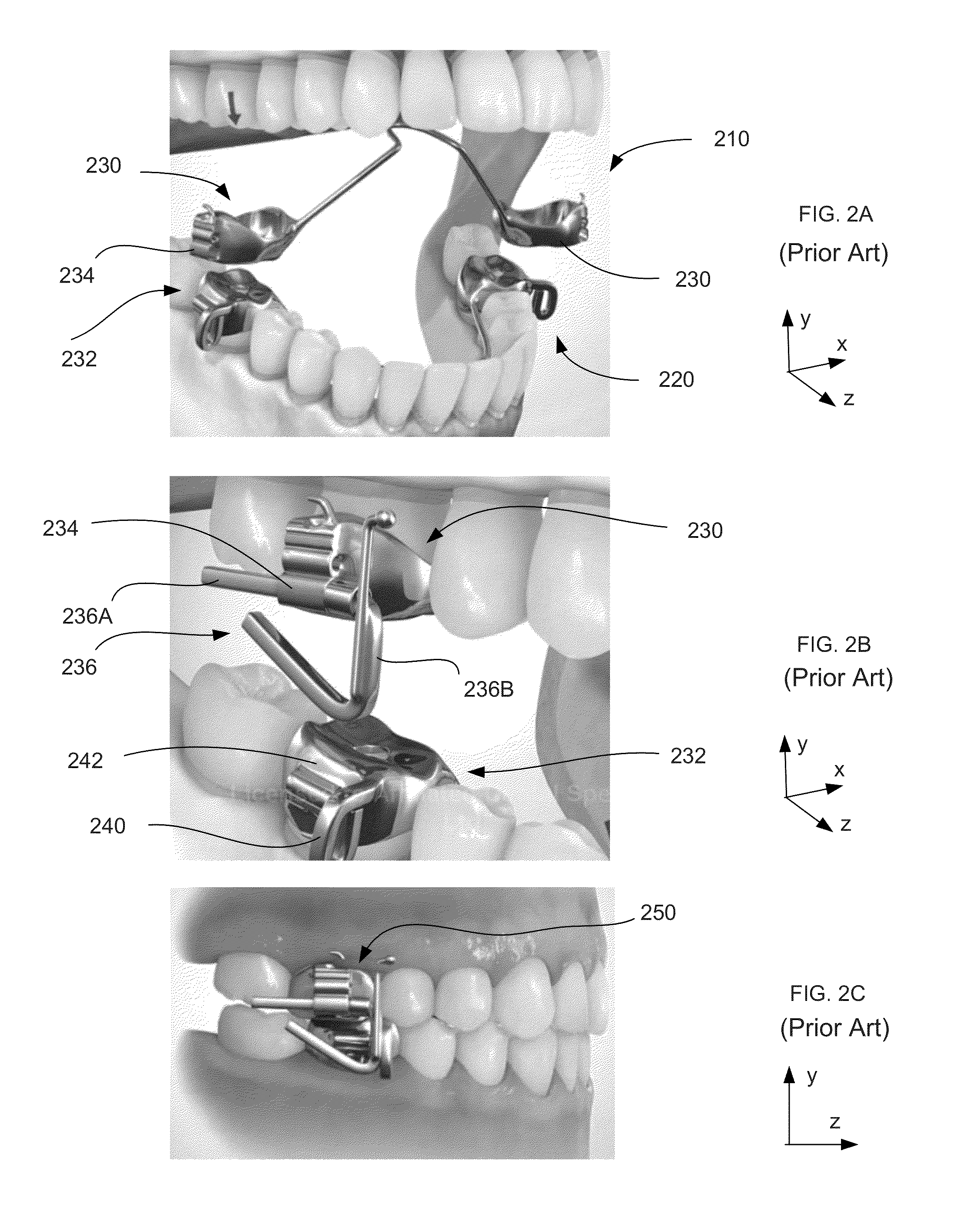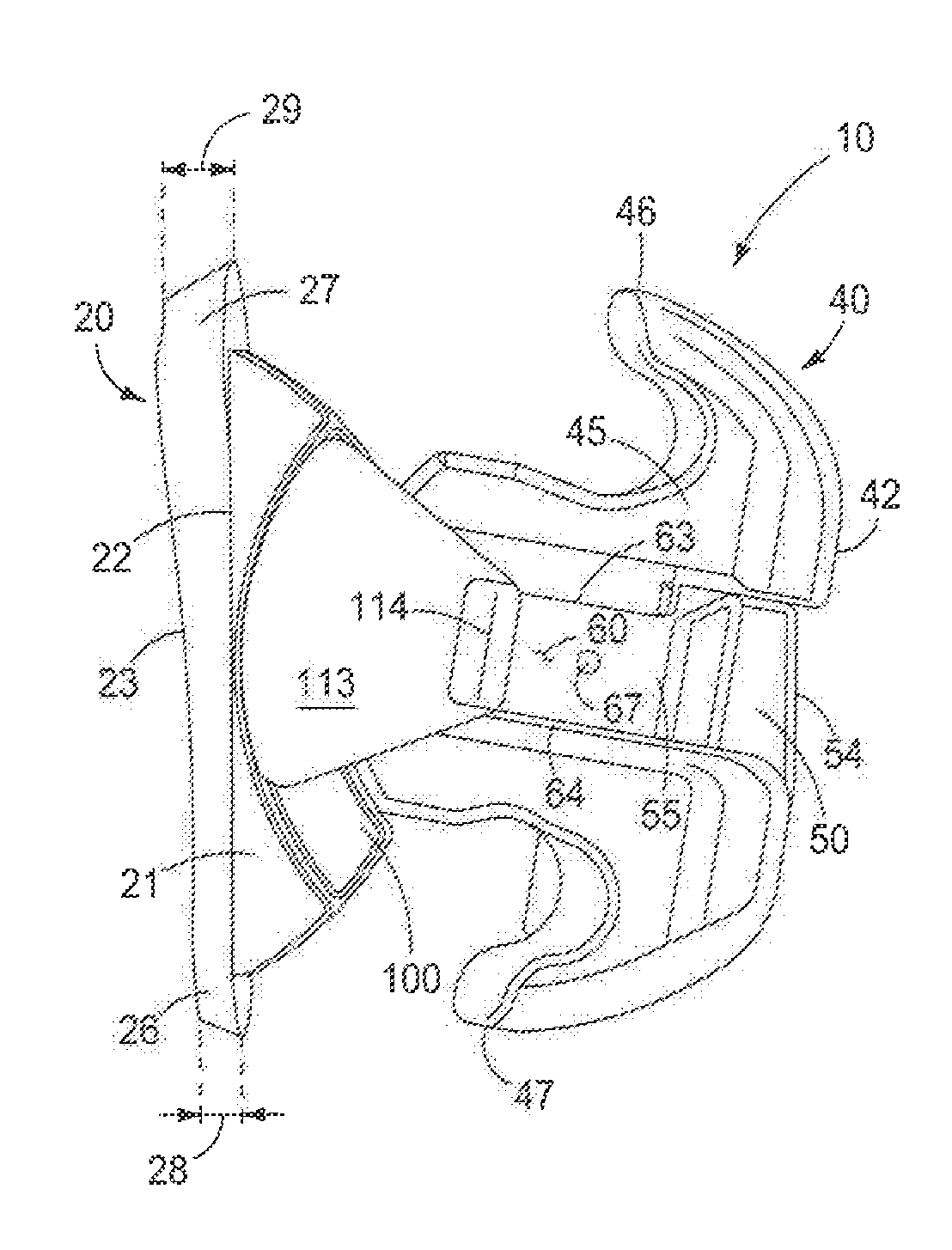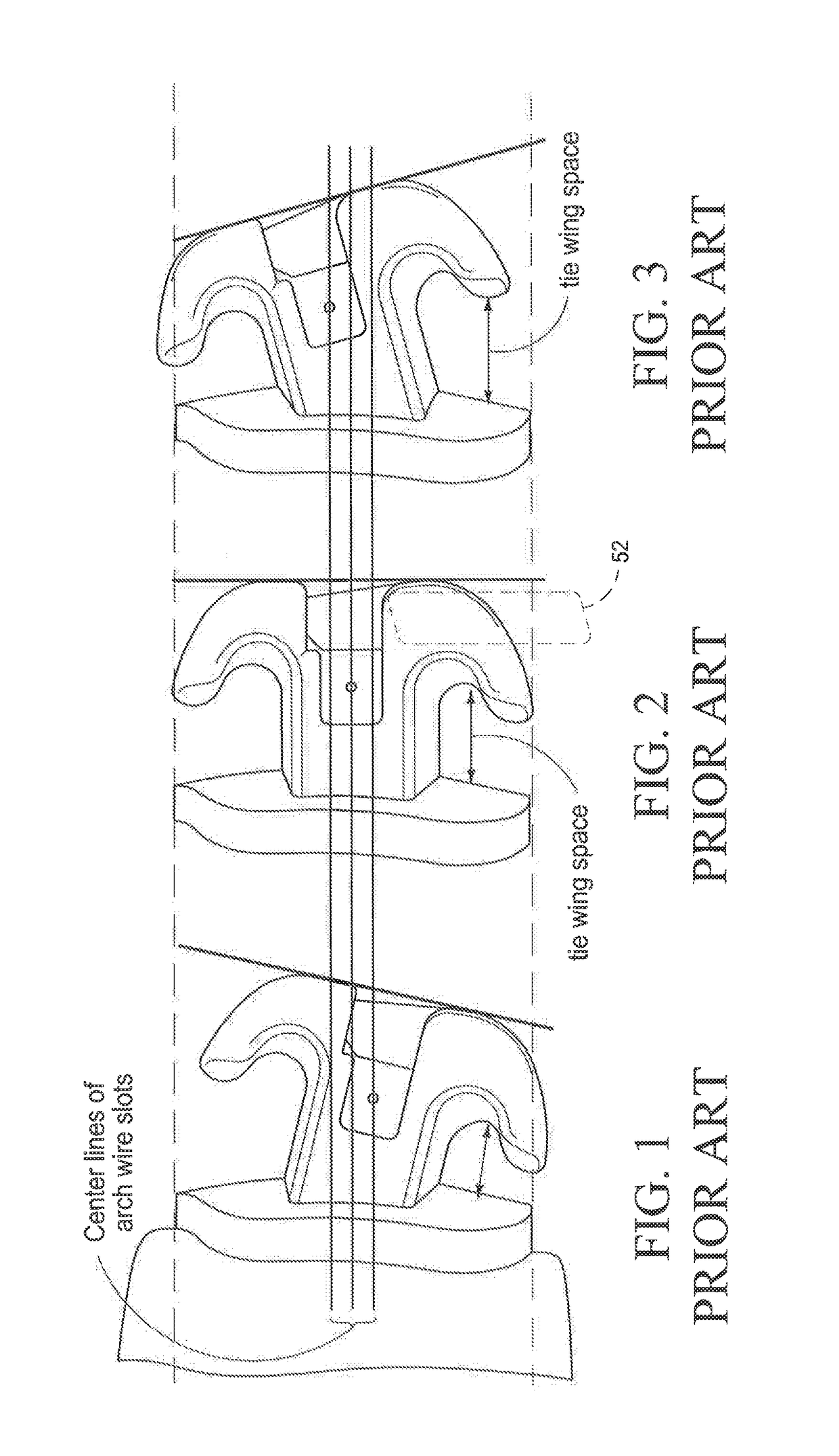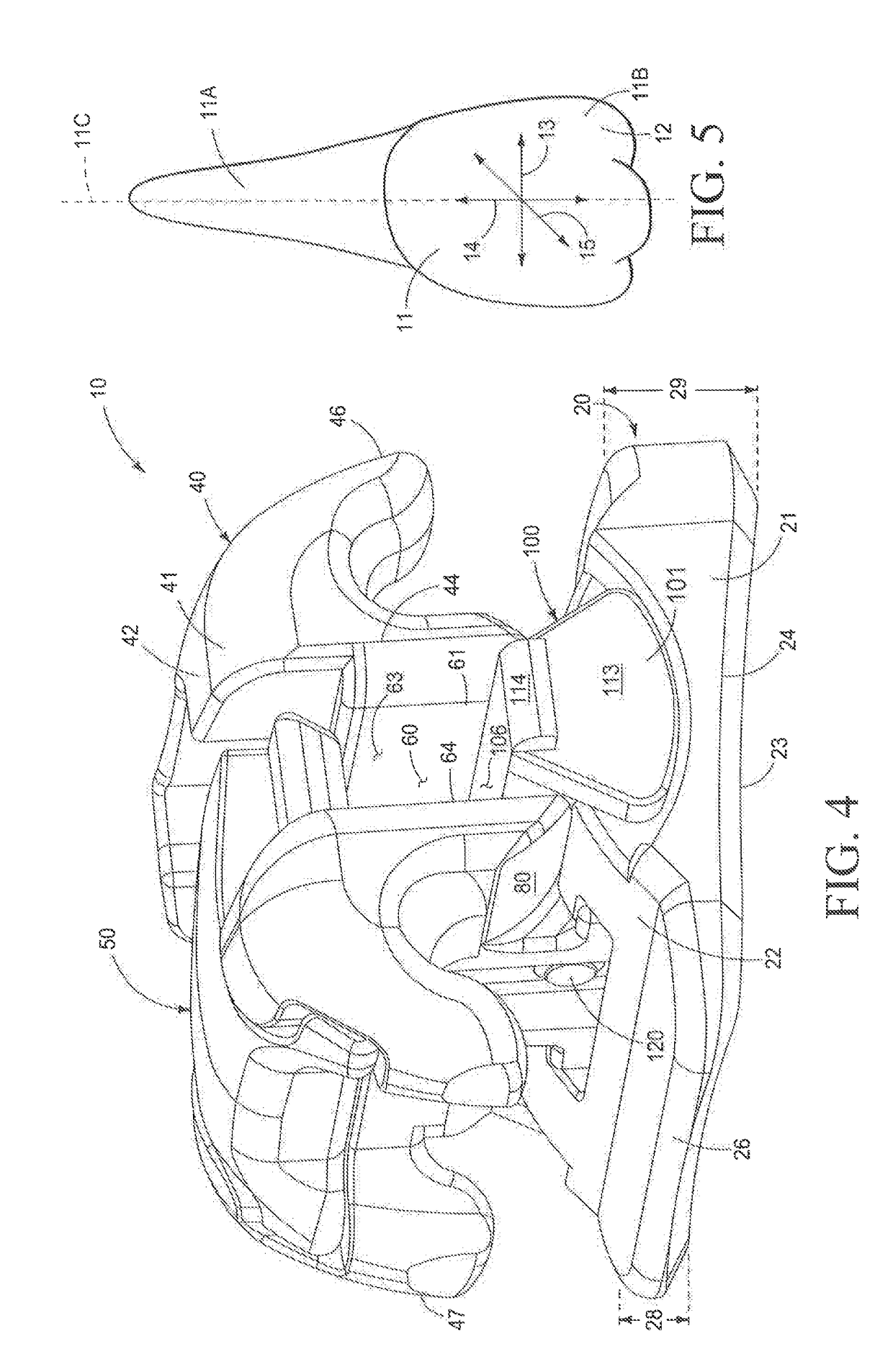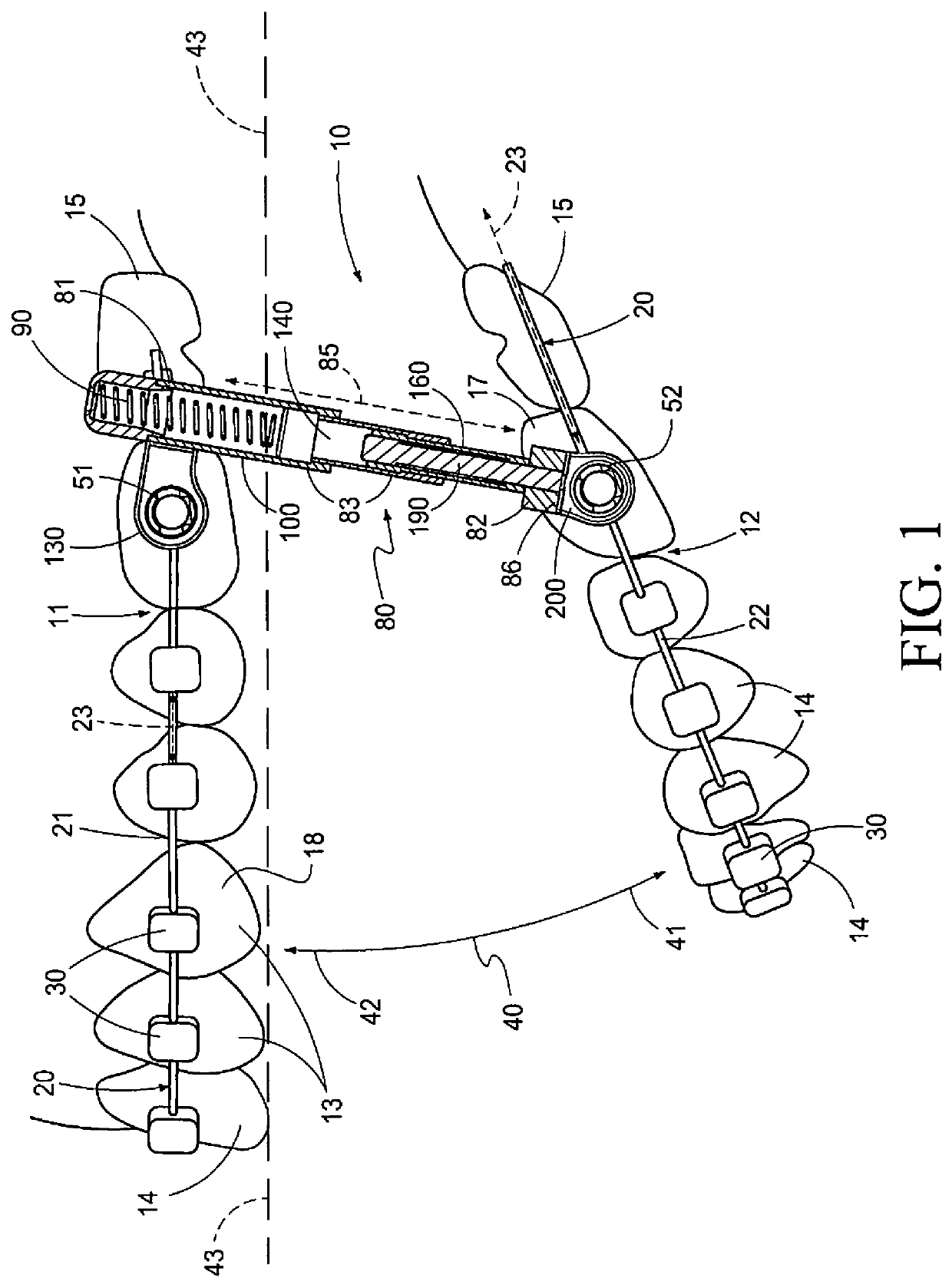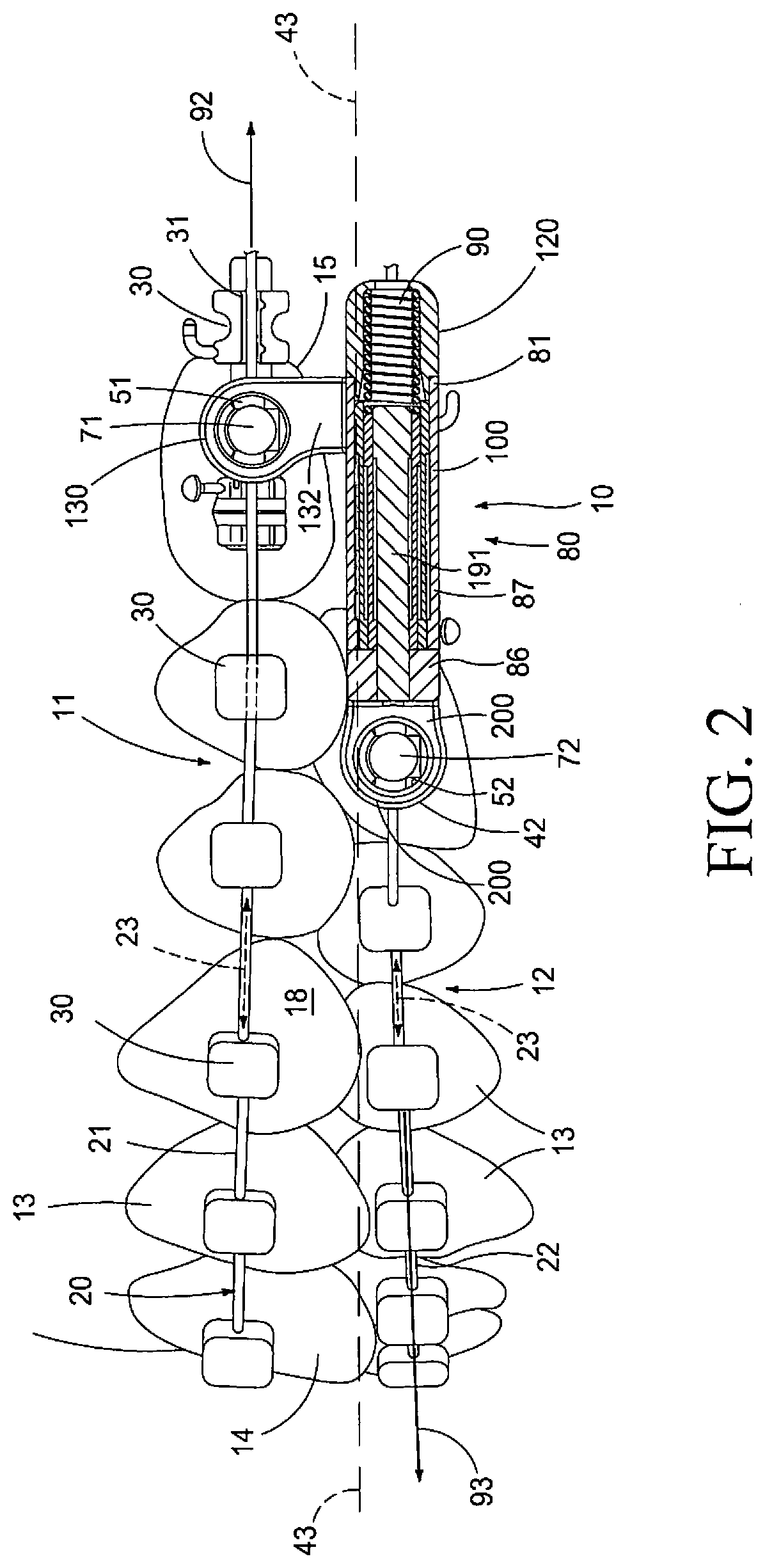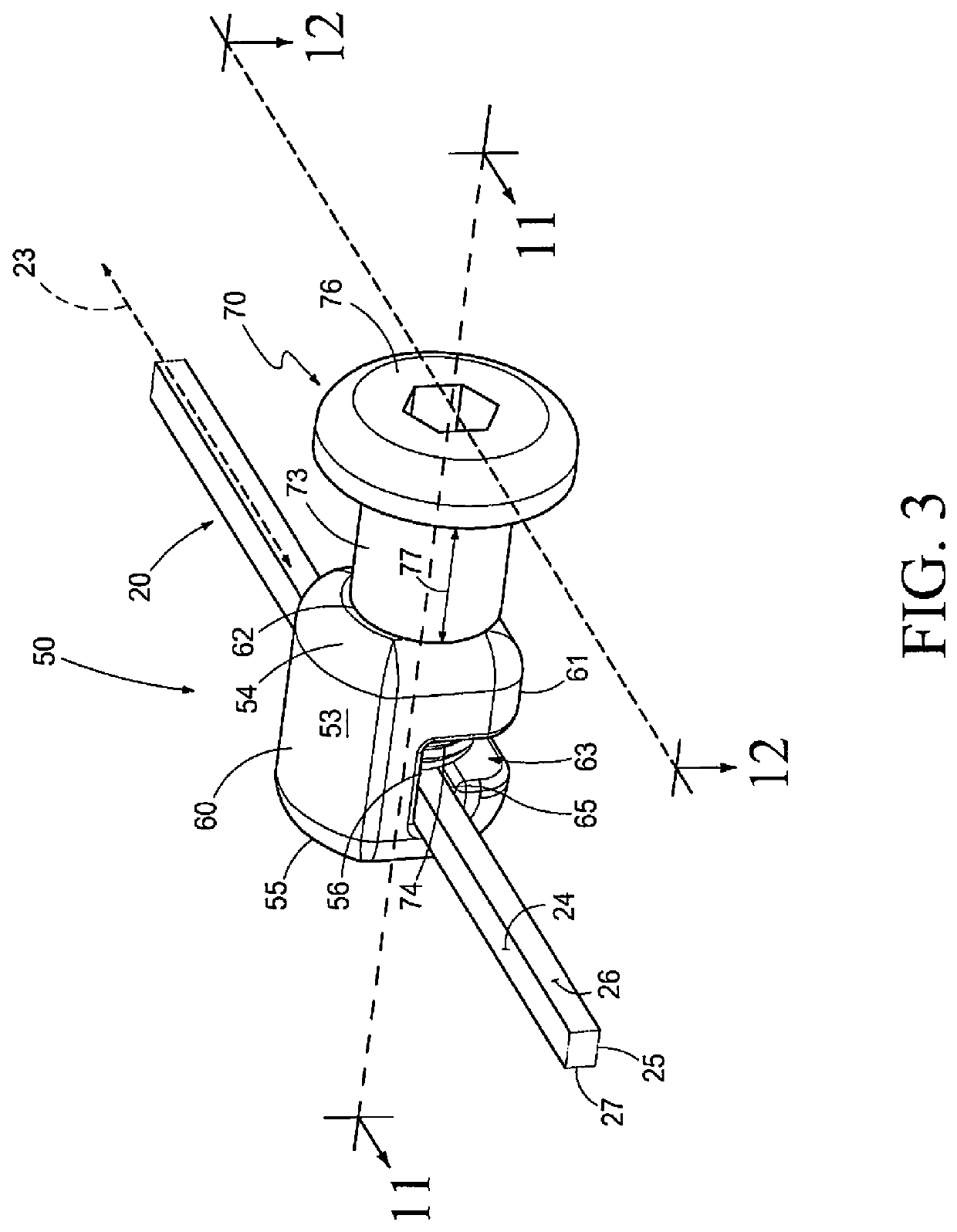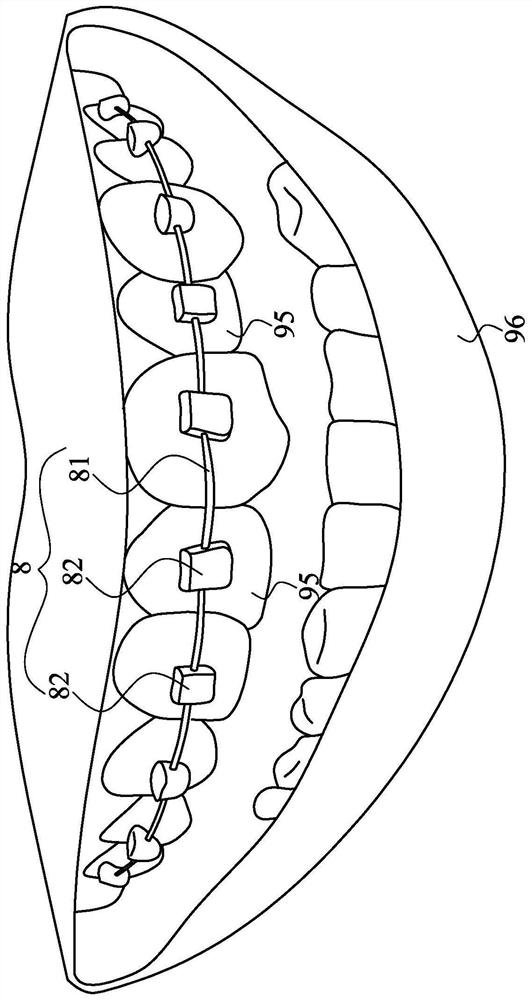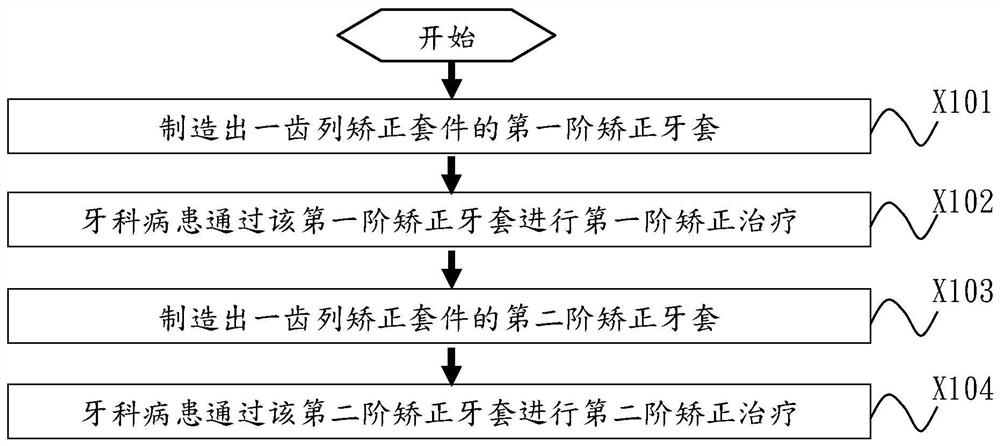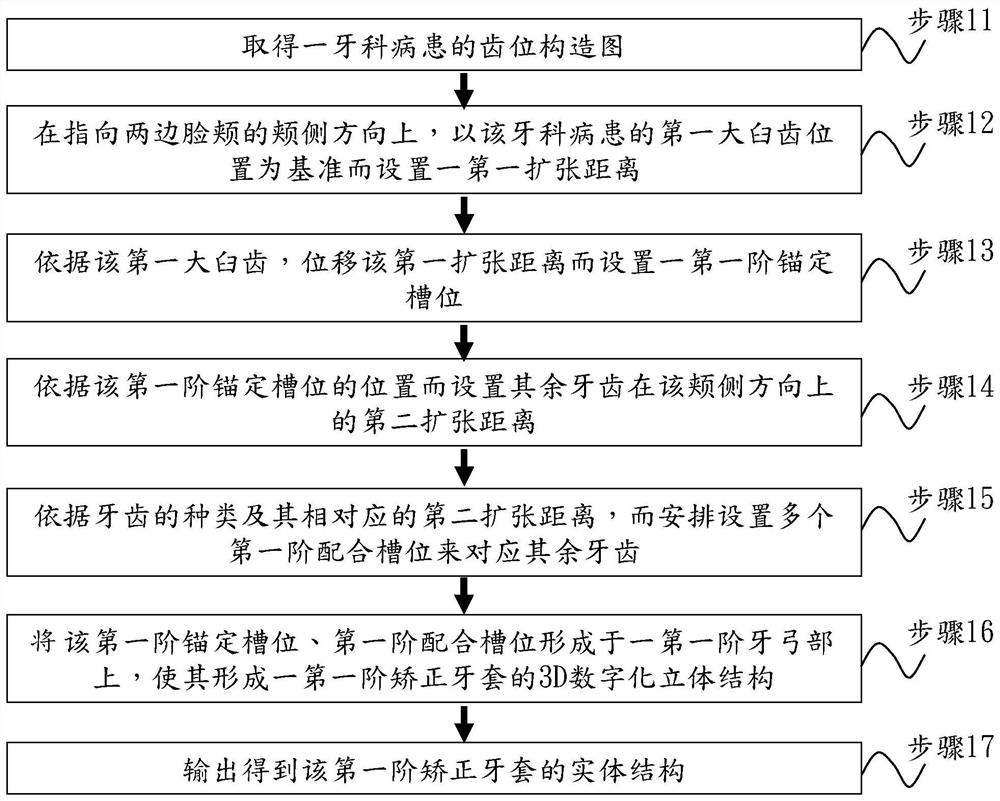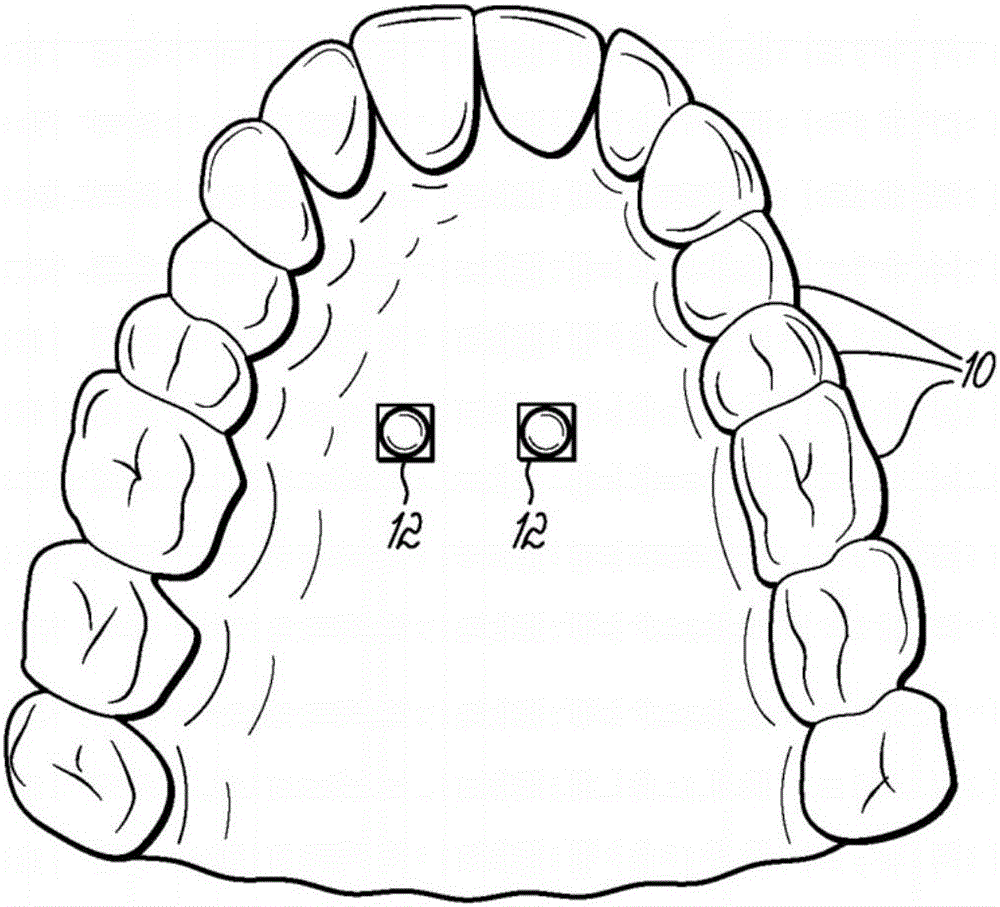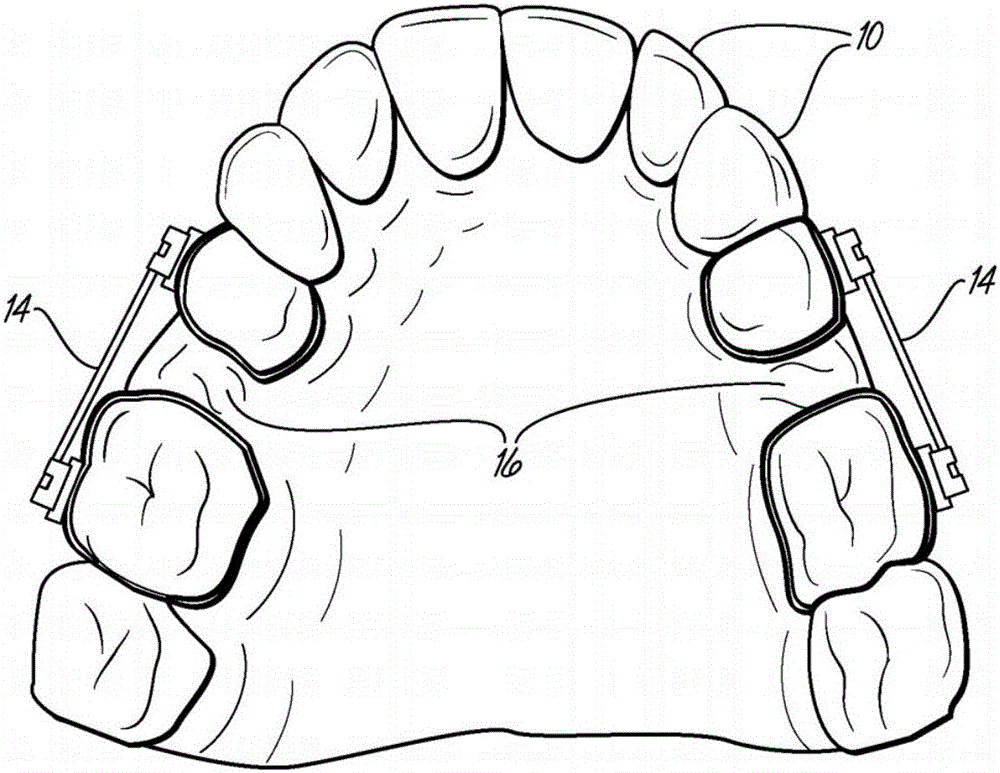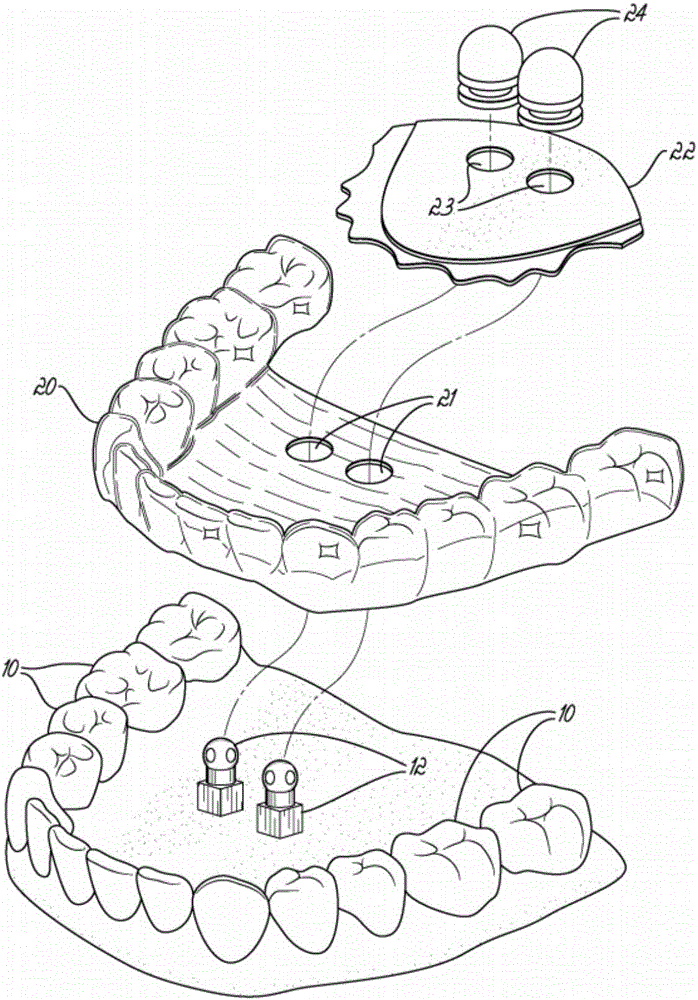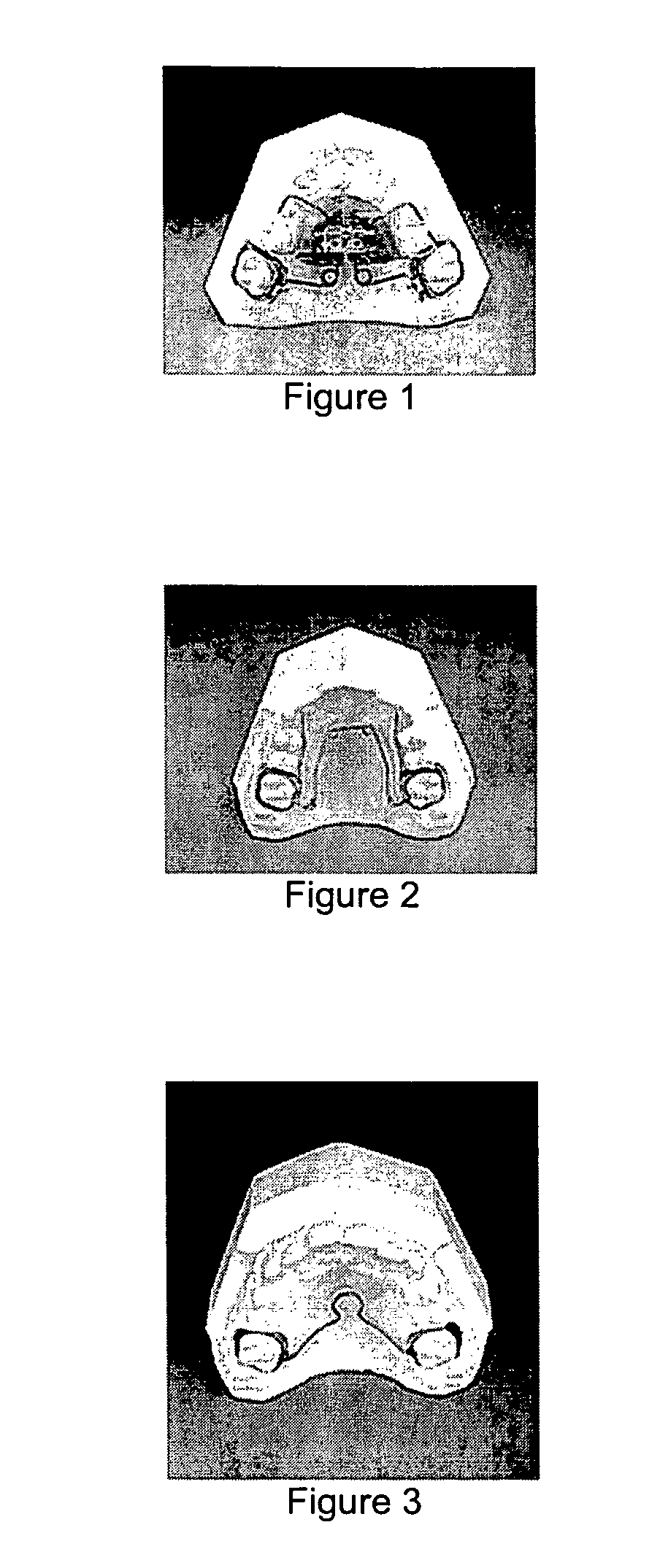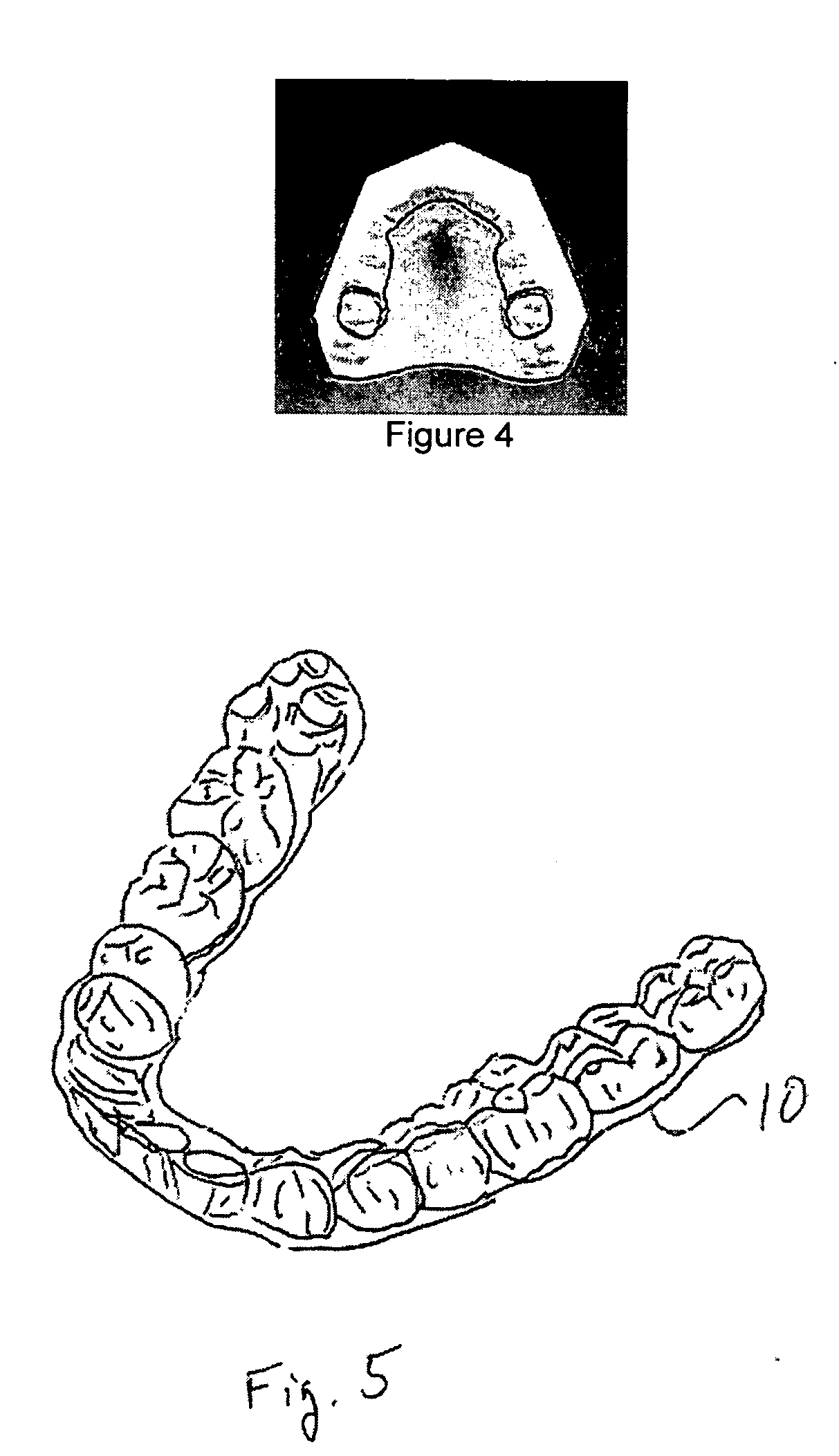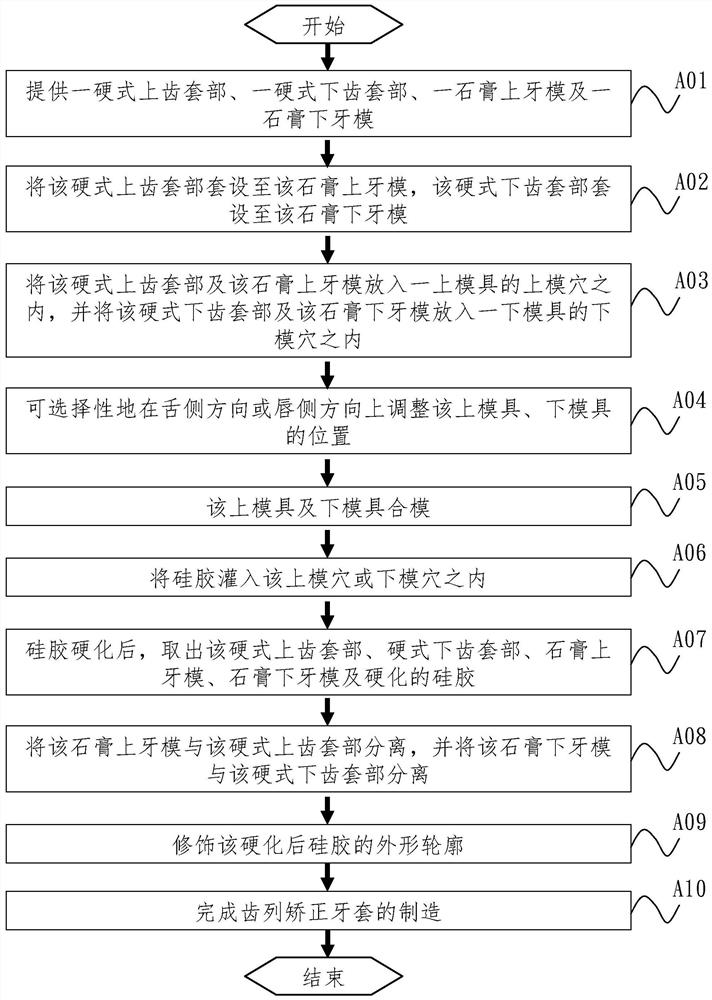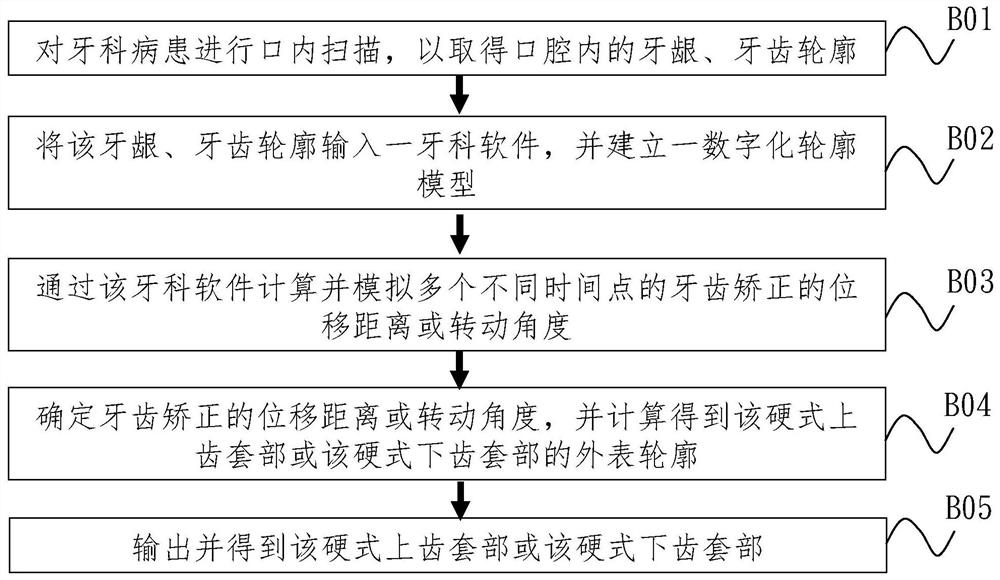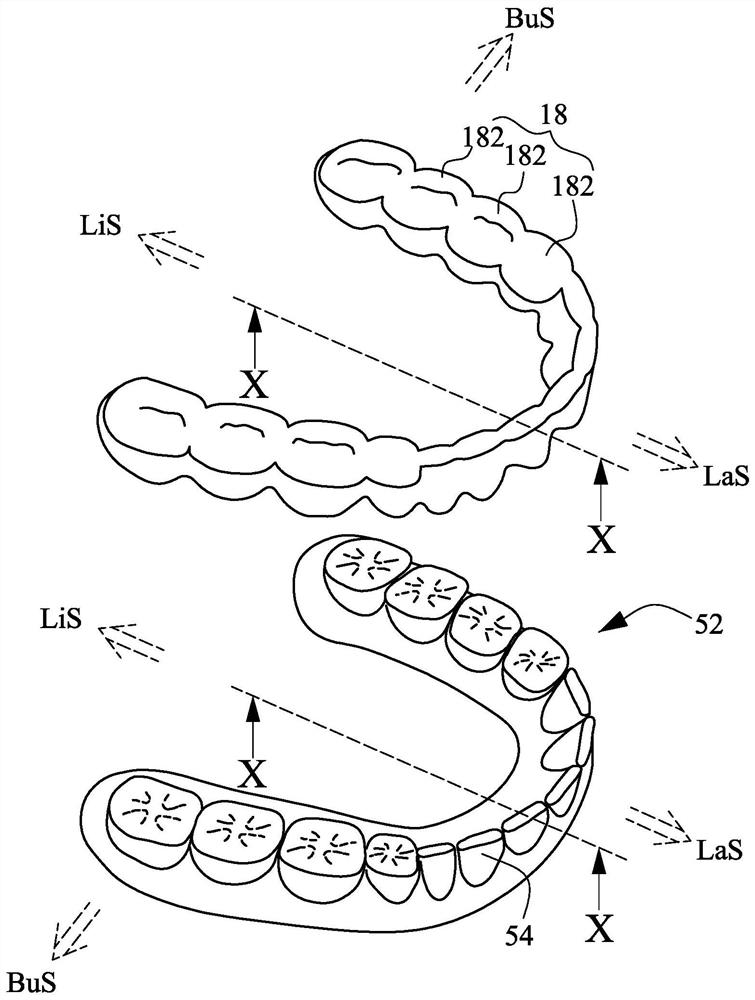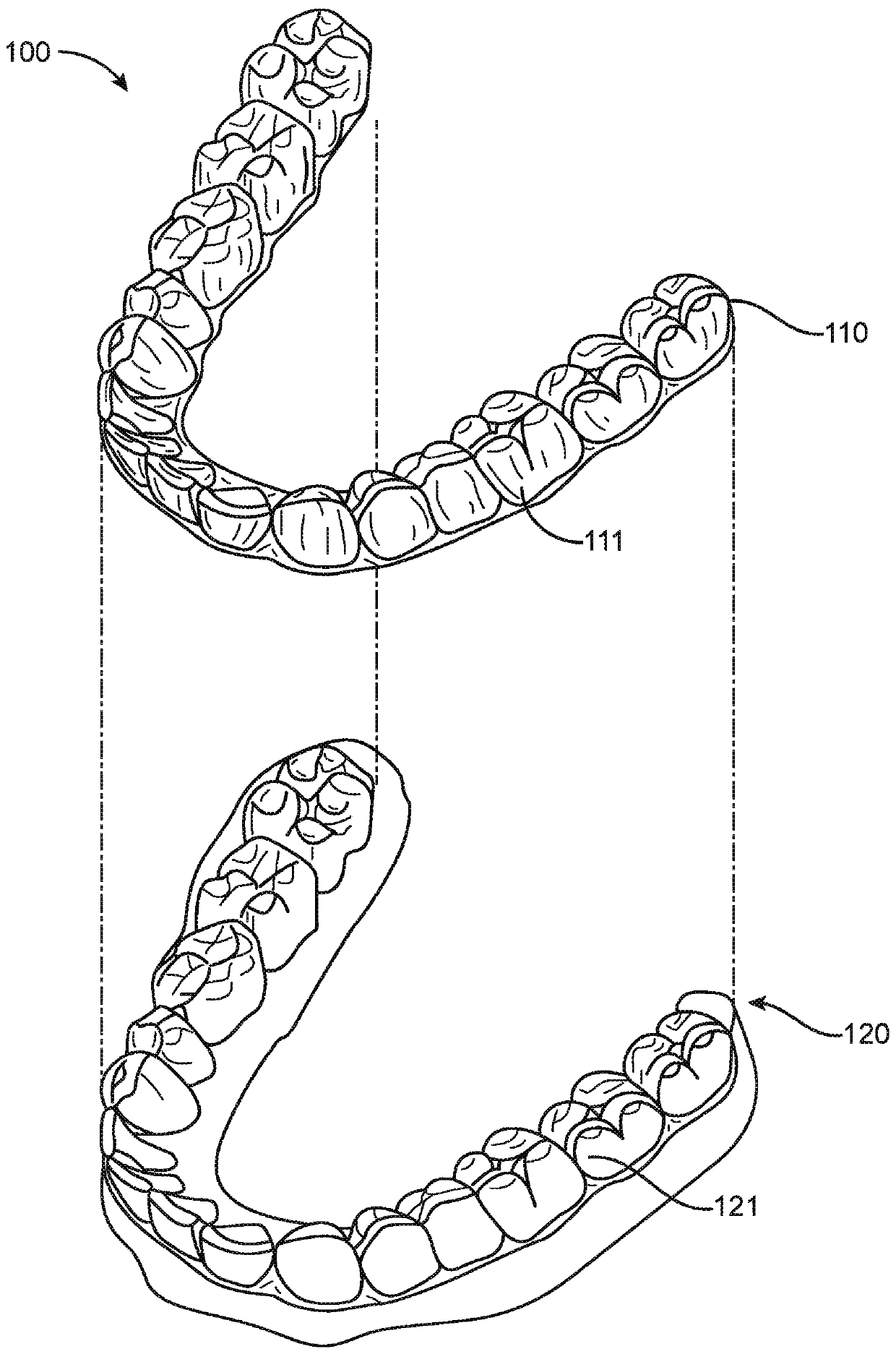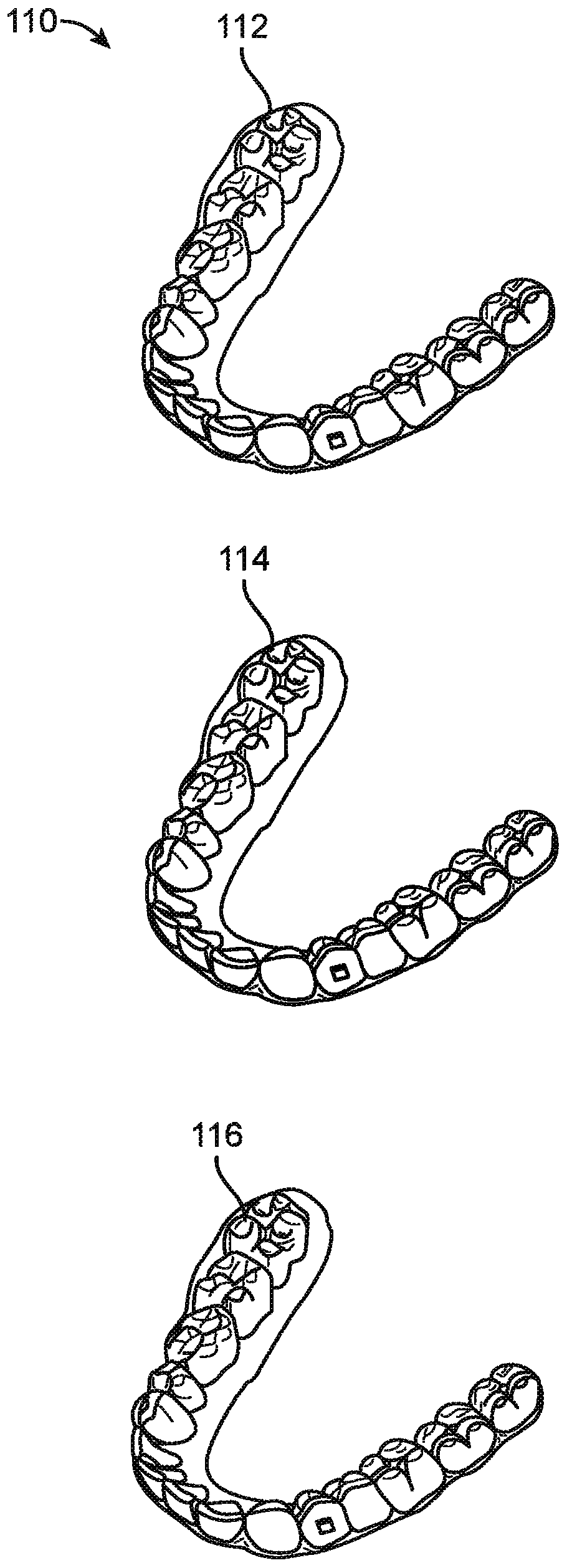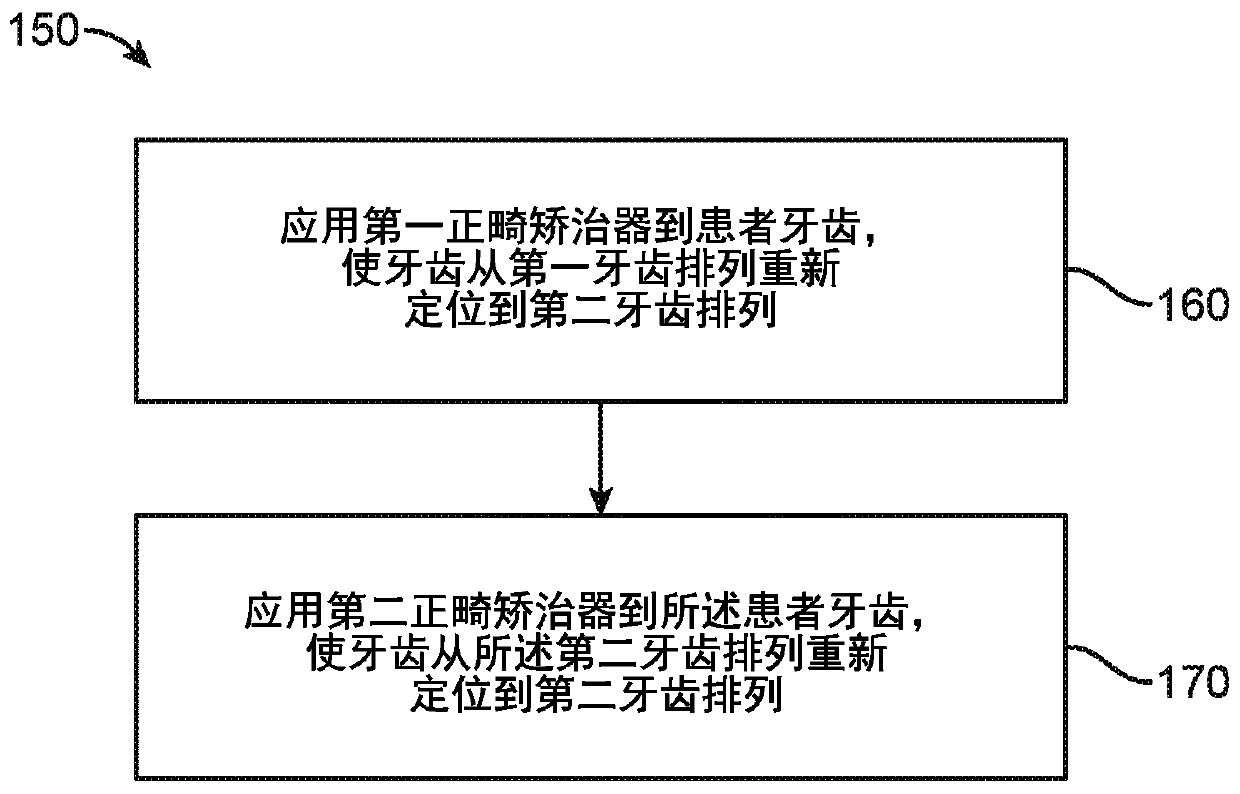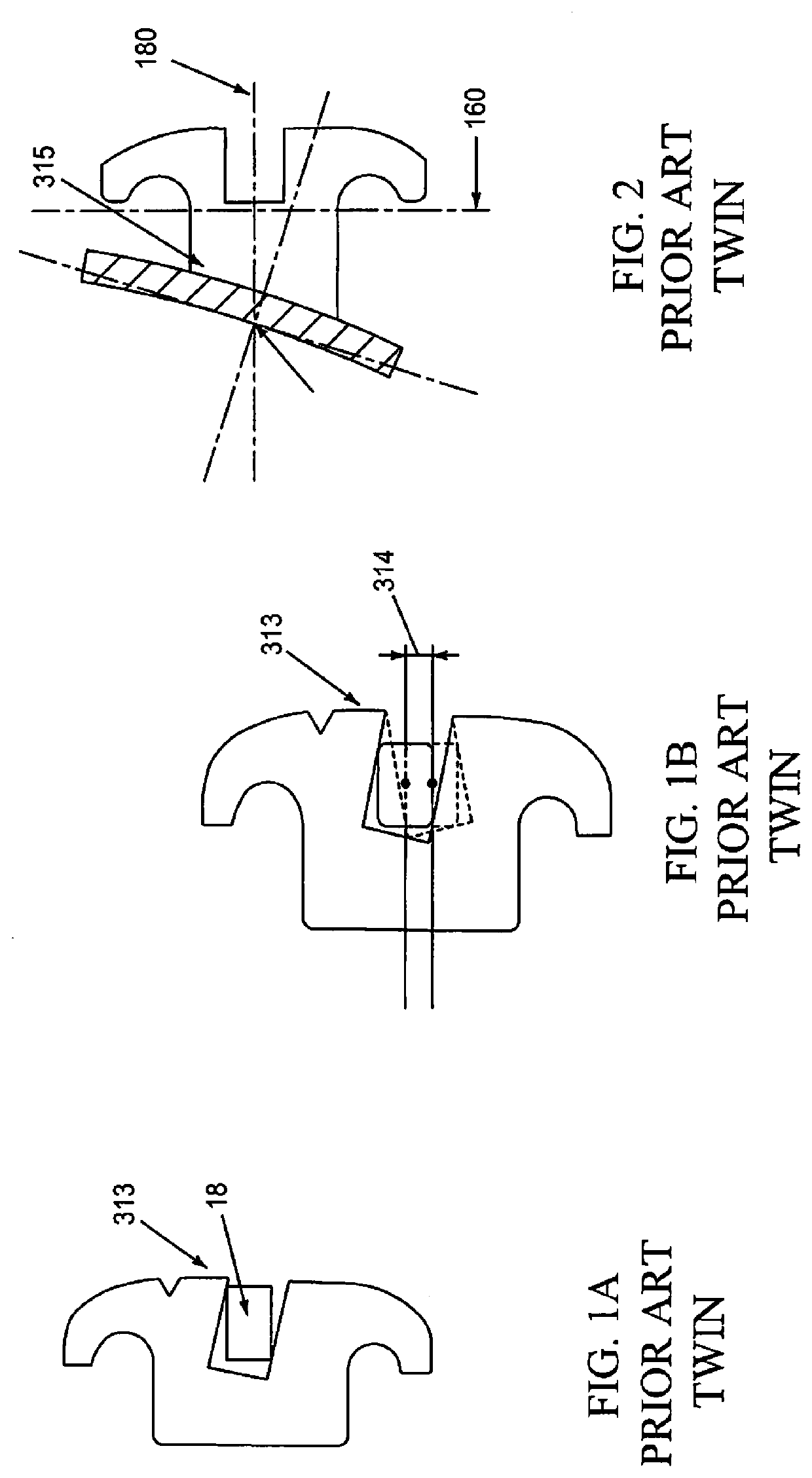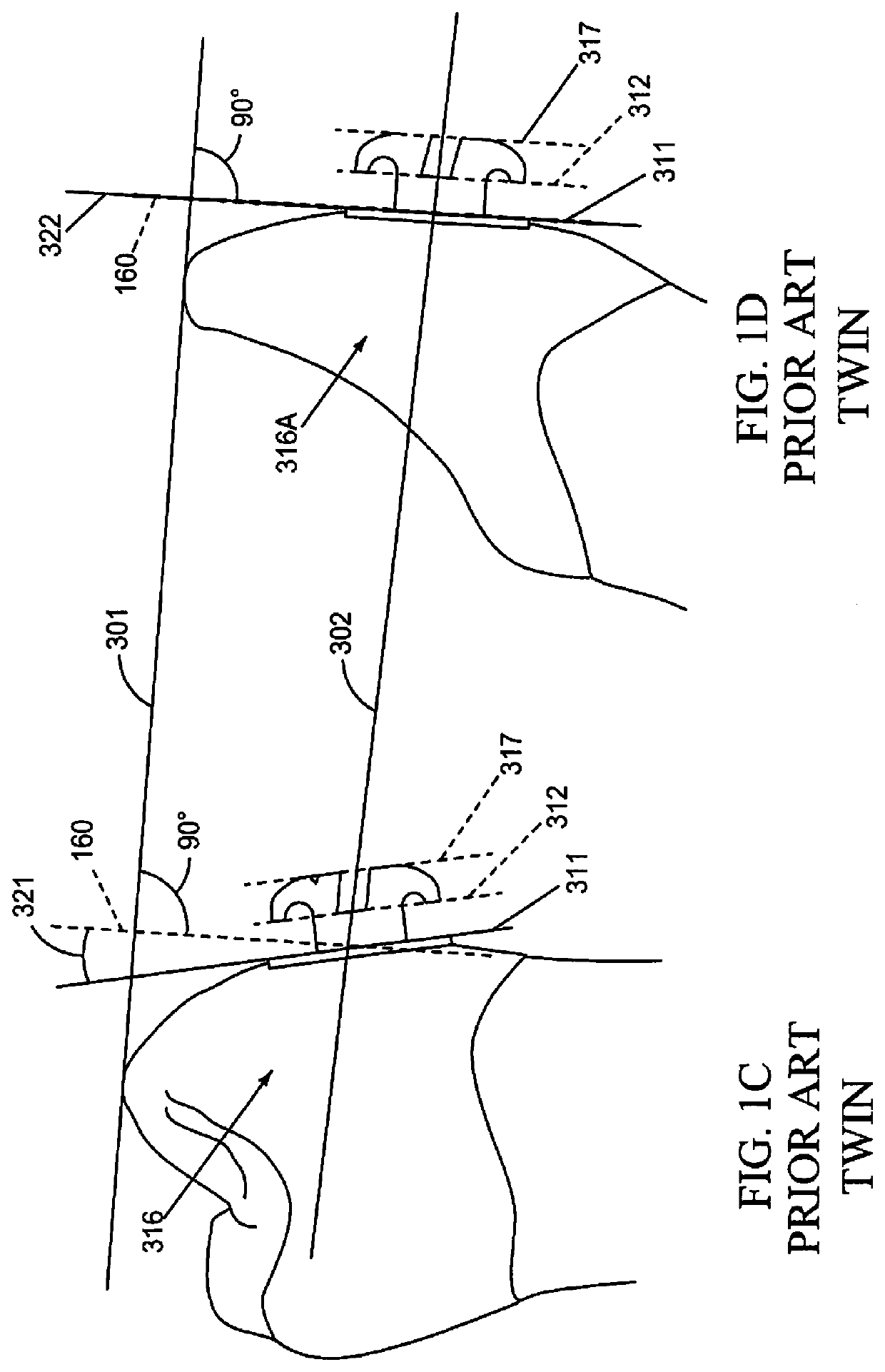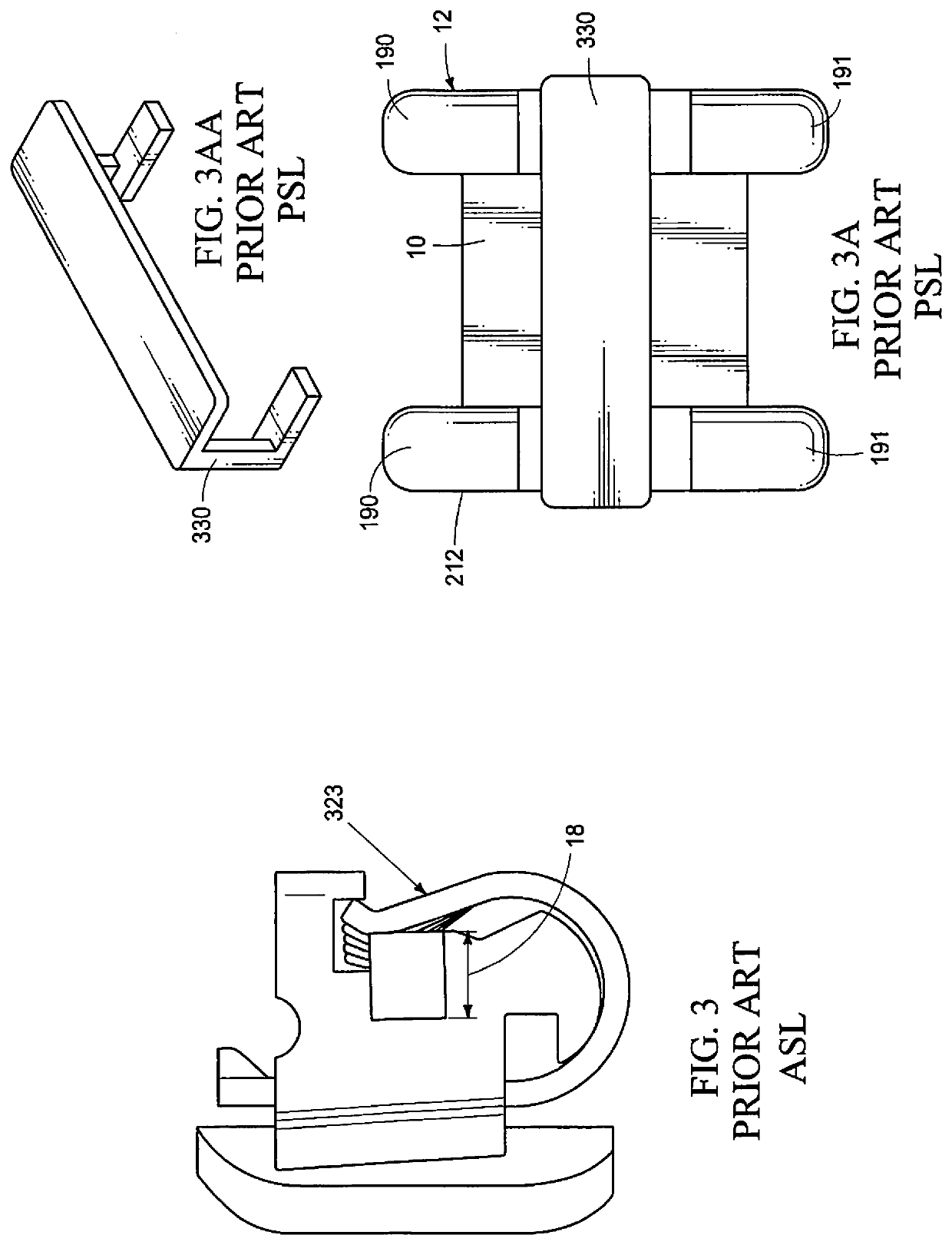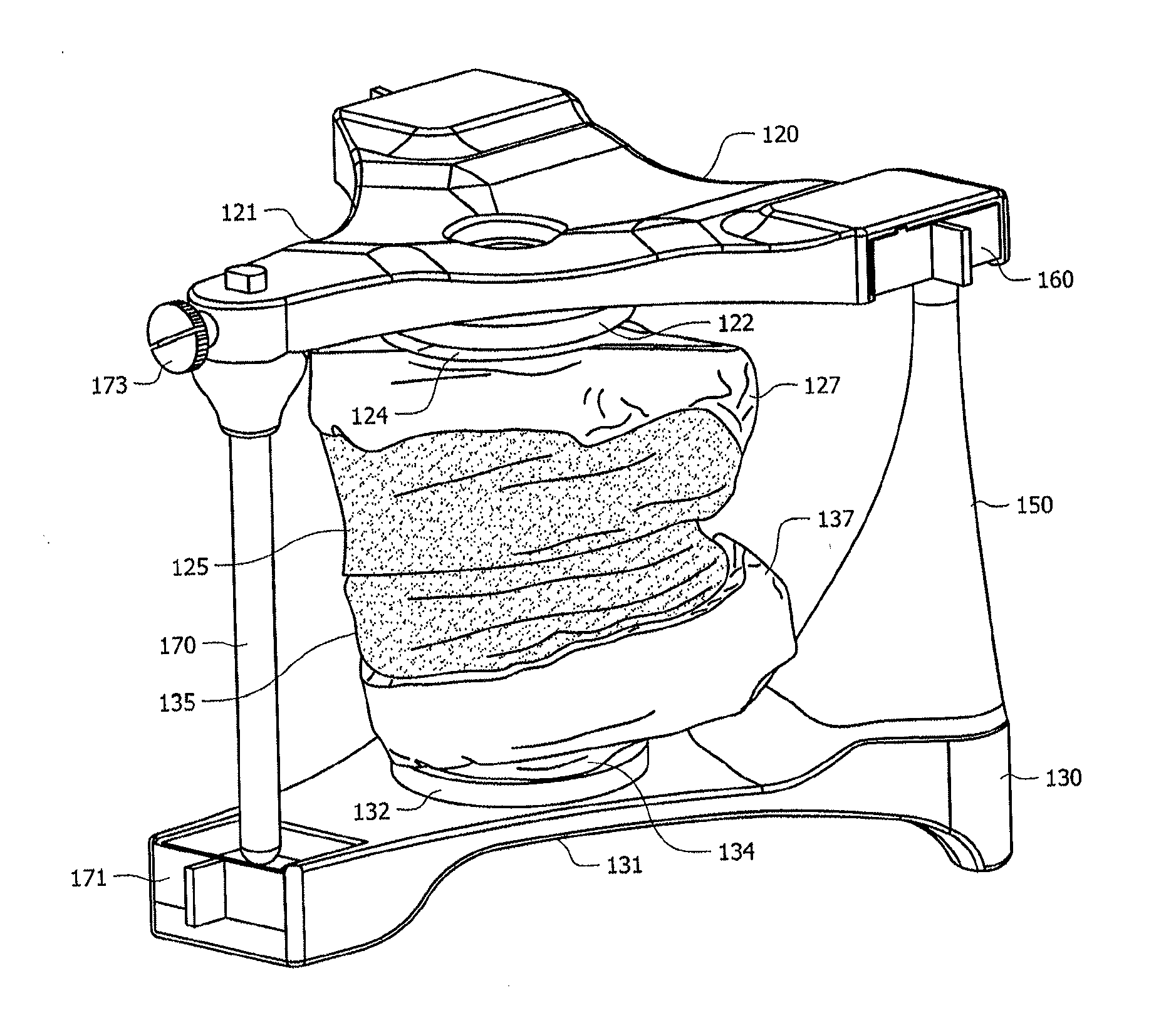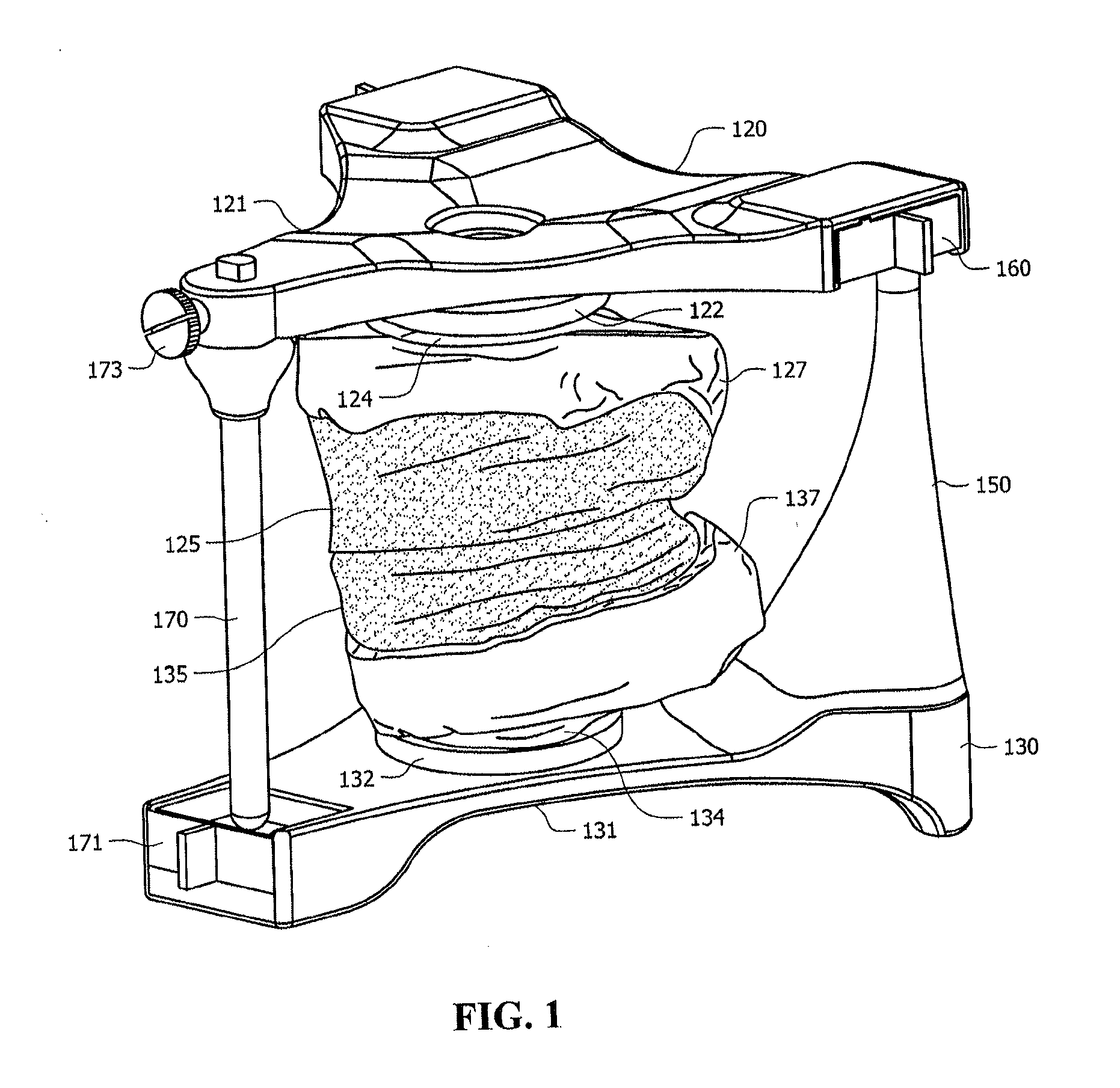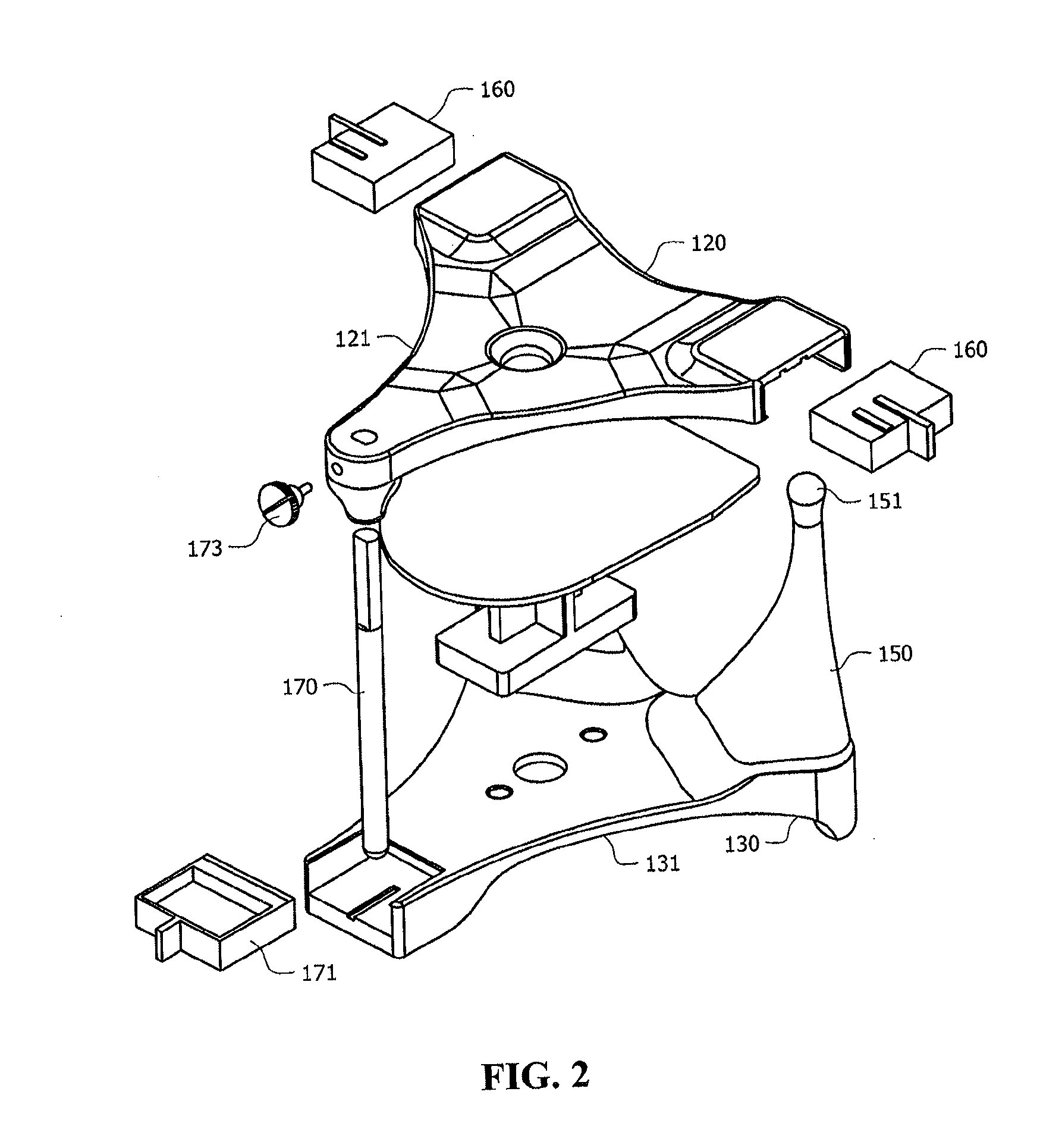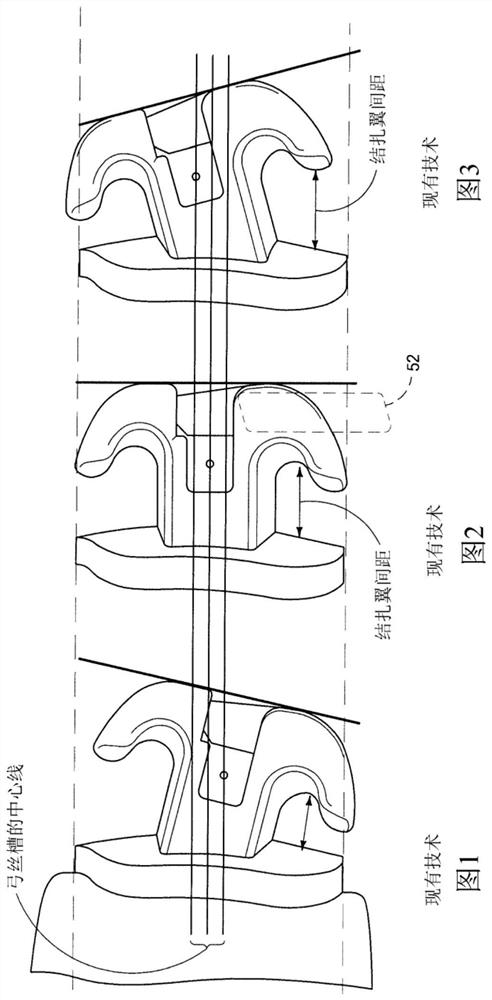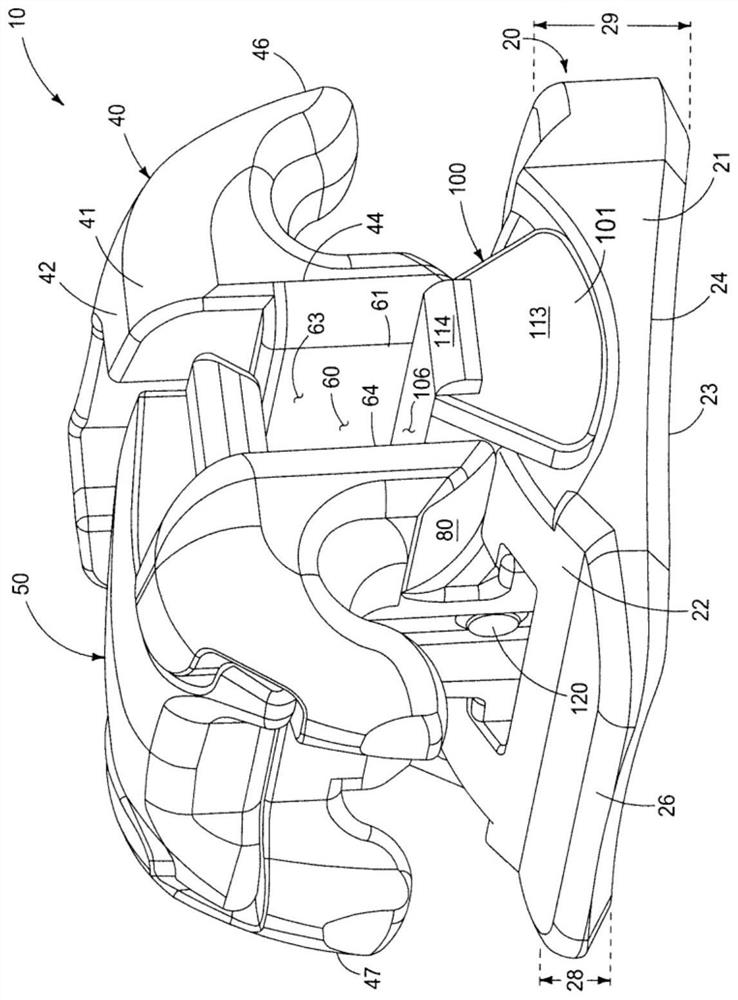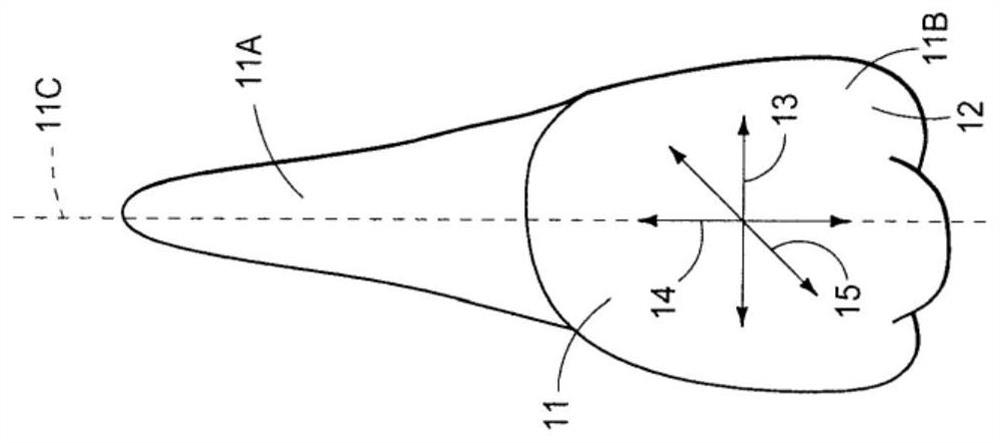Patents
Literature
37 results about "Dental malocclusion" patented technology
Efficacy Topic
Property
Owner
Technical Advancement
Application Domain
Technology Topic
Technology Field Word
Patent Country/Region
Patent Type
Patent Status
Application Year
Inventor
Dental malocclusion refers to an abnormality of the occlusion, or alignment, of the teeth and the way the upper and lower teeth fit together, resulting in overcrowding of teeth or in abnormal bite patterns. [HPO:curators]
Virtual bracket placement and evaluation
A method and apparatus for facilitating placement and evaluation of virtual appliances on virtual teeth of an orthodontic patient are described. Positioning references comprising bracket height, occlusal plane, or any arbitrary plane are provided to facilitate desired placement of virtual appliances on virtual teeth model. The process can be applied with any dentition state of a patient such as malocclusion, target state from treatment, or intermediate monitored state during the course of a treatment. An unified workstation for treatment planning provides the computer software tools for verification, simulation and evaluation of the virtual appliance placement. The process enables proper planning of treatment for an orthodontic patient suffering from malocclusion involving bonding of virtual brackets to the surface of the patient's virtual teeth with archwires placed in the slots of the brackets, so as to realize the desired results from the treatment in the most desired manner.
Owner:ORAMETRIX
Method and system for measuring tooth displacements on a virtual three-dimensional model
It is a common practice with orthodontists in planning treatment for a patient to prescribe dental changes to cure the malocclusion condition of the patient in terms of mesial or distal, buccal or lingual, and occlusal (coronal) or gingival translational displacements; and facial or lingual torque; mesial or distal angulation and mesial or distal rotation displacements. A method and workstation for measuring the dental displacements, or conversely placing the dental elements in desired positions as per the prescriptions for their displacements in a consistent, reproducible and accurate manner is disclosed. A novel orthogonal curvilinear coordinate system is disclosed that enables the measurement of the tooth displacements in conjunction with the individual tooth axes system.
Owner:ORAMETRIX
Virtual bracket placement and evaluation
InactiveUS7296996B2Improve accuracy and consistencyEvaluate effectivenessBracketsImpression capsDental malocclusionProper treatment
A method and apparatus for facilitating placement and evaluation of virtual appliances on virtual teeth of an orthodontic patient are described. Positioning references comprising bracket height, occlusal plane, or any arbitrary plane are provided to facilitate desired placement of virtual appliances on virtual teeth model. The process can be applied with any dentition state of a patient such as malocclusion, target state from treatment, or intermediate monitored state during the course of a treatment. An unified workstation for treatment planning provides the computer software tools for verification, simulation and evaluation of the virtual appliance placement. The process enables proper planning of treatment for an orthodontic patient suffering from malocclusion involving bonding of virtual brackets to the surface of the patient's virtual teeth with archwires placed in the slots of the brackets, so as to realize the desired results from the treatment in the most desired manner.
Owner:ORAMETRIX
Dental appliance having an altered vertical thickness between an upper shell and a lower shell with an integrated hinging mechanism to attach an upper shell and a lower shell and a system and a method for treating malocclusions
ActiveUS20050037311A1Increasing the thicknessMaintain positionAdditive manufacturing apparatusOthrodonticsOpen biteDental malocclusion
A dental appliance having increased or decreased thickness between an upper shell and a lower shell in combination with a hinging mechanism and a system and a method for treating malocclusions are provided. The dental appliance may have an upper shell and a lower shell which receive upper teeth and lower teeth, respectively, of a user. The upper shell and the lower shell may be attached at a hinge. The dental appliance may have an increased thickness between the upper shell and the lower shell as well as an increased thickness of the hinge. In an embodiment, the dental appliance may have a decreased vertical thickness and an insertable hinging mechanism. The dental appliance may then extend treatment of malocclusions to the rear teeth of the user and may correct a dental condition, such as, for example, overbite, overjet, open bite, crowding, rotations, spacing, cross-bites, gummy smiles and temporomandibular joint problems.
Owner:ORTHO TAIN INC
Systems, methods, and apparatus for correcting malocclusions of teeth
ActiveUS20190053876A1Additive manufacturing apparatusOthrodonticsInitial treatmentDental malocclusion
Methods and systems are provided for manufacturing an appliance for correcting malocclusions of a patient's teeth. The method may include measuring the positions of a patient's teeth and receiving tooth movement constraints. The method may also include generating an initial treatment plan based on the measured tooth positions and the tooth movement constraints and measuring the malocclusions of the patient's teeth for one or more types of dental malocclusions. The method may also include generating a plurality of treatment plans from the initial treatment plan based on the measured malocclusion and generating a model of an appliance for each stage of the treatment plan. The method may also include generating instructions for fabricating the appliance for each stage of the treatment plan based on the model of the appliance for each stage of the treatment plan.
Owner:ALIGN TECH
Method and apparatus for dental articulation
ActiveUS20150019176A1Simulation is accurateAccurate interchangeabilityImpression capsMechanical/radiation/invasive therapiesDental ArticulatorsDentures
This invention relates to improved methods and apparatus for recording and simulating the condylar movement of an individual. This invention also provides a digital dental articulator method which is designed to simulate the jaw or condylar movements of a patient. This instrument enables a dentist to obtain the necessary diagnostic information for treatment of the occlusal irregularities, such as malocclusion, and the fabrication of dental restorations or “dentures” and for the development of an orthodontic treatment plan.
Owner:PRESSWOOD RONALD G +1
Orthodontic planning systems
ActiveUS10548690B2Reduce complexityAvoid collisionMedical simulationOthrodonticsDental malocclusionDentition
Systems and methods are disclosed for treating teeth to correct for malocclusions. This may be accomplished in one variation by receiving a scanned dental model of a subject's dentition, determining a treatment plan having a plurality of incremental movements for repositioning one or more teeth of the subject's dentition, and fabricating one or more aligners correlating to a first subset of the plurality of incremental movements.
Owner:ULAB SYST INC
Method and apparatus for digitally evaluating insertion quality of customized orthodontic arch wire
A method and apparatus is provided for digitally checking the insertion quality of a target customized virtual arch wire designed during treatment planning prior to actually manufacturing the target arch wire. The method includes the steps of digitally simulating the insertion of the customized target virtual arch wire into the virtual brackets placed up on virtual teeth of a patient in an initial state of interest for checking if the arch wire could be inserted into the virtual brackets without conflicts or collisions. The initial state may be a malocclusion state or any intermediate treatment state of the patient. In the event the target virtual arch wire would cause conflicts, then the simulation optimizes the arch wire design in an attempt to eliminate the conflicts. In another aspect, a method is provided for selecting the recommended starting point for inserting the customized arch wire in the brackets placed on the dentition of the patient in the initial state.
Owner:ORAMETRIX
System and Method for Treating Obstructive Sleep Apnea and Correcting Malocclusion Simultaneously
Owner:RAYEK RIAZ +1
Dental occlusion correcting system
InactiveUS8932054B1Safe and easy-to-use and expeditious processEasy to correctArch wiresBracketsDental patientsDental malocclusion
A dental occlusion correcting system (DOCS) that is designed to simplify and expedite the correction of Class II dental malocclusions. The DOCS (10) includes a set of upper and lower molar attachment structures (13,14), attached respectively to a person's upper molar and lower molar, a set of upper and lower loosely attached linkages (11,12), and a force module (70). Each of the loosely attached linkages (11,12) includes a link pivitor (50) and a link base (30) which are rotatably connected together through a system of gears and stops and rotational sections (43,44,58,59). The upper and lower loosely attached linkages are connected together, on the same side of a patient's dentition, by a force module. The force module produces upward-backward and downward-forward compression force, commensurate with the force required by a specific dental patient.
Owner:FAREL ROSENBERG LIVING TRUST
Narrow ceramic self-ligating orthodontic bracket
InactiveUS20090017411A1Reduced mesial-distal widthReduce decreaseArch wiresBracketsDental malocclusionEngineering
A ceramic orthodontic bracket has a centrally located clip for retaining an archwire in an archwire slot. The body of the bracket includes a mesial section, a distal section, and a bridge section, wherein the bridge section extends through, and retains, the clip. The bridge section also includes a recess adjacent to the bridge section that facilitates debonding of the bracket from a patient's tooth. Preferably there are gaps on one or both sides of the clip to allow space for debonding of the bracket by applying a mesial-distal compressive force on the bracket and fracturing the bracket along the recess. This configuration allows the overall mesial-distal width of the bracket to be reduced, thereby facilitating the bonding of brackets to narrow and / or maloccluded teeth. Another embodiment includes a stop member that is connected to the base of the bracket and retains the clip on the bridge section.
Owner:3M INNOVATIVE PROPERTIES CO
Tooth modeling system
ActiveUS10624717B2Avoid collisionReact SafeImage enhancementImpression capsDental malocclusion3d printed
Systems and methods are disclosed for treating teeth to correct for malocclusions. This may be accomplished by applying a series of labels to a digital dental model and applying a rolling ball process to identify tooth boundaries separating one tooth from a neighboring tooth and to also determine the crown / gum margin. The user may further assign regions to the dental model to indicate hard regions and soft regions. With the dental model labeled and defined, the user may then generate a treatment plan for moving the labeled and defined tooth or teeth relative to one another to correct for any malocclusions. Upon approval of the treatment plan, a series of 3D printed dental appliances or aligners to be worn in series by the patient may be fabricated to ultimately move the tooth or teeth to a desired position.
Owner:ULAB SYST INC
Occulsion guidance appliance
InactiveUS20070099144A1Eliminate disadvantagesOthrodonticsDental toolsDental malocclusionDental Equipment
An odontological device and device series to guide an individual's occlusion and a method to be used in choosing an occlusion guidance appliance device to be used in orthodontic treatment. This kind of device contains a U-shaped arch with a lower surface on the side of the lower jaw and a higher surface on the side of the upper jaw, and in both of which there are concaves in which to place the individual's teeth, and where the bottoms of the concaves form the bridge separating the concaves from one another. According to the invention, the hollows designed for the back teeth consist of uniform compartments, which start from the second premolar and continue towards the molars at least to the area where the second permanent molar will erupt. The presented device is suitable for use in all dental arch developmental phases. In particular, because of the advantageous forms of the device are applicable to all kinds of malocclusions, a large stock of different devices for people of different ages and with different types of occlusion guidance appliance are not required at the dentist's surgery.
Owner:LM INSTRUMENTS OY
Method for use in orthodontics for treating patients with malocclusion
InactiveUS20060281040A1Accentuated and accelerated treatment effectGood treatment effectOthrodonticsSurgeryShock waveDental malocclusion
A method for treating malocclusion by installing an orthodontic apparatus on a patient configured to treat malocclusion, and applying shock waves to one or both temporomandibular joint (TMJ) of the patient. The application of the shock waves in combination with the force exerted on the mandible by the orthodontic apparatus results in accentuated and accelerated corrective growth and adaptation of the mandible.
Owner:XXION TECH INT +1
Three-dimensional printed dental appliances using support structures
Systems and methods are disclosed for fabricating a dental or oral appliance utilizing support structures. A three dimensional representation of the dentition of a patient may be captured and reconfigured for correcting one or more malocclusions. The oral appliance may be printed upon an inner structure which supports the oral appliance during fabrication. The inner structure may be subsequently removed once the oral appliance is completed.
Owner:ULAB SYST INC
Three-dimensional printed dental appliances using support structures
Systems and methods are disclosed for fabricating a dental or oral appliance utilizing support structures. A three dimensional representation of the dentition of a patient may be captured and reconfigured for correcting one or more malocclusions. The oral appliance may be printed upon an inner structure which supports the oral appliance during fabrication. The inner structure may be subsequently removed once the oral appliance is completed.
Owner:ULAB SYST INC
Direct manufacture of orthodontic aligner
InactiveCN103142317AAvoid harmFew stepsAdditive manufacturing apparatusOthrodonticsDental malocclusionBiomedical engineering
A method for direct fabrication of an orthodontic device having tooth-fitting cavities, such as an aligner, using layer-by-layer printing of a single or multiple polymeric materials. The cavities of the appliance are defined by the boundaries of the multiple layers, encapsulating up to fourteen teeth of a patient, and shaped to apply a load to at least one tooth that is sufficient to cause movement of the tooth, and remodeling of the adjacent bone. A series of such appliances may be used to treat malocclusion of teeth, each directly manufactured appliance used in series to incrementally move one or more teeth from initial positions toward a desired final position. The appliance may be fabricated with a variety of disclosed materials, and may include auxiliary features for interaction with other orthodontic elements.
Owner:ORMCO CORP
Fabricating custom extensions to thermoformed aligners
A system for fabricating a customized appliance for the orthodontic treatment of teeth, comprising forming an appliance comprising plural cavities each shaped to conform to the crown of a tooth and customized extensions which are chemically bonded to thermoformed aligners in a dental repositioning system. These extensions facilitate rigid and precise attachment of aligners to auxiliary devices such as TADs (Temporary Anchorage Devices) or are used as a mechanism to strengthen the aligner in specific areas. This facilitates simultaneous wear of aligners and sectional braces for the treatment of dental malocclusions.
Owner:ORMCO CORP
Mandibular attachment for correction of malocclusion
Mandibular attachment structure, devoid of elastomeric member, for use in an orthodontic assembly having a force member connecting the mandibular and maxillar portions of the assembly and method of using the same. The structure includes bands dimensioned to encircle corresponding lower molars on opposite sides of the tongue, a single arched member connecting the bands and extending along a lingual side of the lower teeth, and threadless couplers each of which is affixed to a labial side of a corresponding band. Neither the structure nor the method require the use of an orthodontic brace to maintain a pressing connection between the structure and the rest of an orthodontic assembly. The pressing connection is maintained by cooperating a hook at the end of the force member and a hook at the end of a threadless coupler.
Owner:ZIEHMER T RICHARD
Orthodontic Bracket Apparatus and Method for Treating a Malocclusion
ActiveUS20180168777A1Facilitates orthodontic treatmentFacilitate orthodontic treatment regimenArch wiresBracketsArch wiresEngineering
An orthodontic bracket apparatus and method for treating a malocclusion includes a bracket base having an angulated posterior facing surface and which is matingly and releasably positioned adjacent to an anterior facing surface of a patient's tooth; a multiplicity of bracket bodies releasably and adjustably engageable with the bracket base; and an arch wire simultaneously engageable within an arch wire slot defined in each of the bracket bodies to exert first, second and third order movements to the maloccluded tooth; and wherein the bracket base remains affixed to the patient's tooth throughout the multiple step orthodontic treatment regimen selected by the treating clinician.
Owner:PREMIER ORTHODONTIC DESIGNS LLLP
Method and Apparatus for Treating Malocclusions and Teeth Alignment
An orthodontic appliance is disclosed and which cooperates with both the upper and lower dental arches of a patient and which includes an archwire coupler which is attached to individual archwires that are releasably attached to individual orthodontic brackets on the anterior facing surface of a patient's teeth requiring orthodontic treatment; and a multiple section elongated telescoping assembly which is rotatably and releasably coupled to the archwires attached to the upper and lower dental arches of a patient undergoing treatment, and wherein the multiple section elongated telescoping assembly effects movement of the upper dental arch in a rearward direction, and the lower dental arch in a forward direction when the multiple section elongated telescoping assembly is in a given position along a predetermined course of travel.
Owner:DISCHINGER TERRY G +2
Orthodontic kit and manufacturing method thereof
ActiveCN113893046AEliminates lack of corrective controlOvercome Corrective DisplacementOthrodonticsSnoring preventionDental patientsDental malocclusion
The invention provides an orthodontic kit and a manufacturing method thereof. The orthodontic kit is used for being placed in the oral cavity of a dental patient to carry out staged orthodontic tooth occlusion or orthodontic dentition; the orthodontic kit comprises a first-stage orthodontic tooth socket and a second-stage orthodontic tooth socket; the first-stage orthodontic tooth socket comprises a first-stage dental arch part, a plurality of first-stage anchoring groove positions and a plurality of first-stage matching groove positions which are arranged on the first-stage dental arch part, and the first-stage anchoring groove positions correspond to first molar teeth of the dental patient; the second-order orthodontic tooth socket comprises a second-order dental arch part, a plurality of second-stage anchoring groove positions and a plurality of second-stage matching groove positions, wherein the second-stage anchoring groove positions and the second-stage matching groove positions are arranged on the second-stage dental arch part; the positions of the second-stage anchoring groove positions are the same as those of the first-stage anchoring groove positions; and the second-stage matching groove positions move or rotate by taking the first-stage matching groove positions as references.
Owner:黄奇卿
Fabricating custom extensions to thermoformed aligners
Owner:ORMCO CORP
Two-phase invisible orthodontics
InactiveUS20070026358A1Convenient treatmentSimple methodOthrodonticsDental toolsDental malocclusionOrthodontics
The present invention provides a two-phase orthodontic treatment for dental malocclusions that includes a first phase using traditional molar orthodontic appliances. The second phase employs a series of plastic aligner trays.
Owner:SCHULTZ CHARLES J
Dentition orthodontic brace and manufacturing method thereof
The invention provides a dentition orthodontic brace and a manufacturing method thereof. The dentition orthodontic brace can be arranged in the oral cavity of a dental patient to treat mouth breathing, snoring and sleep abortion and correct tooth deflection, dislocation and malocclusion of the upper jaw and the lower jaw. The dentition orthodontic brace comprises a hard upper tooth socket part, a hard lower tooth socket part and a soft tooth socket part, and is formed by pressing and closing an upper die and a lower die and then injecting rubber or silica gel. After the rubber or silica gel is hardened, the dentition orthodontic brace can be formed. The dentition orthodontic brace has the treatment functions of mouth breathing, snoring and sleep abortion, and has the dual effects of tooth and dental arch dentition correction.
Owner:黄奇卿
Systems, methods, and apparatus for correcting malocclusions of teeth
Methods and systems are provided for manufacturing an appliance for correcting malocclusions of a patient's teeth. The method may include measuring the positions of a patient's teeth and receiving tooth movement constraints. The method may also include generating an initial treatment plan based on the measured tooth positions and the tooth movement constraints and measuring the malocclusions of the patient's teeth for one or more types of dental malocclusions The method may also include generating a plurality of treatment plans from the initial treatment plan based on the measured malocclusionand generating a model of an appliance for each stage of the treatment plan. The method may also include generating instructions for fabricating the appliance for each stage of the treatment plan based on the model of the appliance for each stage of the treatment plan.
Owner:ALIGN TECH
Passive Self-Ligation Bracket Assembly
PendingUS20210330429A1Improve the level ofEasy to insertArch wiresBracketsDental malocclusionArch wires
A passive self-ligation bracket system for correcting malocclusions and tooth alignment, provides a first passive self-ligation bracket and a second passive self-ligation bracket, each of the first passive self-ligation bracket and the second passive self-ligation bracket having, a bracket body with a facial end portion, an opposing lingual end portion carrying a bracket base pad configured for adherence to a tooth, and a mid-body portion, a movable door engaged with the bracket body at the facial end portion, and means for exerting a predetermined torque on a tooth from the lingual end portion and from the mid-body portion, and the means for exerting the predetermined torque is defined in the mid-body portion, and has a center; and an archwire simultaneously slidably engaged within the means of the first and second passive self-ligation brackets exerts the predetermined torque.
Owner:PREMIER ORTHODONTIC DESIGNS LLLP
Dynamically generated dental articulator controls
ActiveUS20150209123A1Simulation is accurateAccurate interchangeabilityImpression capsDental articulatorsDental ArticulatorsDental malocclusion
This invention relates to improved methods and apparatus for recording and simulating the condylar movement of an individual. This invention also provides a dental articulator which is designed to simulate the jaw or condylar movements of a patient. This instrument enables a dentist to obtain the necessary diagnostic information for treatment of the occlusal irregularities, such as malocclusion, and the fabrication of dental cast or “dentures”.
Owner:ROBOTICALLY GENERATED PROSTHESIS
Orthodontic bracket apparatus and method for treating malocclusion
An orthodontic bracket device and method for treating malocclusions, the orthodontic bracket device comprising: a bracket base having an angled rearward facing surface, and the angled rearward facing surface positioned adjacent to the forward-facing surface of the patient's teeth in a mating manner and in a releasable manner; a plurality of bracket bodies releasably and adjustable with the bracket base engagement; and an archwire simultaneously engageable within an archwire slot defined in each of the bracket bodies to impart the primary motion, the secondary motion, and the secondary motion to the maloccluded tooth. tertiary motion; and wherein the bracket base remains attached to the patient's teeth throughout a multi-step orthodontic treatment protocol selected by the treating clinician.
Owner:PREMIER ORTHODONTIC DESIGNS LLLP
System, method and device for correcting malocclusion
Methods and systems are provided for manufacturing a patient's malocclusion appliance. The method may include measuring the position of the patient's teeth and receiving the tooth movement constraints. The method may also include generating an initial treatment plan based on the measured tooth position and tooth movement constraints, and measuring the malocclusion of the patient's teeth for one or more types of dental malocclusion. The method may also include generating a plurality of treatment plans from the initial treatment plan based on the measured malocclusion, and generating a model of the appliance for each stage of the treatment plan. The method may also include generating instructions for manufacturing an appliance for each stage of the treatment plan based on the model of the appliance for each stage of the treatment plan.
Owner:ALIGN TECH
Features
- R&D
- Intellectual Property
- Life Sciences
- Materials
- Tech Scout
Why Patsnap Eureka
- Unparalleled Data Quality
- Higher Quality Content
- 60% Fewer Hallucinations
Social media
Patsnap Eureka Blog
Learn More Browse by: Latest US Patents, China's latest patents, Technical Efficacy Thesaurus, Application Domain, Technology Topic, Popular Technical Reports.
© 2025 PatSnap. All rights reserved.Legal|Privacy policy|Modern Slavery Act Transparency Statement|Sitemap|About US| Contact US: help@patsnap.com
